Frequent persons on Argentina's street signs
countries
522 names / 12421 streets
José de San Martín
 786
José Francisco de San Martín y Matorras, nicknamed "the Liberator of Argentina, Chile and Peru", was an Argentine general and the primary leader of the southern and central parts of South America's...
786
José Francisco de San Martín y Matorras, nicknamed "the Liberator of Argentina, Chile and Peru", was an Argentine general and the primary leader of the southern and central parts of South America's...
Manuel Belgrano
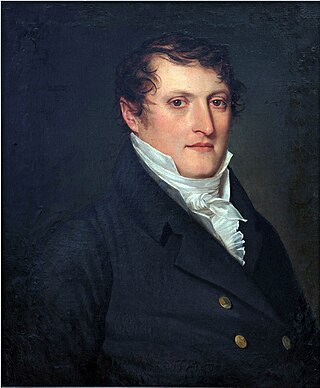 550
Manuel José Joaquín del Corazón de Jesús Belgrano y González, usually referred to as Manuel Belgrano, was an Argentine public servant, economist, lawyer, politician, journalist, and military leader....
550
Manuel José Joaquín del Corazón de Jesús Belgrano y González, usually referred to as Manuel Belgrano, was an Argentine public servant, economist, lawyer, politician, journalist, and military leader....
Domingo Faustino Sarmiento
 482
Domingo Faustino Sarmiento was an Argentine activist, intellectual, writer, statesman and President of Argentina. His writing spanned a wide range of genres and topics, from journalism to...
482
Domingo Faustino Sarmiento was an Argentine activist, intellectual, writer, statesman and President of Argentina. His writing spanned a wide range of genres and topics, from journalism to...
Bernardino Rivadavia
 378
Bernardino de la Trinidad González Rivadavia was the first President of Argentina, then called the United Provinces of the Río de la Plata, from February 8, 1826 to June 27, 1827.
378
Bernardino de la Trinidad González Rivadavia was the first President of Argentina, then called the United Provinces of the Río de la Plata, from February 8, 1826 to June 27, 1827.
Mariano Moreno
 315
Mariano Moreno was an Argentine lawyer, journalist, and politician. He played a decisive role in the Primera Junta, the first national government of Argentina, created after the May Revolution.
315
Mariano Moreno was an Argentine lawyer, journalist, and politician. He played a decisive role in the Primera Junta, the first national government of Argentina, created after the May Revolution.
Bartolomé Mitre
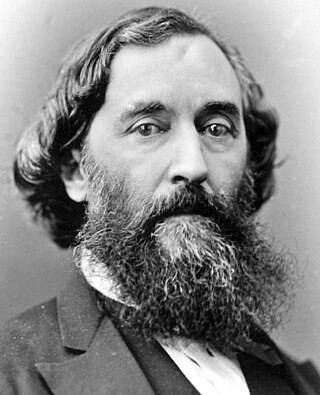 310
Bartolomé Mitre Martínez was an Argentine statesman, soldier and author. He was President of Argentina from 1862 to 1868 and the first president of unified Argentina.
310
Bartolomé Mitre Martínez was an Argentine statesman, soldier and author. He was President of Argentina from 1862 to 1868 and the first president of unified Argentina.
Hipólito Yrigoyen
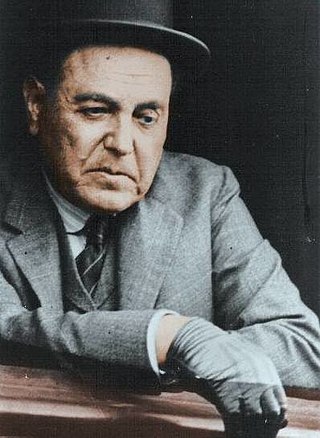 298
Juan Hipólito del Sagrado Corazón de Jesús Yrigoyen was an Argentine politician of the Radical Civic Union and two-time President of Argentina, who served his first term from 1916 to 1922 and his...
298
Juan Hipólito del Sagrado Corazón de Jesús Yrigoyen was an Argentine politician of the Radical Civic Union and two-time President of Argentina, who served his first term from 1916 to 1922 and his...
Juan Perón
 227
Juan Domingo Perón was an Argentine lieutenant general and politician who served as the 35th President of Argentina from 1946 to his overthrow in 1955, and again as the 45th President from October...
227
Juan Domingo Perón was an Argentine lieutenant general and politician who served as the 35th President of Argentina from 1946 to his overthrow in 1955, and again as the 45th President from October...
Justo José de Urquiza
 179
Justo José de Urquiza y García was an Argentine general and politician who served as president of the Argentine Confederation from 1854 to 1860.
179
Justo José de Urquiza y García was an Argentine general and politician who served as president of the Argentine Confederation from 1854 to 1860.
Juan Bautista Alberdi
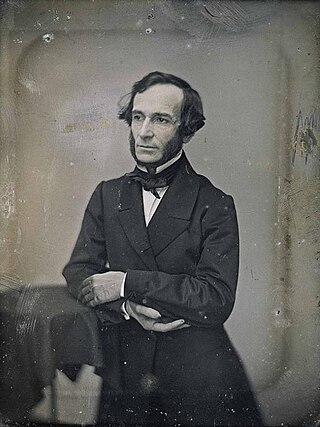 177
Juan Bautista Alberdi was an Argentine political theorist and diplomat. Although he lived most of his life in exile in Montevideo, Uruguay and in Chile, he influenced the content of the Constitution...
177
Juan Bautista Alberdi was an Argentine political theorist and diplomat. Although he lived most of his life in exile in Montevideo, Uruguay and in Chile, he influenced the content of the Constitution...
Francis of Assisi
 173
Giovanni di Pietro di Bernardone, known as Francis of Assisi, was an Italian mystic, poet and Catholic friar who founded the religious order of the Franciscans. He was inspired to lead a Christian...
173
Giovanni di Pietro di Bernardone, known as Francis of Assisi, was an Italian mystic, poet and Catholic friar who founded the religious order of the Franciscans. He was inspired to lead a Christian...
Martín Miguel de Güemes
 172
Martín Miguel de Güemes was a military leader and popular caudillo who defended northwestern Argentina from the Spanish royalist army during the Argentine War of Independence.
172
Martín Miguel de Güemes was a military leader and popular caudillo who defended northwestern Argentina from the Spanish royalist army during the Argentine War of Independence.
Leandro N. Alem
 170
Leandro Nicéforo Alem was an Argentine politician, founder and leader of the Radical Civic Union. He was the uncle and political teacher of Hipólito Yrigoyen. He was also an active Freemason.
170
Leandro Nicéforo Alem was an Argentine politician, founder and leader of the Radical Civic Union. He was the uncle and political teacher of Hipólito Yrigoyen. He was also an active Freemason.
Julio Argentino Roca
 167
Alejo Julio Argentino Roca Paz was an army general and statesman who served as President of Argentina from 1880 to 1886 and from 1898 to 1904. Roca is the most important representative of the...
167
Alejo Julio Argentino Roca Paz was an army general and statesman who served as President of Argentina from 1880 to 1886 and from 1898 to 1904. Roca is the most important representative of the...
Christopher Columbus
 156
Christopher Columbus was an Italian explorer and navigator from the Republic of Genoa who completed four Spanish-based voyages across the Atlantic Ocean sponsored by the Catholic Monarchs, opening...
156
Christopher Columbus was an Italian explorer and navigator from the Republic of Genoa who completed four Spanish-based voyages across the Atlantic Ocean sponsored by the Catholic Monarchs, opening...
Juan Lavalle
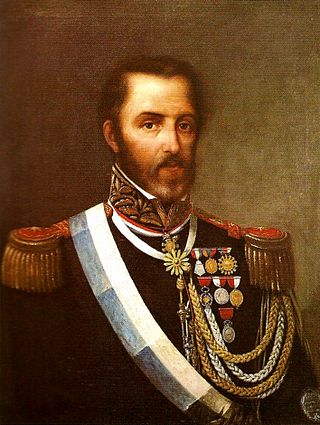 151
Juan Galo Lavalle was an Argentine military and political figure, from the Unitarian Party.
151
Juan Galo Lavalle was an Argentine military and political figure, from the Unitarian Party.
William Brown (admiral)
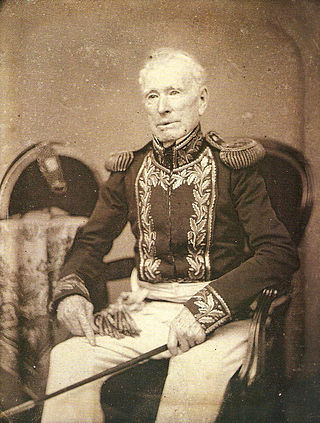 147
William Brown was an Irish sailor, merchant, and naval commander who served in the Argentine Navy during the wars of the early 19th century. Brown's successes in the Argentine War of Independence,...
147
William Brown was an Irish sailor, merchant, and naval commander who served in the Argentine Navy during the wars of the early 19th century. Brown's successes in the Argentine War of Independence,...
Roque Sáenz Peña
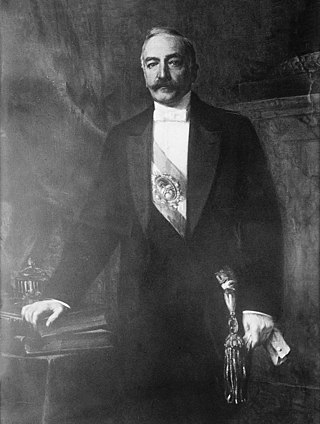 125
Roque José Antonio del Sagrado Corazón de Jesús Sáenz Peña Lahitte was an Argentine politician and lawyer who served as President of Argentina from 12 October 1910 to his death in office on 9 August...
125
Roque José Antonio del Sagrado Corazón de Jesús Sáenz Peña Lahitte was an Argentine politician and lawyer who served as President of Argentina from 12 October 1910 to his death in office on 9 August...
Nicolás Avellaneda
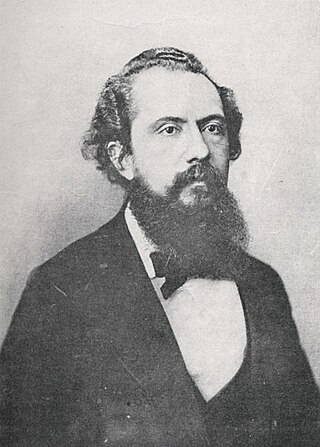 125
Nicolás Remigio Aurelio Avellaneda Silva was an Argentine politician and journalist, and President of Argentina from 1874 to 1880. Avellaneda's main projects while in office were banking and...
125
Nicolás Remigio Aurelio Avellaneda Silva was an Argentine politician and journalist, and President of Argentina from 1874 to 1880. Avellaneda's main projects while in office were banking and...
Carlos Pellegrini
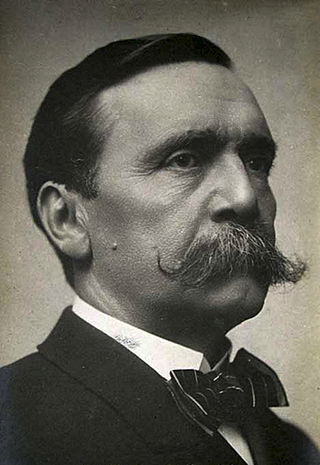 124
Carlos Enrique José Pellegrini Bevans was Vice President of Argentina and became President of Argentina from August 6, 1890 to October 12, 1892, upon Miguel Ángel Juárez Celman's resignation.
124
Carlos Enrique José Pellegrini Bevans was Vice President of Argentina and became President of Argentina from August 6, 1890 to October 12, 1892, upon Miguel Ángel Juárez Celman's resignation.
Cornelio Saavedra
 122
Cornelio Judas Tadeo de Saavedra y Rodríguez was an Argentine military officer and statesman. He was instrumental in the May Revolution, the first step of Argentina's independence from Spain, and...
122
Cornelio Judas Tadeo de Saavedra y Rodríguez was an Argentine military officer and statesman. He was instrumental in the May Revolution, the first step of Argentina's independence from Spain, and...
Pedro de Mendoza
 122
Pedro de Mendoza was a Spanish conquistador, soldier and explorer, and the first adelantado of New Andalusia.
122
Pedro de Mendoza was a Spanish conquistador, soldier and explorer, and the first adelantado of New Andalusia.
Juan Bautista Cabral
 119
Juan Bautista Cabral was an Argentine soldier, of Zambo origin, of the Regiment of Mounted Grenadiers who died in the Battle of San Lorenzo, while he was aiding then Colonel Don José de San Martín,...
119
Juan Bautista Cabral was an Argentine soldier, of Zambo origin, of the Regiment of Mounted Grenadiers who died in the Battle of San Lorenzo, while he was aiding then Colonel Don José de San Martín,...
Marcelo Torcuato de Alvear
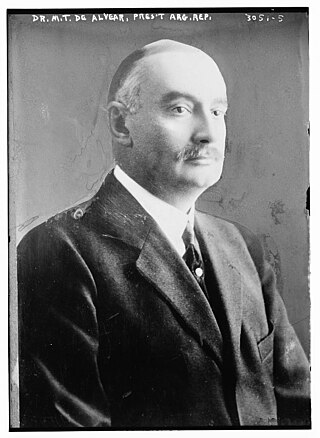 117
Máximo Marcelo Torcuato de Alvear Pacheco, was an Argentine lawyer and politician, who served as president of Argentina between from 1922 to 1928.
117
Máximo Marcelo Torcuato de Alvear Pacheco, was an Argentine lawyer and politician, who served as president of Argentina between from 1922 to 1928.
Saint Lawrence
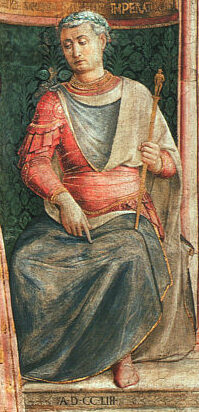 117
Saint Lawrence or Laurence was one of the seven deacons of the city of Rome under Pope Sixtus II who were martyred in the persecution of the Christians that the Roman Emperor Valerian ordered in 258.
117
Saint Lawrence or Laurence was one of the seven deacons of the city of Rome under Pope Sixtus II who were martyred in the persecution of the Christians that the Roman Emperor Valerian ordered in 258.
John the Baptist
 115
John the Baptist was a Jewish preacher active in the area of the Jordan River in the early 1st century AD. He is also known as Saint John the Forerunner in Eastern Orthodoxy, John the Immerser in...
115
John the Baptist was a Jewish preacher active in the area of the Jordan River in the early 1st century AD. He is also known as Saint John the Forerunner in Eastern Orthodoxy, John the Immerser in...
Eva Perón
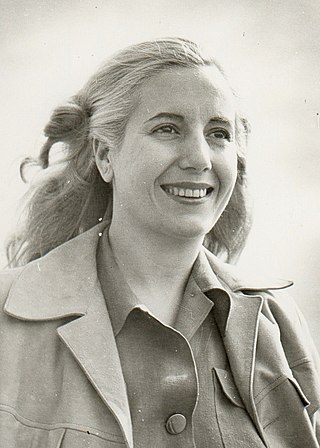 103
María Eva Duarte de Perón, better known as just Eva Perón or by the nickname Evita, was an Argentine politician, activist, actress, and philanthropist who served as First Lady of Argentina from June...
103
María Eva Duarte de Perón, better known as just Eva Perón or by the nickname Evita, was an Argentine politician, activist, actress, and philanthropist who served as First Lady of Argentina from June...
Juan Gregorio de las Heras
 92
Grand Marshal Juan Gregorio de las Heras was an Argentine soldier who took part in the Spanish American wars of independence and was also a governor of the province of Buenos Aires.
92
Grand Marshal Juan Gregorio de las Heras was an Argentine soldier who took part in the Spanish American wars of independence and was also a governor of the province of Buenos Aires.
Francisco Narciso de Laprida
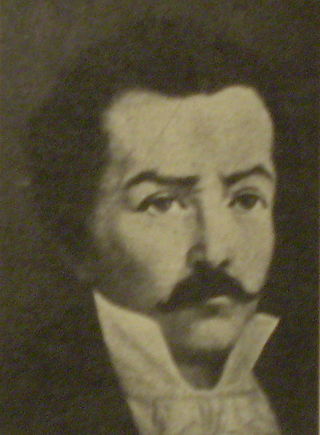 91
Francisco Narciso de Laprida was an Argentine lawyer and politician. He was a representative for San Juan at the Congress of Tucumán, and its president on July 9, 1816, when the Declaration of...
91
Francisco Narciso de Laprida was an Argentine lawyer and politician. He was a representative for San Juan at the Congress of Tucumán, and its president on July 9, 1816, when the Declaration of...
Juan Martín de Pueyrredón
 90
Juan Martín de Pueyrredón y O'Dogan was an Argentine general and politician of the early 19th century. He was appointed Supreme Director of the United Provinces of the Río de la Plata after the...
90
Juan Martín de Pueyrredón y O'Dogan was an Argentine general and politician of the early 19th century. He was appointed Supreme Director of the United Provinces of the Río de la Plata after the...
Manuel Dorrego
 85
Manuel Dorrego was an Argentine statesman and soldier. He was governor of Buenos Aires in 1820, and then again from 1827 to 1828.
85
Manuel Dorrego was an Argentine statesman and soldier. He was governor of Buenos Aires in 1820, and then again from 1827 to 1828.
Adolfo Alsina
 78
Adolfo Alsina Maza was an Argentine lawyer and Unitarian politician, who was one of the founders of the Autonomist Party and the National Autonomist Party.
78
Adolfo Alsina Maza was an Argentine lawyer and Unitarian politician, who was one of the founders of the Autonomist Party and the National Autonomist Party.
Florentino Ameghino
 76
Florentino Ameghino was an Argentine naturalist, paleontologist, anthropologist and zoologist, whose fossil discoveries on the Argentine Pampas, especially on Patagonia, rank with those made in the...
76
Florentino Ameghino was an Argentine naturalist, paleontologist, anthropologist and zoologist, whose fossil discoveries on the Argentine Pampas, especially on Patagonia, rank with those made in the...
Juan José Paso
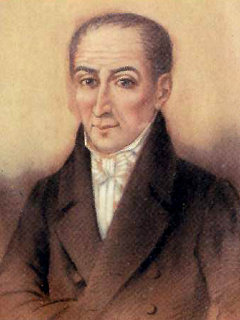 74
Juan José Esteban Paso, was an Argentine politician who participated in the events that started the Argentine War of Independence known as May Revolution of 1810.
74
Juan José Esteban Paso, was an Argentine politician who participated in the events that started the Argentine War of Independence known as May Revolution of 1810.
Juan Manuel de Rosas
 73
Juan Manuel José Domingo Ortiz de Rosas, nicknamed "Restorer of the Laws", was an Argentine politician and army officer who ruled Buenos Aires Province and briefly the Argentine Confederation....
73
Juan Manuel José Domingo Ortiz de Rosas, nicknamed "Restorer of the Laws", was an Argentine politician and army officer who ruled Buenos Aires Province and briefly the Argentine Confederation....
Simón Bolívar
 73
Simón José Antonio de la Santísima Trinidad Bolívar Palacios Ponte y Blanco was a Venezuelan military and political leader who led what are currently the countries of Colombia, Venezuela, Ecuador,...
73
Simón José Antonio de la Santísima Trinidad Bolívar Palacios Ponte y Blanco was a Venezuelan military and political leader who led what are currently the countries of Colombia, Venezuela, Ecuador,...
José Hernández (writer)
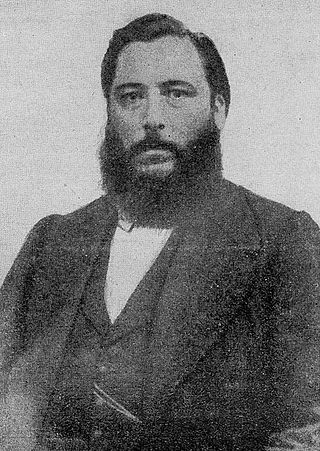 73
José Hernández was an Argentine journalist, poet, and politician best known as the author of the epic poem Martín Fierro. In his tribute, his birthday is celebrated as a national argentinian holiday,...
73
José Hernández was an Argentine journalist, poet, and politician best known as the author of the epic poem Martín Fierro. In his tribute, his birthday is celebrated as a national argentinian holiday,...
Juan José Castelli
 69
Juan José Castelli was an Argentine lawyer who was one of the leaders of the May Revolution, which led to the Argentine War of Independence. He led an ill-fated military campaign in Upper Peru.
69
Juan José Castelli was an Argentine lawyer who was one of the leaders of the May Revolution, which led to the Argentine War of Independence. He led an ill-fated military campaign in Upper Peru.
Dalmacio Vélez Sarsfield
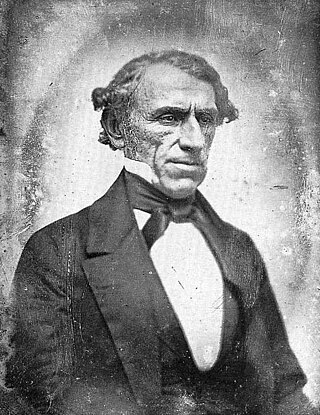 68
Dalmacio Vélez Sarsfield was an Argentine lawyer and politician who wrote the Civil Code of Argentina of 1869, which remained in force until 2015, when it was replaced by the new Código Civil y...
68
Dalmacio Vélez Sarsfield was an Argentine lawyer and politician who wrote the Civil Code of Argentina of 1869, which remained in force until 2015, when it was replaced by the new Código Civil y...
Juan B. Justo
 66
Juan Bautista Justo was an Argentine physician, journalist, politician, and writer. After finishing medical school he joined the Civic Union of the Youth, later participating in the foundation of the...
66
Juan Bautista Justo was an Argentine physician, journalist, politician, and writer. After finishing medical school he joined the Civic Union of the Youth, later participating in the foundation of the...
Antonio González de Balcarce
 62
Antonio González de Balcarce was an Argentine military commander in the early 19th century.
62
Antonio González de Balcarce was an Argentine military commander in the early 19th century.
José Manuel Estrada
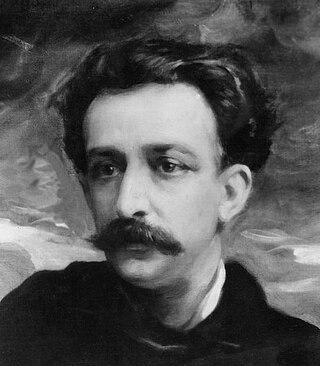 62
José Manuel Estrada was an Argentine lawyer, writer, politician, eminent speaker and representative of Catholic thought.
62
José Manuel Estrada was an Argentine lawyer, writer, politician, eminent speaker and representative of Catholic thought.
Arturo Umberto Illia
 59
Arturo Umberto Illia was an Argentine politician and physician, who was President of Argentina from 12 October 1963, to 28 June 1966. He was a member of the centrist Radical Civic Union.
59
Arturo Umberto Illia was an Argentine politician and physician, who was President of Argentina from 12 October 1963, to 28 June 1966. He was a member of the centrist Radical Civic Union.
Vicente López y Planes
 59
Alejandro Vicente López y Planes was an Argentine writer and politician who acted as interim President of Argentina from July 7 to August 18, 1827. He also wrote the lyrics of the Argentine National...
59
Alejandro Vicente López y Planes was an Argentine writer and politician who acted as interim President of Argentina from July 7 to August 18, 1827. He also wrote the lyrics of the Argentine National...
Gregorio Funes
 59
Gregorio Funes, also known as Deán Funes, was an Argentine clergyman, educator, historian, journalist and lawmaker who played a significant role in his nation's early, post-independence history.
59
Gregorio Funes, also known as Deán Funes, was an Argentine clergyman, educator, historian, journalist and lawmaker who played a significant role in his nation's early, post-independence history.
Francisco Moreno
 58
Francisco Pascasio Moreno was a prominent explorer and academic in Argentina, where he is usually referred to as Perito Moreno. Perito Moreno has been credited as one of the most influential figures...
58
Francisco Pascasio Moreno was a prominent explorer and academic in Argentina, where he is usually referred to as Perito Moreno. Perito Moreno has been credited as one of the most influential figures...
Juan Pascual Pringles
 55
Juan Pascual Pringles was a distinguished military leader in the Spanish American wars of independence, with the rank of colonel, and later a leader of the Argentine Unitarian Party.
55
Juan Pascual Pringles was a distinguished military leader in the Spanish American wars of independence, with the rank of colonel, and later a leader of the Argentine Unitarian Party.
Lisandro de la Torre
 55
Lisandro de la Torre was an Argentine politician, born in Rosario, Santa Fe. He was considered as a model of ethics in politics. He was a national deputy and senator, a prominent polemicist, and...
55
Lisandro de la Torre was an Argentine politician, born in Rosario, Santa Fe. He was considered as a model of ethics in politics. He was a national deputy and senator, a prominent polemicist, and...
Antonio Ruiz (soldier)
 54
Antonio Ruiz was an Argentine soldier and national hero of Argentina. Ruiz, nicknamed Falucho, was an Afro-Argentine soldier of the war of independence. Ruiz fought in José de San Martín’s army....
54
Antonio Ruiz was an Argentine soldier and national hero of Argentina. Ruiz, nicknamed Falucho, was an Afro-Argentine soldier of the war of independence. Ruiz fought in José de San Martín’s army....
Gregorio Aráoz de Lamadrid
 52
Comandante General Gregorio Aráoz de Lamadrid was an Argentine military officer and briefly, governor of several provinces like Córdoba, Mendoza and his native province of Tucumán.
52
Comandante General Gregorio Aráoz de Lamadrid was an Argentine military officer and briefly, governor of several provinces like Córdoba, Mendoza and his native province of Tucumán.
José Gervasio Artigas
 52
José Gervasio Artigas Arnal was a soldier and statesman who is regarded as a national hero in Uruguay and the father of Uruguayan nationhood.
52
José Gervasio Artigas Arnal was a soldier and statesman who is regarded as a national hero in Uruguay and the father of Uruguayan nationhood.
Guillermo Rawson
 51
Guillermo Rawson was a medical doctor and politician in nineteenth-century Argentina. In 1862, when he was the Interior Minister of Argentina, he met Captain Love Jones-Parry and Lewis Jones, who...
51
Guillermo Rawson was a medical doctor and politician in nineteenth-century Argentina. In 1862, when he was the Interior Minister of Argentina, he met Captain Love Jones-Parry and Lewis Jones, who...
Louis Pasteur
 51
Louis Pasteur was a French chemist, pharmacist, and microbiologist renowned for his discoveries of the principles of vaccination, microbial fermentation, and pasteurization, the last of which was...
51
Louis Pasteur was a French chemist, pharmacist, and microbiologist renowned for his discoveries of the principles of vaccination, microbial fermentation, and pasteurization, the last of which was...
John Bosco
 50
John Melchior Bosco, SDB, popularly known as Don Bosco, was an Italian Catholic priest, educator and writer of the 19th century. While working in Turin, where the population suffered many of the ill...
50
John Melchior Bosco, SDB, popularly known as Don Bosco, was an Italian Catholic priest, educator and writer of the 19th century. While working in Turin, where the population suffered many of the ill...
Santiago de Liniers, 1st Count of Buenos Aires
 49
Santiago Antonio María de Liniers y Bremond, 1st Count of Buenos Aires, KOM, OM was a Spanish military officer and a viceroy of the Viceroyalty of the Río de la Plata. Although born Jacques de...
49
Santiago Antonio María de Liniers y Bremond, 1st Count of Buenos Aires, KOM, OM was a Spanish military officer and a viceroy of the Viceroyalty of the Río de la Plata. Although born Jacques de...
Rose of Lima
 49
Rose of Lima, TOSD was a member of the Third Order of Saint Dominic in Lima, Peru, who became known for both her life of severe penance and her care of the poverty stricken of the city through her...
49
Rose of Lima, TOSD was a member of the Third Order of Saint Dominic in Lima, Peru, who became known for both her life of severe penance and her care of the poverty stricken of the city through her...
Jorge Newbery
 48
Jorge Alejandro Newbery Malagarie was an Argentine aviator, civil servant, engineer and scientist. He died in an airplane crash on 1 March 1914, at the age of 38.
48
Jorge Alejandro Newbery Malagarie was an Argentine aviator, civil servant, engineer and scientist. He died in an airplane crash on 1 March 1914, at the age of 38.
Juan Antonio Álvarez de Arenales
 47
Juan Antonio Álvarez de Arenales was an Argentine general of Spanish origin that fought in the war for the United Provinces of the Río de la Plata, Chile and Peru.
47
Juan Antonio Álvarez de Arenales was an Argentine general of Spanish origin that fought in the war for the United Provinces of the Río de la Plata, Chile and Peru.
Miguel de Azcuénaga
 46
Miguel de Azcuénaga was an Argentine brigadier. Educated in Spain, at the University of Seville, Azcuénaga began his military career in the Viceroyalty of the Río de la Plata and became a member of...
46
Miguel de Azcuénaga was an Argentine brigadier. Educated in Spain, at the University of Seville, Azcuénaga began his military career in the Viceroyalty of the Río de la Plata and became a member of...
Domingo French
 45
Domingo María Cristóbal French was an Argentine revolutionary who took part in the May Revolution and the Argentine War of Independence.
45
Domingo María Cristóbal French was an Argentine revolutionary who took part in the May Revolution and the Argentine War of Independence.
Pedro Bonifacio Palacios
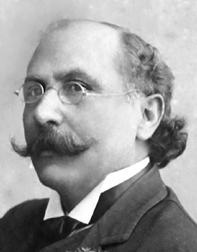 45
Pedro Bonifacio Palacios, better known by his sobriquet Almafuerte, was an Argentine poet.
45
Pedro Bonifacio Palacios, better known by his sobriquet Almafuerte, was an Argentine poet.
Manuel Quintana
 44
Manuel Pedro Quintana Sáenz was the President of Argentina from 12 October 1904 to 12 March 1906. He died in office.
44
Manuel Pedro Quintana Sáenz was the President of Argentina from 12 October 1904 to 12 March 1906. He died in office.
Mariano Necochea
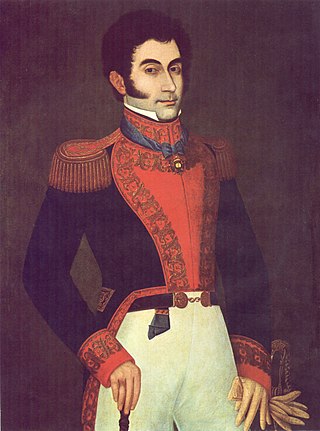 44
Mariano Necochea was an Argentine-Peruvian soldier.
44
Mariano Necochea was an Argentine-Peruvian soldier.
María de los Remedios de Escalada
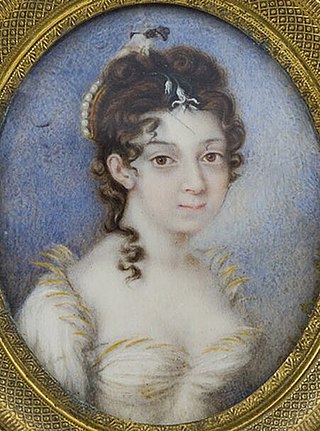 44
María de los Remedios de Escalada y La Quintana, commonly known as Remedios de Escalada, was the wife of the leader of the Argentine War of Independence, General José de San Martín.
44
María de los Remedios de Escalada y La Quintana, commonly known as Remedios de Escalada, was the wife of the leader of the Argentine War of Independence, General José de San Martín.
Martín Fierro
 43
Martín Fierro, also known as El Gaucho Martín Fierro, is a 2,316-line epic poem by the Argentine writer José Hernández. The poem was originally published in two parts, El Gaucho Martín Fierro (1872)...
43
Martín Fierro, also known as El Gaucho Martín Fierro, is a 2,316-line epic poem by the Argentine writer José Hernández. The poem was originally published in two parts, El Gaucho Martín Fierro (1872)...
Juan Larrea (politician)
 38
Juan Larrea was a Spanish businessman and politician in Buenos Aires during the early nineteenth century. He headed a military unit during the second British invasion of the Río de la Plata, and...
38
Juan Larrea was a Spanish businessman and politician in Buenos Aires during the early nineteenth century. He headed a military unit during the second British invasion of the Río de la Plata, and...
Aristóbulo del Valle
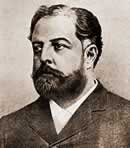 38
Aristóbulo del Valle was a lawyer and politician born in Dolores, province of Buenos Aires, Argentina. He was, together with Leandro Alem, one of the founders of the Radical Civic Union.
38
Aristóbulo del Valle was a lawyer and politician born in Dolores, province of Buenos Aires, Argentina. He was, together with Leandro Alem, one of the founders of the Radical Civic Union.
Carlos Gardel
 37
Carlos Gardel was a French-born Argentine singer, songwriter, composer and actor, and the most prominent figure in the history of tango. He was one of the most influential interpreters of world...
37
Carlos Gardel was a French-born Argentine singer, songwriter, composer and actor, and the most prominent figure in the history of tango. He was one of the most influential interpreters of world...
Giuseppe Garibaldi
 36
Giuseppe Maria Garibaldi was an Italian general, patriot, revolutionary and republican. He contributed to Italian unification (Risorgimento) and the creation of the Kingdom of Italy. He is considered...
36
Giuseppe Maria Garibaldi was an Italian general, patriot, revolutionary and republican. He contributed to Italian unification (Risorgimento) and the creation of the Kingdom of Italy. He is considered...
Pope John XXIII
 36
Pope John XXIII was head of the Catholic Church and sovereign of the Vatican City State from 28 October 1958 until his death in June 1963.
36
Pope John XXIII was head of the Catholic Church and sovereign of the Vatican City State from 28 October 1958 until his death in June 1963.
Francisco Ramírez (governor)
 36
Francisco Ramírez, also known as "Pancho" Ramírez as well as "El Supremo Entrerriano" (1786–1821), was an Argentine governor of Entre Ríos during the Argentine War of Independence.
36
Francisco Ramírez, also known as "Pancho" Ramírez as well as "El Supremo Entrerriano" (1786–1821), was an Argentine governor of Entre Ríos during the Argentine War of Independence.
Juan de Garay
 35
Juan de Garay (1528–1583) was a Spanish conquistador.
Garay's birthplace is disputed. Some say it was in the city of Junta de Villalba de Losa in Castile, while others argue he was born in the area...
35
Juan de Garay (1528–1583) was a Spanish conquistador.
Garay's birthplace is disputed. Some say it was in the city of Junta de Villalba de Losa in Castile, while others argue he was born in the area...
José Ingenieros
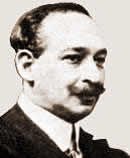 35
José Ingenieros was an Argentine physician, pharmacist, positivist philosopher and essayist.
35
José Ingenieros was an Argentine physician, pharmacist, positivist philosopher and essayist.
Facundo Quiroga
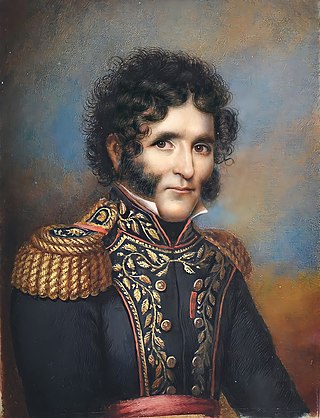 35
Juan Facundo Quiroga was an Argentine caudillo who supported federalism at the time when the country was still in formation.
35
Juan Facundo Quiroga was an Argentine caudillo who supported federalism at the time when the country was still in formation.
Leopoldo Lugones
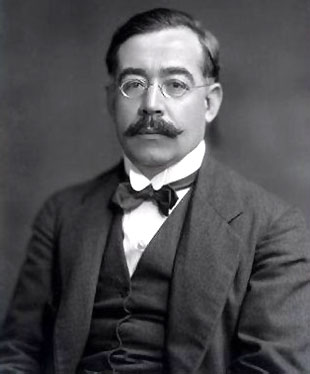 35
Leopoldo Antonio Lugones Argüello was an Argentine poet, essayist, novelist, playwright, historian, professor, translator, biographer, philologist, theologian, diplomat, politician and journalist....
35
Leopoldo Antonio Lugones Argüello was an Argentine poet, essayist, novelist, playwright, historian, professor, translator, biographer, philologist, theologian, diplomat, politician and journalist....
Luis Piedrabuena
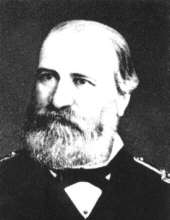 35
Luis Piedrabuena was an Argentine sailor whose actions in southern Argentina consolidated national sovereignty at a time when these lands were virtually uninhabited and were not protected by the...
35
Luis Piedrabuena was an Argentine sailor whose actions in southern Argentina consolidated national sovereignty at a time when these lands were virtually uninhabited and were not protected by the...
Alfonsina Storni
 35
Alfonsina Storni was a Swiss-Argentine poet and playwright of the modernist period.
35
Alfonsina Storni was a Swiss-Argentine poet and playwright of the modernist period.
Bernardo de Irigoyen
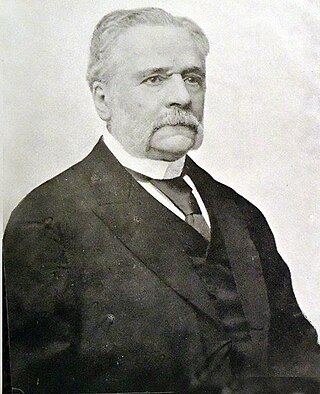 34
Bernardo de Irigoyen fue un abogado, diplomático y político argentino. Dos veces ministro de Relaciones Exteriores, en 1874 y 1882 y una vez ministro del Interior en 1877. En 1898 fue elegido...
34
Bernardo de Irigoyen fue un abogado, diplomático y político argentino. Dos veces ministro de Relaciones Exteriores, en 1874 y 1882 y una vez ministro del Interior en 1877. En 1898 fue elegido...
Enrique Mosconi
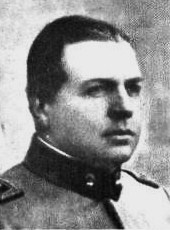 34
Enrique Carlos Alberto Mosconi was an Argentine military engineer, who is best known as the pioneer and organizer of petroleum exploration and extraction in Argentina.
34
Enrique Carlos Alberto Mosconi was an Argentine military engineer, who is best known as the pioneer and organizer of petroleum exploration and extraction in Argentina.
Gervasio Antonio de Posadas
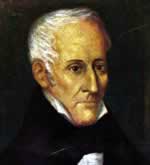 33
Gervasio Antonio de Posadas y Dávila was a member of Argentina's Second Triumvirate from 19 August 1813 to 31 January 1814, after which he served as Supreme Director until 9 January 1815.
33
Gervasio Antonio de Posadas y Dávila was a member of Argentina's Second Triumvirate from 19 August 1813 to 31 January 1814, after which he served as Supreme Director until 9 January 1815.
Ricardo Balbín
 33
Ricardo Balbín was an Argentine lawyer and politician, and one of the most important figures of the centrist Radical Civic Union (UCR), for which he was the presidential nominee four times: in 1951,...
33
Ricardo Balbín was an Argentine lawyer and politician, and one of the most important figures of the centrist Radical Civic Union (UCR), for which he was the presidential nominee four times: in 1951,...
Esteban Echeverría
 32
José Esteban Antonio Echeverría was an Argentine poet, fiction writer, cultural promoter, and liberal activist who played a significant role in the development of Argentine literature, not only...
32
José Esteban Antonio Echeverría was an Argentine poet, fiction writer, cultural promoter, and liberal activist who played a significant role in the development of Argentine literature, not only...
Domingo Matheu
 32
Domingo Bartolomé Francisco Matheu was a Spanish-born Argentine businessman and politician. He was a member of the Primera Junta, the first national government of modern Argentina, and the second...
32
Domingo Bartolomé Francisco Matheu was a Spanish-born Argentine businessman and politician. He was a member of the Primera Junta, the first national government of modern Argentina, and the second...
Manuel Alberti
 31
Manuel Maximiliano Alberti was an Argentine priest from Buenos Aires when the city was part of the Viceroyalty of the Río de la Plata. He had a curacy at Maldonado, Uruguay during the British...
31
Manuel Maximiliano Alberti was an Argentine priest from Buenos Aires when the city was part of the Viceroyalty of the Río de la Plata. He had a curacy at Maldonado, Uruguay during the British...
Conrado Villegas
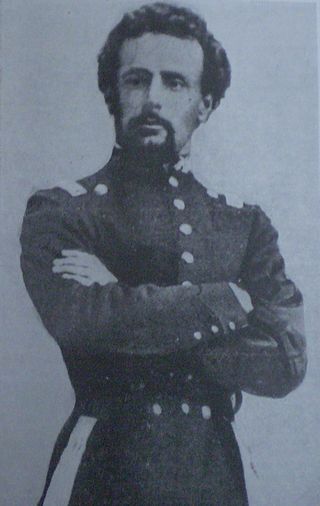 31
Conrado Villegas was an Argentine general in the 1880s during the presidency of Julio Argentino Roca. He is famous for his campaigns in Neuquén and Río Negro during the Conquest of the Desert to...
31
Conrado Villegas was an Argentine general in the 1880s during the presidency of Julio Argentino Roca. He is famous for his campaigns in Neuquén and Río Negro during the Conquest of the Desert to...
Rafael Obligado
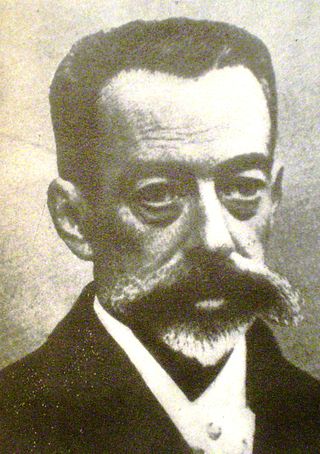 30
Rafael Obligado was an Argentine poet and playwright.
30
Rafael Obligado was an Argentine poet and playwright.
Mamerto Esquiú
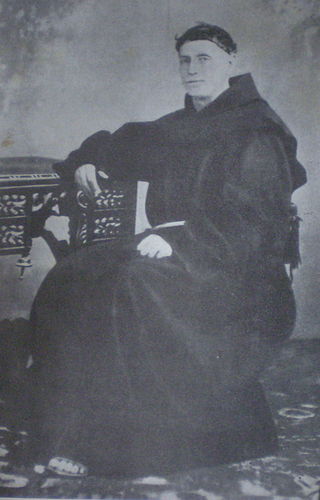 29
Mamerto Esquiú Medina - born Mamerto de la Ascensión Esquiú - was an Argentine Roman Catholic professed member from the Order of Friars Minor and the Bishop of Córdoba from 1880 until his death.
29
Mamerto Esquiú Medina - born Mamerto de la Ascensión Esquiú - was an Argentine Roman Catholic professed member from the Order of Friars Minor and the Bishop of Córdoba from 1880 until his death.
Blas Parera
 29
Blas Parera Moret was a Spanish music composer and teacher. He lived his part of his life in Buenos Aires, Argentina.
29
Blas Parera Moret was a Spanish music composer and teacher. He lived his part of his life in Buenos Aires, Argentina.
Bernardo de Monteagudo
 29
Bernardo de Monteagudo (1789–1825) was a political activist and revolutionary. He took part in the liberation struggles in South America, particularly in Argentina.
29
Bernardo de Monteagudo (1789–1825) was a political activist and revolutionary. He took part in the liberation struggles in South America, particularly in Argentina.
Hipólito Vieytes
 29
Juan Hipólito Vieytes, was an Argentine merchant and soldier. He was the son of Juan Vieytes and Petrona Mora Fernández de Agüero. His family's house was at 133 Calle Real in front of the central...
29
Juan Hipólito Vieytes, was an Argentine merchant and soldier. He was the son of Juan Vieytes and Petrona Mora Fernández de Agüero. His family's house was at 133 Calle Real in front of the central...
Vicente Madrigal
 28
Vicente María Epifanio López Madrigal was a Spanish Filipino businessman, industrialist and politician.
Madrigal died at home in New Manila, Quezon City, under the care of his youngest daughter,...
28
Vicente María Epifanio López Madrigal was a Spanish Filipino businessman, industrialist and politician.
Madrigal died at home in New Manila, Quezon City, under the care of his youngest daughter,...
Bernardo O'Higgins
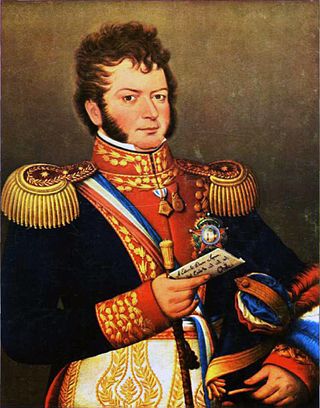 28
Bernardo O'Higgins Riquelme was a Chilean independence leader who freed Chile from Spanish rule in the Chilean War of Independence. He was a wealthy landowner of Basque-Spanish and Irish ancestry....
28
Bernardo O'Higgins Riquelme was a Chilean independence leader who freed Chile from Spanish rule in the Chilean War of Independence. He was a wealthy landowner of Basque-Spanish and Irish ancestry....
Justo de Santa María de Oro
 28
Justo de Santa María de Oro y Albarracín was an Argentine statesman and bishop. He was an influential representative in the Congress of Tucumán, which on 9 July 1816, declared the Independence of...
28
Justo de Santa María de Oro y Albarracín was an Argentine statesman and bishop. He was an influential representative in the Congress of Tucumán, which on 9 July 1816, declared the Independence of...
Néstor Kirchner
 27
Néstor Carlos Kirchner Ostoić was an Argentine lawyer and politician who served as the President of Argentina from 2003 to 2007. A member of the Justicialist Party, he previously served as Governor...
27
Néstor Carlos Kirchner Ostoić was an Argentine lawyer and politician who served as the President of Argentina from 2003 to 2007. A member of the Justicialist Party, he previously served as Governor...
Joaquín V. González
 27
Joaquín Víctor González was an Argentine educator, political scientist, writer, magistrate, and politician.
27
Joaquín Víctor González was an Argentine educator, political scientist, writer, magistrate, and politician.
Saint Joseph
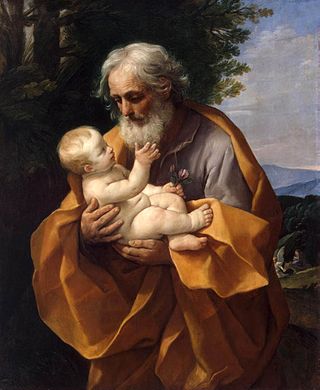 27
Joseph was a 1st-century Jewish man of Nazareth who, according to the canonical Gospels, was married to Mary, the mother of Jesus, and was the legal father of Jesus.
27
Joseph was a 1st-century Jewish man of Nazareth who, according to the canonical Gospels, was married to Mary, the mother of Jesus, and was the legal father of Jesus.
Estanislao López
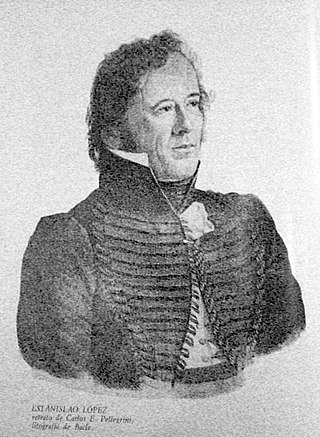 27
Estanislao López was a caudillo and governor of the province of Santa Fe, Argentina, between 1818 and 1838, one of the foremost proponents of provincial federalism, and an associate of Juan Manuel de...
27
Estanislao López was a caudillo and governor of the province of Santa Fe, Argentina, between 1818 and 1838, one of the foremost proponents of provincial federalism, and an associate of Juan Manuel de...
Nicolás Rodríguez Peña
 26
Nicolás Rodriguez Peña was an Argentine politician. Born in Buenos Aires in April 1775, he worked in commerce which allowed him to amass a considerable fortune. Among his several successful...
26
Nicolás Rodriguez Peña was an Argentine politician. Born in Buenos Aires in April 1775, he worked in commerce which allowed him to amass a considerable fortune. Among his several successful...
Fray Luis Beltrán, Santa Fe
 26
Fray Luis Beltrán is a small city in the province of Santa Fe, Argentina, located within the metropolitan area of Greater Rosario, north of the city of Rosario, on the western shore of the Paraná...
26
Fray Luis Beltrán is a small city in the province of Santa Fe, Argentina, located within the metropolitan area of Greater Rosario, north of the city of Rosario, on the western shore of the Paraná...
Estanislao Zeballos
 26
Estanislao Severo Zeballos was an Argentine lawyer and politician who was Minister of Foreign Affairs of his country three times.
He was one of the most prominent intellectuals and politicians of...
26
Estanislao Severo Zeballos was an Argentine lawyer and politician who was Minister of Foreign Affairs of his country three times.
He was one of the most prominent intellectuals and politicians of...
Juana Manuela Gorriti
 25
Juana Manuela Gorriti Zuviria was an Argentine writer with extensive political and literary links to Bolivia and Peru. She held the position of First Lady of Bolivia from 1848 to 1855.
25
Juana Manuela Gorriti Zuviria was an Argentine writer with extensive political and literary links to Bolivia and Peru. She held the position of First Lady of Bolivia from 1848 to 1855.
José María Paz
 25
Brigadier General José María Paz y Haedo was an Argentine military figure, notable in the Argentine War of Independence and the Argentine Civil Wars.
25
Brigadier General José María Paz y Haedo was an Argentine military figure, notable in the Argentine War of Independence and the Argentine Civil Wars.
Mary, mother of Jesus
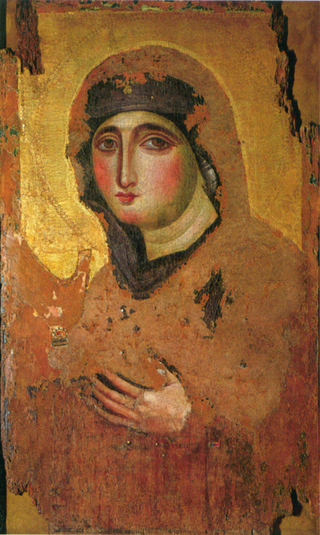 24
Mary was a first-century Jewish woman of Nazareth, the wife of Joseph and the mother of Jesus. She is a central figure of Christianity, venerated under various titles such as virgin or queen, many of...
24
Mary was a first-century Jewish woman of Nazareth, the wife of Joseph and the mother of Jesus. She is a central figure of Christianity, venerated under various titles such as virgin or queen, many of...
José Mármol
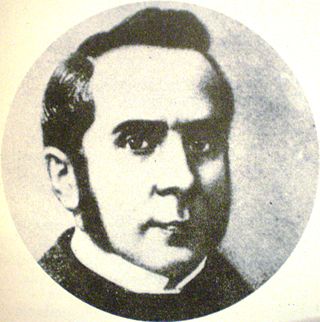 24
José Mármol was an Argentine journalist, politician, librarian, and writer of the Romantic school.
24
José Mármol was an Argentine journalist, politician, librarian, and writer of the Romantic school.
Miguel de Cervantes
 24
Miguel de Cervantes Saavedra was an Early Modern Spanish writer widely regarded as the greatest writer in the Spanish language and one of the world's pre-eminent novelists. He is best known for his...
24
Miguel de Cervantes Saavedra was an Early Modern Spanish writer widely regarded as the greatest writer in the Spanish language and one of the world's pre-eminent novelists. He is best known for his...
Juan José Viamonte
 24
Juan José Viamonte González was an Argentine general in the early 19th century.
24
Juan José Viamonte González was an Argentine general in the early 19th century.
Thomas Edison
 24
Thomas Alva Edison was an American inventor and businessman. He developed many devices in fields such as electric power generation, mass communication, sound recording, and motion pictures. These...
24
Thomas Alva Edison was an American inventor and businessman. He developed many devices in fields such as electric power generation, mass communication, sound recording, and motion pictures. These...
Tomás Godoy Cruz
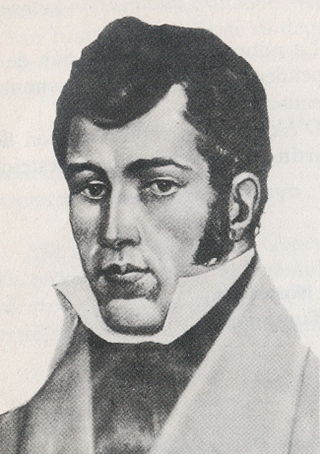 23
Tomás Godoy Cruz was an Argentine statesman and businessman. He was a representative to the Congress of Tucumán which on July 9, 1816 declared the Independence of Argentina.
23
Tomás Godoy Cruz was an Argentine statesman and businessman. He was a representative to the Congress of Tucumán which on July 9, 1816 declared the Independence of Argentina.
Guglielmo Marconi
 23
Guglielmo Giovanni Maria Marconi, 1st Marquis of Marconi was an Italian inventor and electrical engineer, known for his creation of a practical radio wave–based wireless telegraph system. This led to...
23
Guglielmo Giovanni Maria Marconi, 1st Marquis of Marconi was an Italian inventor and electrical engineer, known for his creation of a practical radio wave–based wireless telegraph system. This led to...
Carlos Guido y Spano
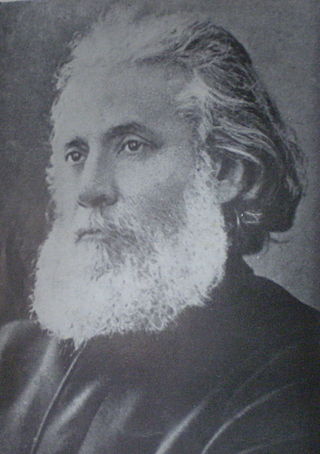 23
Carlos Rufino Pedro Ángel Luis Guido Spano, más conocido como Carlos Guido Spano, fue un poeta argentino cultor del romanticismo.
23
Carlos Rufino Pedro Ángel Luis Guido Spano, más conocido como Carlos Guido Spano, fue un poeta argentino cultor del romanticismo.
John F. Kennedy
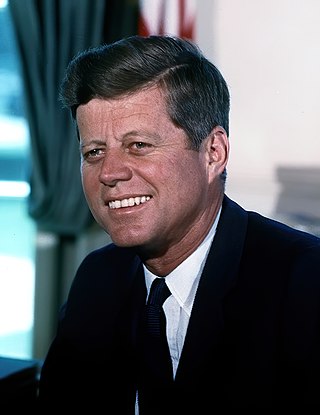 22
John Fitzgerald Kennedy, often referred to as JFK, was an American politician who served as the 35th president of the United States from 1961 until his assassination in 1963. He was the youngest...
22
John Fitzgerald Kennedy, often referred to as JFK, was an American politician who served as the 35th president of the United States from 1961 until his assassination in 1963. He was the youngest...
José Rondeau
 22
José Casimiro Rondeau Pereyra was a general and politician in Argentina and Uruguay in the early 19th century.
22
José Casimiro Rondeau Pereyra was a general and politician in Argentina and Uruguay in the early 19th century.
Olegario Víctor Andrade
 22
Olegario Víctor Andrade (1839–1882) was an Argentine journalist, poet and politician, who was born in Brazil.
His daughter, Agustina Andrade, was also a poet.
22
Olegario Víctor Andrade (1839–1882) was an Argentine journalist, poet and politician, who was born in Brazil.
His daughter, Agustina Andrade, was also a poet.
Arturo Berutti
 22
Arturo Berutti was an Argentinian composer of classical music and librettos. He was best known for his notable theme Pampa (1897). The opera was based on the life of Juan Moreira. One of the...
22
Arturo Berutti was an Argentinian composer of classical music and librettos. He was best known for his notable theme Pampa (1897). The opera was based on the life of Juan Moreira. One of the...
Raúl Alfonsín
 21
Raúl Ricardo Alfonsín was an Argentine lawyer and statesman who served as President of Argentina from 10 December 1983 to 8 July 1989. He was the first democratically elected president after the...
21
Raúl Ricardo Alfonsín was an Argentine lawyer and statesman who served as President of Argentina from 10 December 1983 to 8 July 1989. He was the first democratically elected president after the...
Federico de Brandsen
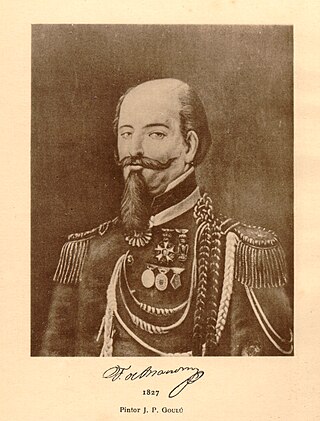 21
Carlos Luis Federico de Brandsen was a Colonel of French origin who fought in many of the South American wars of independence and for Argentina in the War with Brazil.
21
Carlos Luis Federico de Brandsen was a Colonel of French origin who fought in many of the South American wars of independence and for Argentina in the War with Brazil.
Juan Díaz de Solís
 21
Juan Díaz de Solís was a 16th-century navigator and explorer. He is also said to be the first European to land on what is now modern day Uruguay.
21
Juan Díaz de Solís was a 16th-century navigator and explorer. He is also said to be the first European to land on what is now modern day Uruguay.
José Matías Zapiola
 20
José Matías Zapiola was an Argentine brigadier.
He was born in Buenos Aires on March 22, 1780. He moved to Spain, and returned alongside José de San Martín in 1812.From 1812 to 1814, he took part in...
20
José Matías Zapiola was an Argentine brigadier.
He was born in Buenos Aires on March 22, 1780. He moved to Spain, and returned alongside José de San Martín in 1812.From 1812 to 1814, he took part in...
René Favaloro
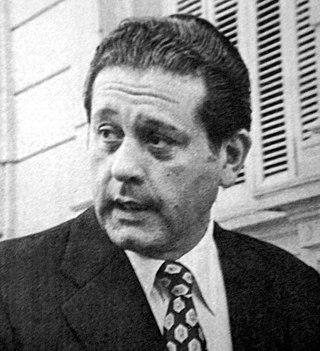 20
René Gerónimo Favaloro was an Argentine cardiac surgeon and educator best known for his pioneering work on coronary artery bypass surgery using the great saphenous vein.
20
René Gerónimo Favaloro was an Argentine cardiac surgeon and educator best known for his pioneering work on coronary artery bypass surgery using the great saphenous vein.
Ricardo Rojas (writer)
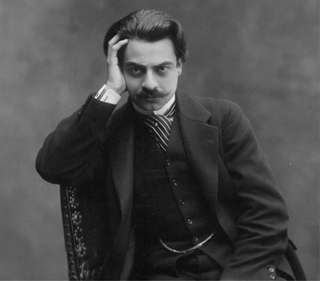 20
Ricardo Rojas was an Argentine journalist and writer. He came from one of the most influential families of the Santiago del Estero Province; his father was Absalón Rojas, who was governor of the...
20
Ricardo Rojas was an Argentine journalist and writer. He came from one of the most influential families of the Santiago del Estero Province; his father was Absalón Rojas, who was governor of the...
Pedro Ignacio de Castro Barros
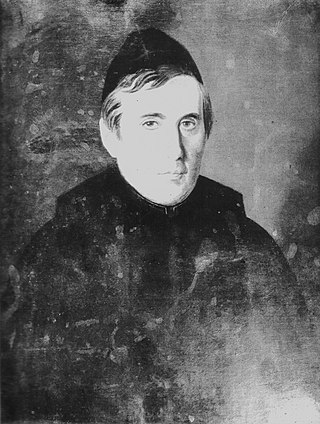 19
Pedro Ignacio de Castro Barros was an Argentine statesman and priest. He was a representative to the Congress of Tucumán which on 9 July 1816 declared the Independence of Argentina.
19
Pedro Ignacio de Castro Barros was an Argentine statesman and priest. He was a representative to the Congress of Tucumán which on 9 July 1816 declared the Independence of Argentina.
Tomás Espora
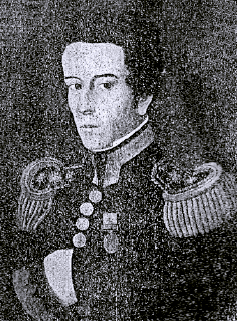 19
Tomás Domingo de los Dolores Espora fue un marino, militar y corsario, que alcanzó el rango de coronel de marina, que actuó en las guerras de la Independencia y en la del Brasil. Fue el primer marino...
19
Tomás Domingo de los Dolores Espora fue un marino, militar y corsario, que alcanzó el rango de coronel de marina, que actuó en las guerras de la Independencia y en la del Brasil. Fue el primer marino...
Dardo Rocha
 19
Dardo Rocha was an Argentine naval officer, lawyer and politician best known as the founder of the city of La Plata and the first president of the University of La Plata.
19
Dardo Rocha was an Argentine naval officer, lawyer and politician best known as the founder of the city of La Plata and the first president of the University of La Plata.
Umberto I of Italy
 18
Umberto I was King of Italy from 9 January 1878 until his assassination in 1900. His reign saw Italy's expansion into the Horn of Africa, as well as the creation of the Triple Alliance among Italy,...
18
Umberto I was King of Italy from 9 January 1878 until his assassination in 1900. His reign saw Italy's expansion into the Horn of Africa, as well as the creation of the Triple Alliance among Italy,...
Jesus
 18
Jesus, also referred to as Jesus Christ, Jesus of Nazareth, and many other names and titles, was a first-century Jewish preacher and religious leader. He is the central figure of Christianity, the...
18
Jesus, also referred to as Jesus Christ, Jesus of Nazareth, and many other names and titles, was a first-century Jewish preacher and religious leader. He is the central figure of Christianity, the...
Alfredo Palacios
 18
Alfredo Lorenzo Palacios was an Argentine socialist politician.
18
Alfredo Lorenzo Palacios was an Argentine socialist politician.
José Evaristo Uriburu
 18
José Félix Evaristo de Uriburu y Álvarez de Arenales was President of Argentina from 23 January 1895 to 12 October 1898.
18
José Félix Evaristo de Uriburu y Álvarez de Arenales was President of Argentina from 23 January 1895 to 12 October 1898.
Ceferino Namuncurá
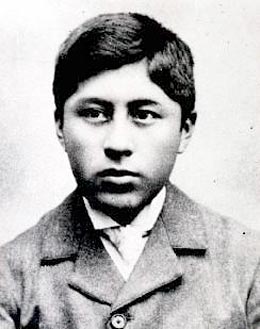 18
Ceferino Namuncurá was a religious student, the object of a Roman Catholic cultus of veneration in northern Patagonia and throughout Argentina.
18
Ceferino Namuncurá was a religious student, the object of a Roman Catholic cultus of veneration in northern Patagonia and throughout Argentina.
Antonio José de Sucre
 18
Antonio José de Sucre y Alcalá, known as the "Gran Mariscal de Ayacucho", was a Venezuelan general and politician who served as the president of Bolivia from 1825 to 1828. A close friend and...
18
Antonio José de Sucre y Alcalá, known as the "Gran Mariscal de Ayacucho", was a Venezuelan general and politician who served as the president of Bolivia from 1825 to 1828. A close friend and...
Juana Azurduy de Padilla
 17
Juana Azurduy de Padilla was a guerrilla military leader from Chuquisaca, Viceroyalty of the Río de la Plata. She fought for Bolivian and Argentine independence alongside her husband, Manuel Ascencio...
17
Juana Azurduy de Padilla was a guerrilla military leader from Chuquisaca, Viceroyalty of the Río de la Plata. She fought for Bolivian and Argentine independence alongside her husband, Manuel Ascencio...
Rudecindo Alvarado
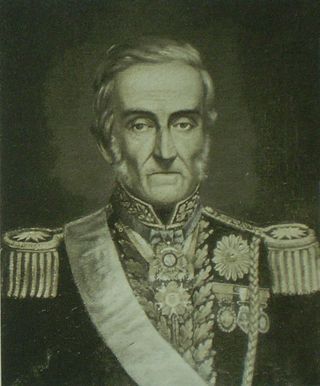 16
Rudecindo Alvarado was an Argentine general. He fought in the military campaigns of Manuel Belgrano, and in the Army of the Andes. He was governor of Mendoza. He left the country during the rule of...
16
Rudecindo Alvarado was an Argentine general. He fought in the military campaigns of Manuel Belgrano, and in the Army of the Andes. He was governor of Mendoza. He left the country during the rule of...
Belisario Roldán
 16
Belisario Roldán fue político, orador, autor teatral, periodista argentino.
16
Belisario Roldán fue político, orador, autor teatral, periodista argentino.
Jorge Luis Borges
 16
Jorge Francisco Isidoro Luis Borges Acevedo was an Argentine short-story writer, essayist, poet and translator regarded as a key figure in Spanish-language and international literature. His...
16
Jorge Francisco Isidoro Luis Borges Acevedo was an Argentine short-story writer, essayist, poet and translator regarded as a key figure in Spanish-language and international literature. His...
Horacio Quiroga
 16
Horacio Silvestre Quiroga Forteza was a Uruguayan playwright, poet, and short story writer.
16
Horacio Silvestre Quiroga Forteza was a Uruguayan playwright, poet, and short story writer.
Gabriela Mistral
 16
Lucila Godoy Alcayaga, known by her pseudonym Gabriela Mistral, was a Chilean poet-diplomat, educator, and Catholic. She was a member of the Secular Franciscan Order or Third Franciscan order. She...
16
Lucila Godoy Alcayaga, known by her pseudonym Gabriela Mistral, was a Chilean poet-diplomat, educator, and Catholic. She was a member of the Secular Franciscan Order or Third Franciscan order. She...
Hilario Ascasubi
 16
Hilario Ascasubi was an Argentine poet, politician and diplomat. He played an active role in the resistance to the dictatorship of Juan Manuel de Rosas. Ascasubi was also a prominent figure in gaucho...
16
Hilario Ascasubi was an Argentine poet, politician and diplomat. He played an active role in the resistance to the dictatorship of Juan Manuel de Rosas. Ascasubi was also a prominent figure in gaucho...
Alicia Moreau de Justo
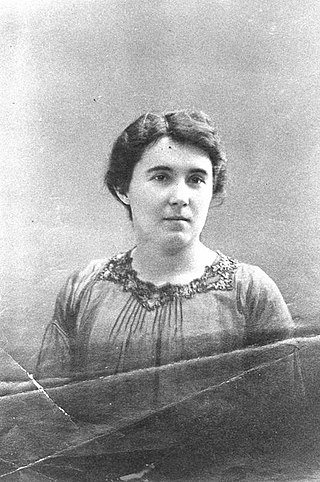 15
Alicia Moreau de Justo was an Argentine physician, politician, pacifist and human rights activist. She was a leading figure in feminism and socialism in Argentina. Since the beginning of the 20th...
15
Alicia Moreau de Justo was an Argentine physician, politician, pacifist and human rights activist. She was a leading figure in feminism and socialism in Argentina. Since the beginning of the 20th...
Tomás de Rocamora
 15
Juan Tomás Julián Marcos de Rocamora y del Castillo was the governor of three provinces and the founder of several towns in Entre Ríos Province, Argentina.
15
Juan Tomás Julián Marcos de Rocamora y del Castillo was the governor of three provinces and the founder of several towns in Entre Ríos Province, Argentina.
Anthony of Padua
 15
Anthony of Padua, OFM or Anthony of Lisbon was a Portuguese Catholic priest and friar of the Franciscan Order.
15
Anthony of Padua, OFM or Anthony of Lisbon was a Portuguese Catholic priest and friar of the Franciscan Order.
José Figueroa Alcorta
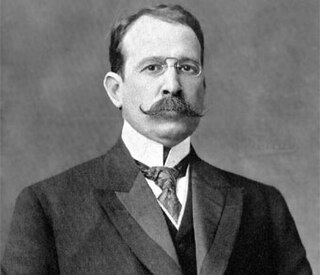 15
José María Cornelio Figueroa Alcorta was an Argentine lawyer and politician, who managed to be the only person to head the three powers of the State: Vice President of the Nation, from October 12,...
15
José María Cornelio Figueroa Alcorta was an Argentine lawyer and politician, who managed to be the only person to head the three powers of the State: Vice President of the Nation, from October 12,...
Miguel Cané
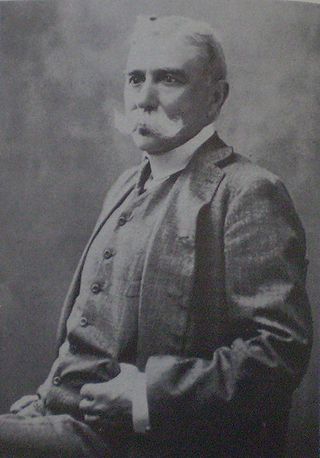 15
Miguel Cané was an Argentinian writer, lawyer, academic, journalist and politician.
15
Miguel Cané was an Argentinian writer, lawyer, academic, journalist and politician.
Ferdinand Magellan
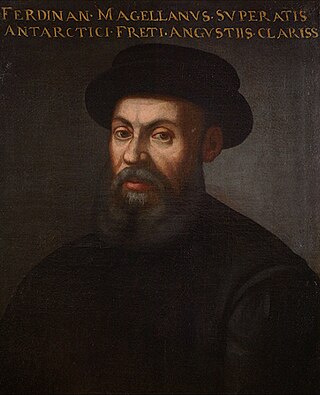 15
Ferdinand Magellan was a Portuguese explorer best known for having planned and led the 1519 Spanish expedition to the East Indies across the Pacific Ocean to open a maritime trade route, during which...
15
Ferdinand Magellan was a Portuguese explorer best known for having planned and led the 1519 Spanish expedition to the East Indies across the Pacific Ocean to open a maritime trade route, during which...
Benjamin Franklin
 14
Benjamin Franklin was an American polymath, a leading writer, scientist, inventor, statesman, diplomat, printer, publisher, and political philosopher. Among the most influential intellectuals of his...
14
Benjamin Franklin was an American polymath, a leading writer, scientist, inventor, statesman, diplomat, printer, publisher, and political philosopher. Among the most influential intellectuals of his...
Amadeo Sabattini
Saint Cajetan
 14
Gaetano dei Conti di Thiene, known as Saint Cajetan, was an Italian Catholic priest and religious reformer, co-founder of the Theatines. He is recognised as a saint in the Catholic Church, and his...
14
Gaetano dei Conti di Thiene, known as Saint Cajetan, was an Italian Catholic priest and religious reformer, co-founder of the Theatines. He is recognised as a saint in the Catholic Church, and his...
Simón de Iriondo
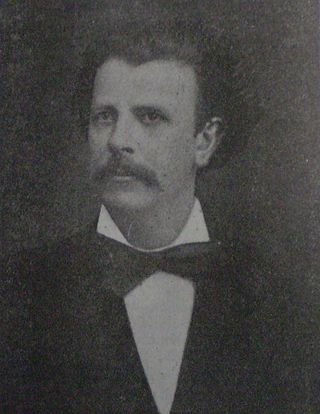 14
Simón de Iriondo (1836–1883) was an Argentine politician of the National Autonomist Party, who was twice governor of the province of Santa Fe, from 1871 to 1874 and from 1878 to 1882.
14
Simón de Iriondo (1836–1883) was an Argentine politician of the National Autonomist Party, who was twice governor of the province of Santa Fe, from 1871 to 1874 and from 1878 to 1882.
Alexander Fleming
 14
Sir Alexander Fleming was a Scottish physician and microbiologist, best known for discovering the world's first broadly effective antibiotic substance, which he named penicillin. His discovery in...
14
Sir Alexander Fleming was a Scottish physician and microbiologist, best known for discovering the world's first broadly effective antibiotic substance, which he named penicillin. His discovery in...
Estanislao del Campo
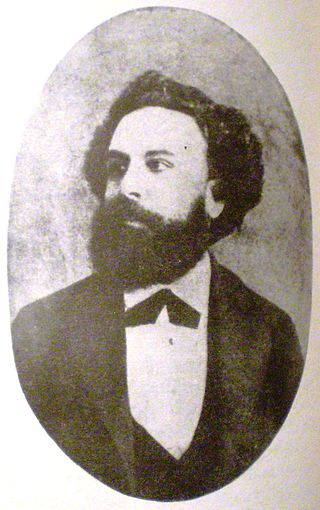 14
Estanislao del Campo was an Argentine poet. Born in Buenos Aires to a unitarian family—the unitarians were a political party favoring a strong central government rather than a federation, he fought...
14
Estanislao del Campo was an Argentine poet. Born in Buenos Aires to a unitarian family—the unitarians were a political party favoring a strong central government rather than a federation, he fought...
Hippolyte Bouchard
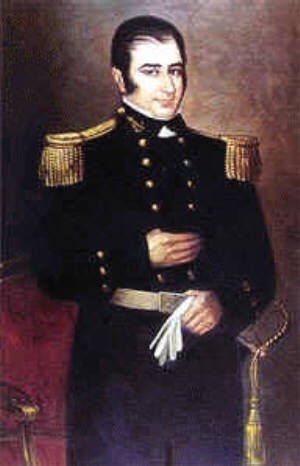 14
Hippolyte or Hipólito Bouchard was a French-born Argentine sailor and corsair who fought for Argentina, Chile, and Peru.
14
Hippolyte or Hipólito Bouchard was a French-born Argentine sailor and corsair who fought for Argentina, Chile, and Peru.
Ricardo Güiraldes
 14
Ricardo Güiraldes was an Argentine novelist and poet, one of the most significant Argentine writers of his era, particularly known for his 1926 novel Don Segundo Sombra, set amongst the gauchos.
14
Ricardo Güiraldes was an Argentine novelist and poet, one of the most significant Argentine writers of his era, particularly known for his 1926 novel Don Segundo Sombra, set amongst the gauchos.
Juan María Gutiérrez
 13
Juan María Gutiérrez was an Argentine statesman, jurist, surveyor, historian, critic, and poet.
13
Juan María Gutiérrez was an Argentine statesman, jurist, surveyor, historian, critic, and poet.
Pope John Paul II
 13
Pope John Paul II was head of the Catholic Church and sovereign of the Vatican City State from 1978 until his death in 2005.
13
Pope John Paul II was head of the Catholic Church and sovereign of the Vatican City State from 1978 until his death in 2005.
Octávio Pinto
 13
Octávio Pinto was a Brazilian composer and architect. He was married to Guiomar Novaes, a major figure among twentieth-century Brazilian pianists.
13
Octávio Pinto was a Brazilian composer and architect. He was married to Guiomar Novaes, a major figure among twentieth-century Brazilian pianists.
Raúl Scalabrini Ortiz
 13
Raúl Scalabrini Ortiz was an Argentine writer, philosopher, journalist, essayist and poet, friend of Arturo Jauretche and Homero Manzi, and loosely associated with the political group Fuerza de...
13
Raúl Scalabrini Ortiz was an Argentine writer, philosopher, journalist, essayist and poet, friend of Arturo Jauretche and Homero Manzi, and loosely associated with the political group Fuerza de...
Juan Manuel Fangio
 13
Juan Manuel Fangio, was an Argentine racing driver. Nicknamed El Chueco or El Maestro, he dominated the first decade of Formula One racing, winning the World Drivers' Championship five times.
13
Juan Manuel Fangio, was an Argentine racing driver. Nicknamed El Chueco or El Maestro, he dominated the first decade of Formula One racing, winning the World Drivers' Championship five times.
Luis Jorge Fontana
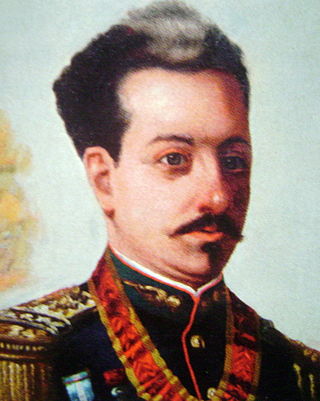 13
Luis Jorge Fontana was an Argentine military officer, explorer, geographer, writer, and politician. He was the first governor of the national territory of Chubut and founder of the city of Formosa.
13
Luis Jorge Fontana was an Argentine military officer, explorer, geographer, writer, and politician. He was the first governor of the national territory of Chubut and founder of the city of Formosa.
Luis María Drago
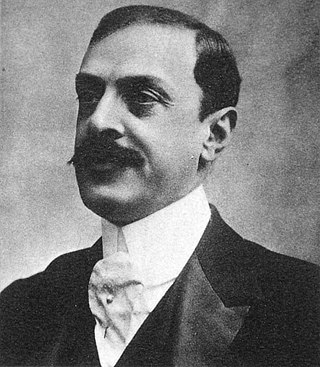 12
Luis María Drago was an Argentine politician.
12
Luis María Drago was an Argentine politician.
Hernando Arias de Saavedra
 12
Hernando Arias de Saavedra, commonly known as Hernandarias, was a soldier and politician of criollo ancestry. He was the first person born in the Americas to become a governor of a European colony in...
12
Hernando Arias de Saavedra, commonly known as Hernandarias, was a soldier and politician of criollo ancestry. He was the first person born in the Americas to become a governor of a European colony in...
Valentín Vergara
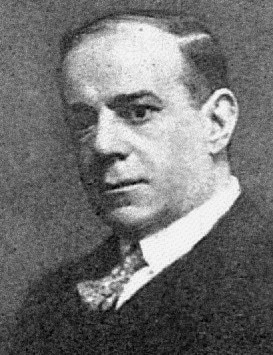 12
Valentín Vergara (1879-1930) was an Argentine lawyer and politician, who served as national deputy and governor of the Province of Buenos Aires.
12
Valentín Vergara (1879-1930) was an Argentine lawyer and politician, who served as national deputy and governor of the Province of Buenos Aires.
Dante Alighieri
 12
Dante Alighieri, most likely baptized Durante di Alighiero degli Alighieri and often referred to as Dante, was an Italian poet, writer, and philosopher. His Divine Comedy, originally called Comedìa...
12
Dante Alighieri, most likely baptized Durante di Alighiero degli Alighieri and often referred to as Dante, was an Italian poet, writer, and philosopher. His Divine Comedy, originally called Comedìa...
Saint Peter
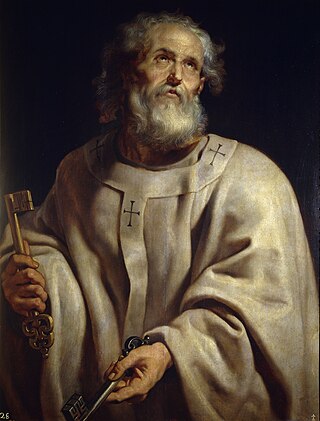 12
Saint Peter, also known as Peter the Apostle, Simon Peter, Simeon, Simon, or Cephas, was one of the Twelve Apostles of Jesus Christ and one of the first leaders of the early Christian Church. He...
12
Saint Peter, also known as Peter the Apostle, Simon Peter, Simeon, Simon, or Cephas, was one of the Twelve Apostles of Jesus Christ and one of the first leaders of the early Christian Church. He...
Ramón Castillo
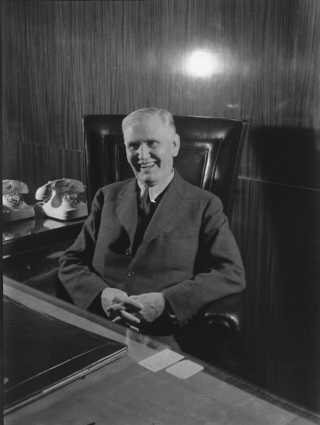 11
Ramón Antonio Castillo Barrionuevo was a conservative Argentine politician who served as President of Argentina from June 27, 1942 to June 4, 1943. He was a leading figure in the period known as the...
11
Ramón Antonio Castillo Barrionuevo was a conservative Argentine politician who served as President of Argentina from June 27, 1942 to June 4, 1943. He was a leading figure in the period known as the...
Félix de Azara
 11
Félix Manuel de Azara y Perera was a Spanish military officer, naturalist, and engineer.
11
Félix Manuel de Azara y Perera was a Spanish military officer, naturalist, and engineer.
Martín Rodríguez (politician)
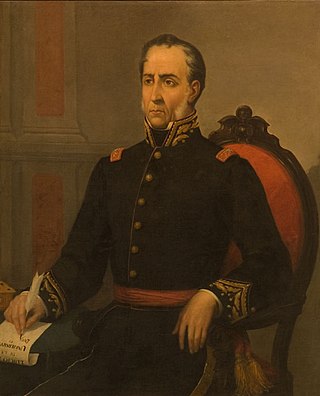 11
Martín Rodríguez was an Argentine politician and soldier.
11
Martín Rodríguez was an Argentine politician and soldier.
Juan Sebastián Elcano
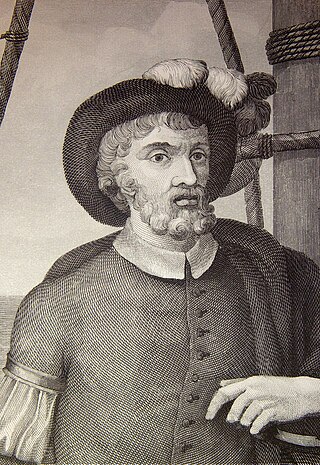 11
Juan Sebastián Elcano was a Spanish navigator, ship-owner and explorer of Basque origin from Getaria, part of the Crown of Castile when he was born, best known for having completed the first...
11
Juan Sebastián Elcano was a Spanish navigator, ship-owner and explorer of Basque origin from Getaria, part of the Crown of Castile when he was born, best known for having completed the first...
Carlos María de Alvear
 11
Carlos María de Alvear, was an Argentine soldier and statesman, Supreme Director of the United Provinces of the Río de la Plata in 1815.
11
Carlos María de Alvear, was an Argentine soldier and statesman, Supreme Director of the United Provinces of the Río de la Plata in 1815.
Andrés Guazurary
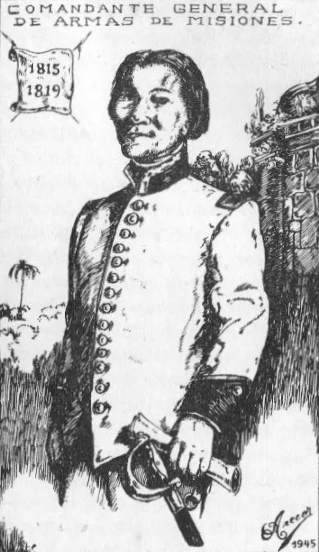 11
Andrés Guaçurary or Andrés Guazurarí, popularly known as Andresito was a caudillo of the province of Misiones, present-day Argentina, being governor of said province between 1811 and 1822. He was one...
11
Andrés Guaçurary or Andrés Guazurarí, popularly known as Andresito was a caudillo of the province of Misiones, present-day Argentina, being governor of said province between 1811 and 1822. He was one...
Francisco de Aguirre (conquistador)
 11
Francisco de Aguirre was a Spanish conquistador who participated in the conquest of Peru, Bolivia, Chile and Argentina.
11
Francisco de Aguirre was a Spanish conquistador who participated in the conquest of Peru, Bolivia, Chile and Argentina.
Paul the Apostle
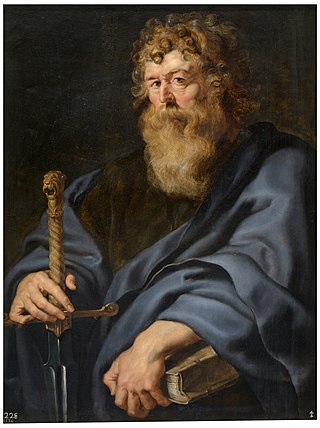 11
Paul, commonly known as Paul the Apostle and Saint Paul, was a Christian apostle who spread the teachings of Jesus in the first-century world. For his contributions towards the New Testament, he is...
11
Paul, commonly known as Paul the Apostle and Saint Paul, was a Christian apostle who spread the teachings of Jesus in the first-century world. For his contributions towards the New Testament, he is...
Francisco Hermógenes Ramos Mejía
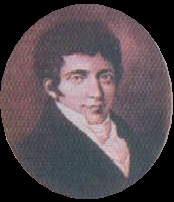 11
Francisco Hermógenes Ramos Mejía Ross fue uno de los más importantes hacendados bonaerenses de principios del siglo XIX y un defensor de los aborígenes pampas. Participó brevemente de la política de...
11
Francisco Hermógenes Ramos Mejía Ross fue uno de los más importantes hacendados bonaerenses de principios del siglo XIX y un defensor de los aborígenes pampas. Participó brevemente de la política de...
Rosario Vera Peñaloza
 11
Rosario Vera Peñaloza fue una educadora y pedagoga argentina.
11
Rosario Vera Peñaloza fue una educadora y pedagoga argentina.
Jose Gabriel del Rosario Brochero
 11
Jose Gabriel del Rosario Brochero was a Catholic priest who suffered leprosy throughout his life. He is known for his extensive work with the poor and the sick. He became affectionately known as "the...
11
Jose Gabriel del Rosario Brochero was a Catholic priest who suffered leprosy throughout his life. He is known for his extensive work with the poor and the sick. He became affectionately known as "the...
Saint Dominic
 11
Saint Dominic,, also known as Dominic de Guzmán, was a Castilian Catholic priest and the founder of the Dominican Order. He is the patron saint of astronomers and natural scientists, and he and his...
11
Saint Dominic,, also known as Dominic de Guzmán, was a Castilian Catholic priest and the founder of the Dominican Order. He is the patron saint of astronomers and natural scientists, and he and his...
Aimé Bonpland
 10
Aimé Jacques Alexandre Bonpland was a French explorer and botanist who traveled with Alexander von Humboldt in Latin America from 1799 to 1804. He co-authored volumes of the scientific results of...
10
Aimé Jacques Alexandre Bonpland was a French explorer and botanist who traveled with Alexander von Humboldt in Latin America from 1799 to 1804. He co-authored volumes of the scientific results of...
Pedro Goyena
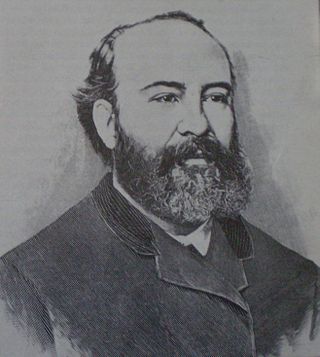 10
Pedro Goyena was an Argentine jurist, politician and writer.
10
Pedro Goyena was an Argentine jurist, politician and writer.
Manuel Montes de Oca (militar)
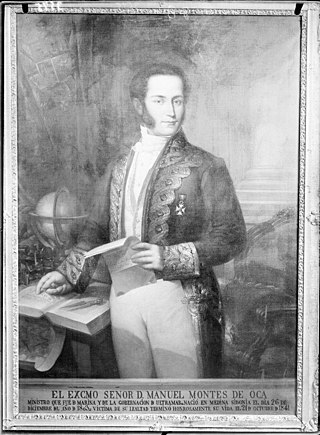 10
Manuel Montes de Oca fue un marino y político español.
10
Manuel Montes de Oca fue un marino y político español.
Calchaquí
 10
The Calchaquí or Kalchakí were a tribe of South American Indians of the Diaguita group, now extinct, who formerly occupied northern Argentina. Stone and other remains prove them to have reached a...
10
The Calchaquí or Kalchakí were a tribe of South American Indians of the Diaguita group, now extinct, who formerly occupied northern Argentina. Stone and other remains prove them to have reached a...
Jerome
 10
Jerome, also known as Jerome of Stridon, was an early Christian priest, confessor, theologian, translator, and historian; he is commonly known as Saint Jerome.
10
Jerome, also known as Jerome of Stridon, was an early Christian priest, confessor, theologian, translator, and historian; he is commonly known as Saint Jerome.
Mariano Boedo
 10
Mariano Joaquin Boedo born Mariano Joaquin de Boedo y de Aguirre, was an Argentine statesman and soldier. He was a representative to the Congress of Tucumán which on 9 July 1816 declared the...
10
Mariano Joaquin Boedo born Mariano Joaquin de Boedo y de Aguirre, was an Argentine statesman and soldier. He was a representative to the Congress of Tucumán which on 9 July 1816 declared the...
Manuel Blanco Encalada
 10
Manuel José Blanco y Calvo de Encalada was a vice-admiral in the Chilean Navy, a political figure, and Chile's first President (Provisional) (1826).
10
Manuel José Blanco y Calvo de Encalada was a vice-admiral in the Chilean Navy, a political figure, and Chile's first President (Provisional) (1826).
Ricardo Gutiérrez
 10
Ricardo Gutiérrez fue un médico y escritor argentino.
10
Ricardo Gutiérrez fue un médico y escritor argentino.
Marcos Paz
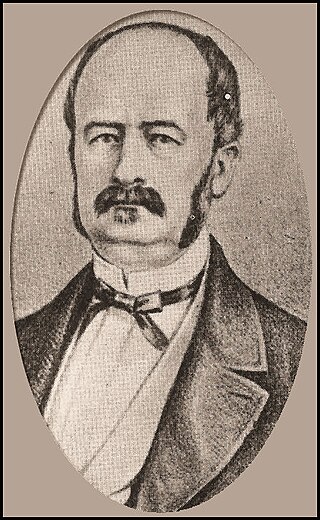 10
Marcos Paz was Governor of Córdoba and Tucumán Provinces, an Argentine Senator, and Vice President of Argentina from October 12, 1862, until his death in 1868.
10
Marcos Paz was Governor of Córdoba and Tucumán Provinces, an Argentine Senator, and Vice President of Argentina from October 12, 1862, until his death in 1868.
Pedro Ferré
 10
Pedro Ferré was an Argentine politician and military officer, who served in four terms as Governor of Corrientes Province and was constitutional delegate for the redaction of the Argentine...
10
Pedro Ferré was an Argentine politician and military officer, who served in four terms as Governor of Corrientes Province and was constitutional delegate for the redaction of the Argentine...
Crisólogo Larralde
 10
Crisólogo Larralde fue un político argentino, perteneciente a la Unión Cívica Radical.
10
Crisólogo Larralde fue un político argentino, perteneciente a la Unión Cívica Radical.
Teodoro Sánchez de Bustamante
 10
Teodoro Sánchez de Bustamante was an Argentine statesman, lawyer and soldier. He was a representative to the Congress of Tucumán which on 9 July 1816 declared the Independence of Argentina.
10
Teodoro Sánchez de Bustamante was an Argentine statesman, lawyer and soldier. He was a representative to the Congress of Tucumán which on 9 July 1816 declared the Independence of Argentina.
César Cipolletti
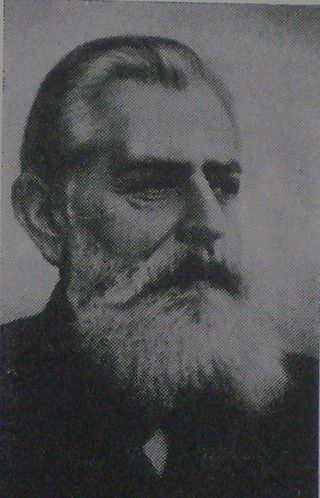 10
César Cipolletti fue un ingeniero hídrico de origen italiano que trabajó en Europa y Argentina. Su nombre original en idioma italiano era Cesare Cipolletti.
10
César Cipolletti fue un ingeniero hídrico de origen italiano que trabajó en Europa y Argentina. Su nombre original en idioma italiano era Cesare Cipolletti.
Arturo Jauretche
 10
Arturo Martín Jauretche was an Argentine writer, politician, and philosopher.
10
Arturo Martín Jauretche was an Argentine writer, politician, and philosopher.
Lola Mora
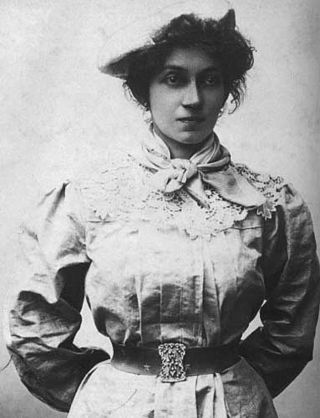 10
Dolores Candelaria Mora Vega known professionally as Lola Mora, was a sculptor born in San Miguel de Tucumán, Argentina. She is known today as a cultural rebel and a pioneer of women in her artistic...
10
Dolores Candelaria Mora Vega known professionally as Lola Mora, was a sculptor born in San Miguel de Tucumán, Argentina. She is known today as a cultural rebel and a pioneer of women in her artistic...
Tomás Guido
 10
Tomás Guido. was a general in the Argentine War of Independence, a diplomat and a politician.
10
Tomás Guido. was a general in the Argentine War of Independence, a diplomat and a politician.
Fernando Fader
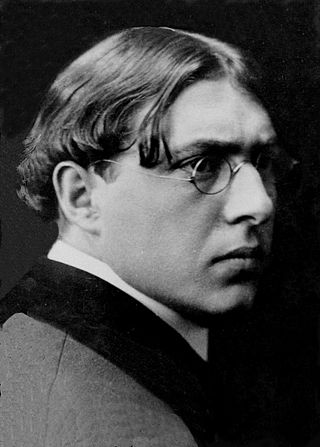 10
Fernando Fader was a French-born Argentine painter of the Post-impressionist school.
10
Fernando Fader was a French-born Argentine painter of the Post-impressionist school.
Ángel Vicente Peñaloza
 10
Ángel Vicente "Chacho" Peñaloza was a military officer and provincial leader prominent in both the history of La Rioja province and the Argentine civil wars that preceded national unity.
10
Ángel Vicente "Chacho" Peñaloza was a military officer and provincial leader prominent in both the history of La Rioja province and the Argentine civil wars that preceded national unity.
Pablo Riccheri
 10
Pablo Riccheri was an Argentine army officer and minister of war during the second administration of president Julio Roca.
10
Pablo Riccheri was an Argentine army officer and minister of war during the second administration of president Julio Roca.
Sebastian Cabot (explorer)
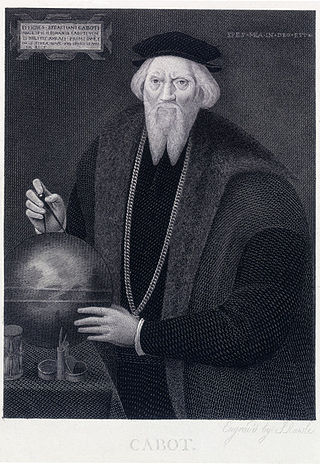 10
Sebastian Cabot was a Venetian explorer, likely born in the Venetian Republic and a Venetian citizen. He was the son of Venetian explorer John Cabot and his Venetian wife Mattea.
10
Sebastian Cabot was a Venetian explorer, likely born in the Venetian Republic and a Venetian citizen. He was the son of Venetian explorer John Cabot and his Venetian wife Mattea.
José Rivera Indarte
 10
José Rivera Indarte was an Argentine poet and journalist. He was at times both a supporter and critic of Juan Manuel de Rosas, writing first the "Anthem of the Restorers" and later the "Blood tables".
10
José Rivera Indarte was an Argentine poet and journalist. He was at times both a supporter and critic of Juan Manuel de Rosas, writing first the "Anthem of the Restorers" and later the "Blood tables".
Manuel José Olascoaga
 10
Coronel Manuel José Olascoaga fue un ingeniero, intelectual, militar, escritor, artista, explorador y político argentino. Tuvo un papel relevante en la conquista del desierto. Fundador de Chos Malal...
10
Coronel Manuel José Olascoaga fue un ingeniero, intelectual, militar, escritor, artista, explorador y político argentino. Tuvo un papel relevante en la conquista del desierto. Fundador de Chos Malal...
Genaro Berón de Astrada
 10
Juan Genaro Berón de Astrada fue un político y militar argentino, que gobernó la provincia de Corrientes en oposición al régimen de Juan Manuel de Rosas. Murió al frente de las tropas correntinas en...
10
Juan Genaro Berón de Astrada fue un político y militar argentino, que gobernó la provincia de Corrientes en oposición al régimen de Juan Manuel de Rosas. Murió al frente de las tropas correntinas en...
Michael (archangel)
 10
Michael, also called Saint Michael the Archangel, Archangel Michael and Saint Michael the Taxiarch is an archangel in Judaism, Christianity, Islam, and the Baha'i faith. The earliest surviving...
10
Michael, also called Saint Michael the Archangel, Archangel Michael and Saint Michael the Taxiarch is an archangel in Judaism, Christianity, Islam, and the Baha'i faith. The earliest surviving...
Atahualpa Yupanqui
 10
Atahualpa Yupanqui was an Argentine singer, songwriter, guitarist, and writer. He is considered one of the most important Argentine folk musicians of the 20th century.
10
Atahualpa Yupanqui was an Argentine singer, songwriter, guitarist, and writer. He is considered one of the most important Argentine folk musicians of the 20th century.
Juan Agustín Maza
 10
Juan Agustín Maza was an Argentine statesman and lawyer. He was a representative to the Congress of Tucumán which on 9 July 1816 declared the Independence of Argentina.
10
Juan Agustín Maza was an Argentine statesman and lawyer. He was a representative to the Congress of Tucumán which on 9 July 1816 declared the Independence of Argentina.
Pedro Eugenio Aramburu
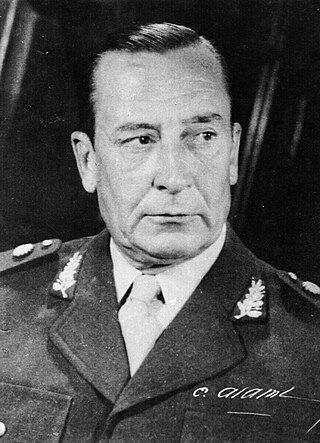 9
Pedro Eugenio Aramburu Silveti was an Argentine Army general who was the dictator of Argentina from November 13, 1955, to May 1, 1958. He was a major figure behind the Revolución Libertadora, the...
9
Pedro Eugenio Aramburu Silveti was an Argentine Army general who was the dictator of Argentina from November 13, 1955, to May 1, 1958. He was a major figure behind the Revolución Libertadora, the...
Drummer boy of Tacuarí
 9
Pedro Ríos (1798–1811), better known as the Tambor de Tacuarí was a boy soldier who participated as a drummer in Manuel Belgrano's expedition to Paraguay (1810–11). He was killed in action while...
9
Pedro Ríos (1798–1811), better known as the Tambor de Tacuarí was a boy soldier who participated as a drummer in Manuel Belgrano's expedition to Paraguay (1810–11). He was killed in action while...
Eduardo Wilde
 9
Eduardo Wilde was an Argentine physician, politician, and writer, and among the most prominent intellectual figures of the modernizing Generation of '80 in Argentina.
9
Eduardo Wilde was an Argentine physician, politician, and writer, and among the most prominent intellectual figures of the modernizing Generation of '80 in Argentina.
Marcos Sastre
 9
Marcos Sastre was an Argentine writer, born in neighboring Uruguay. He founded, along with Juan B. Alberdi, Juan María Gutiérrez and Esteban Echeverría, the Salón Literario, the beginning of the...
9
Marcos Sastre was an Argentine writer, born in neighboring Uruguay. He founded, along with Juan B. Alberdi, Juan María Gutiérrez and Esteban Echeverría, the Salón Literario, the beginning of the...
Arturo Frondizi
 9
Arturo Frondizi Ércoli was an Argentine lawyer, journalist, teacher and politician, who was elected President of Argentina and ruled between May 1, 1958, and March 29, 1962, when he was overthrown by...
9
Arturo Frondizi Ércoli was an Argentine lawyer, journalist, teacher and politician, who was elected President of Argentina and ruled between May 1, 1958, and March 29, 1962, when he was overthrown by...
José Antonio Álvarez Condarco
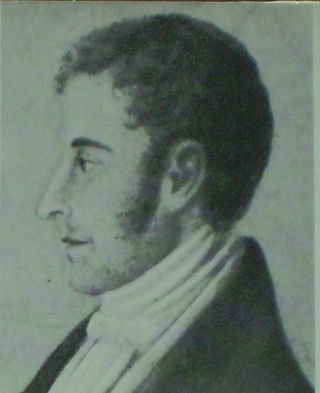 9
José Antonio Álvarez Condarco (1780–1855) was an Argentinian soldier, manufacturer of explosives and cartographer. He also served as Aide-de-camp and private secretary to general José de San Martín.
9
José Antonio Álvarez Condarco (1780–1855) was an Argentinian soldier, manufacturer of explosives and cartographer. He also served as Aide-de-camp and private secretary to general José de San Martín.
Martín del Barco Centenera
 9
Martín del Barco Centenera was a Spanish cleric, explorer and author.
9
Martín del Barco Centenera was a Spanish cleric, explorer and author.
Santos Vega
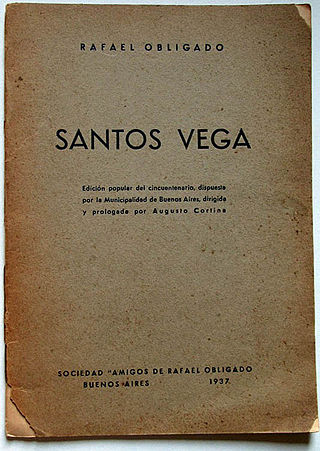 9
Santos Vega was a mythical Argentine gaucho, and invincible payador, who was only defeated by the Devil himself, disguised as the payador Juan sin Ropa.
9
Santos Vega was a mythical Argentine gaucho, and invincible payador, who was only defeated by the Devil himself, disguised as the payador Juan sin Ropa.
Nicasio Oroño
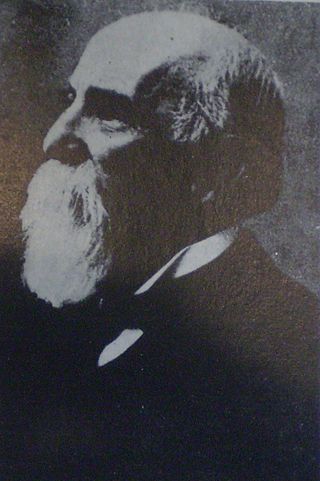 9
Nicasio V. Oroño was an Argentine politician and lawyer, and governor of Santa Fe between 1865 and 1868.
9
Nicasio V. Oroño was an Argentine politician and lawyer, and governor of Santa Fe between 1865 and 1868.
Saint Anne
 9
According to apocrypha, as well as Christian and Islamic tradition, Saint Anne was the mother of Mary, the wife of Joachim and the maternal grandmother of Jesus. Mary's mother is not named in the...
9
According to apocrypha, as well as Christian and Islamic tradition, Saint Anne was the mother of Mary, the wife of Joachim and the maternal grandmother of Jesus. Mary's mother is not named in the...
Isabella I of Castile
 9
Isabella I, also called Isabella the Catholic, was Queen of Castile and León from 1474 until her death in 1504. She was also Queen of Aragon from 1479 until her death as the wife of King Ferdinand...
9
Isabella I, also called Isabella the Catholic, was Queen of Castile and León from 1474 until her death in 1504. She was also Queen of Aragon from 1479 until her death as the wife of King Ferdinand...
Luis Agote
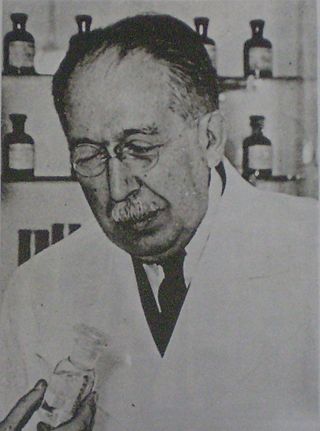 9
Luis Agote was an Argentine physician and researcher. He was the first to perform a non-direct blood transfusion using sodium citrate as an anticoagulant. The procedure took place in Rawson hospital...
9
Luis Agote was an Argentine physician and researcher. He was the first to perform a non-direct blood transfusion using sodium citrate as an anticoagulant. The procedure took place in Rawson hospital...
Amancio Alcorta
 9
Amancio Alcorta was an Argentine legal theorist, conservative politician and diplomat.
9
Amancio Alcorta was an Argentine legal theorist, conservative politician and diplomat.
Cipriano Catriel
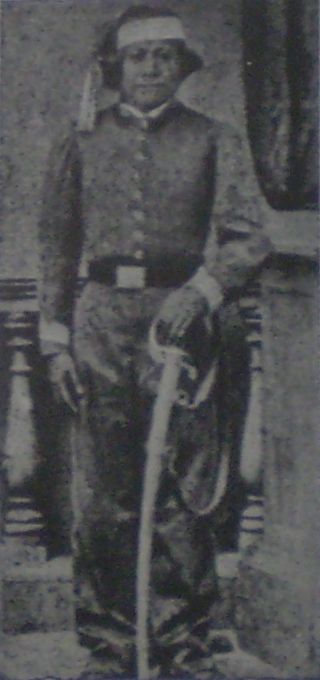 9
Cipriano Catriel fue un cacique principal de la dinastía de los Catriel. Coronel del Ejército Argentino. Mantuvo leales y respetuosas relaciones de paz con los criollos argentinos. Al frente de sus...
9
Cipriano Catriel fue un cacique principal de la dinastía de los Catriel. Coronel del Ejército Argentino. Mantuvo leales y respetuosas relaciones de paz con los criollos argentinos. Al frente de sus...
Emilio Mitre
 9
Emilio Mitre was an Argentine Lieutenant General who participated in the Paraguayan War. He was the brother of Bartolomé Mitre and participated across the Uruguayan Civil War and the Argentine Civil...
9
Emilio Mitre was an Argentine Lieutenant General who participated in the Paraguayan War. He was the brother of Bartolomé Mitre and participated across the Uruguayan Civil War and the Argentine Civil...
Pedro Molina Mazariegos
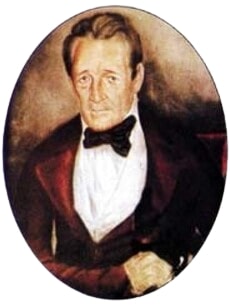 9
Pedro José Antonio Molina Mazariegos was a Central American politician, considered one of the founders of liberalism in Guatemala.
9
Pedro José Antonio Molina Mazariegos was a Central American politician, considered one of the founders of liberalism in Guatemala.
Patricias Argentinas
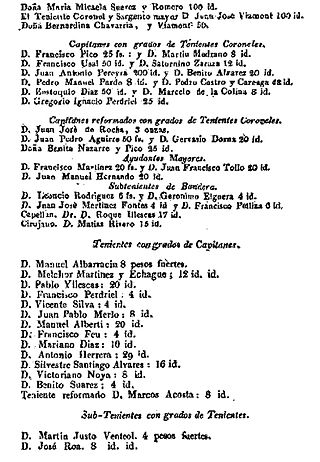 9
Patricias Argentinas was fourteen women who on 30 May 1812 called for the collection of funds for the equipment of the rebel army fighting for freedom from Spain during the Argentine War of...
9
Patricias Argentinas was fourteen women who on 30 May 1812 called for the collection of funds for the equipment of the rebel army fighting for freedom from Spain during the Argentine War of...
Diego de Villarroel
 9
Diego de Villarroel nacido como Diego González de Villarroel y Aguirre Meneses era un hidalgo, militar, conquistador y colonizador español que fuera nombrado en 1554 como segundo alcalde de primer...
9
Diego de Villarroel nacido como Diego González de Villarroel y Aguirre Meneses era un hidalgo, militar, conquistador y colonizador español que fuera nombrado en 1554 como segundo alcalde de primer...
Victoria Ocampo
 9
Ramona Victoria Epifanía Rufina Ocampo was an Argentine writer and intellectual. Best known as an advocate for others and as publisher of the literary magazine Sur, she was also a writer and critic...
9
Ramona Victoria Epifanía Rufina Ocampo was an Argentine writer and intellectual. Best known as an advocate for others and as publisher of the literary magazine Sur, she was also a writer and critic...
Lucio Victorio Mansilla
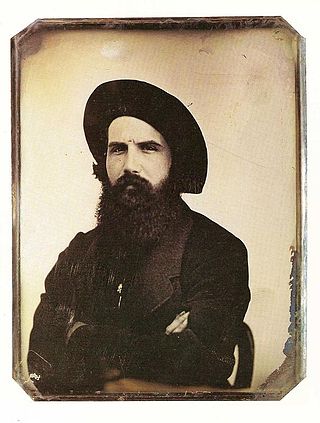 9
Lucio Victorio Mansilla was an Argentinean general, journalist, politician and diplomat. He was later governor of the territory of the Gran Chaco between 1878 and 1879.
9
Lucio Victorio Mansilla was an Argentinean general, journalist, politician and diplomat. He was later governor of the territory of the Gran Chaco between 1878 and 1879.
Constancio C. Vigil
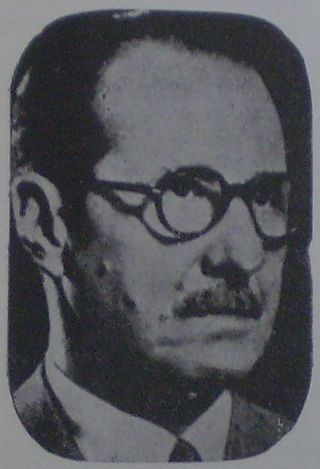 9
Constancio Cecilio Vigil Olid was a Uruguayan-Argentine writer and prominent publisher.
9
Constancio Cecilio Vigil Olid was a Uruguayan-Argentine writer and prominent publisher.
Miguel Ángel Juárez
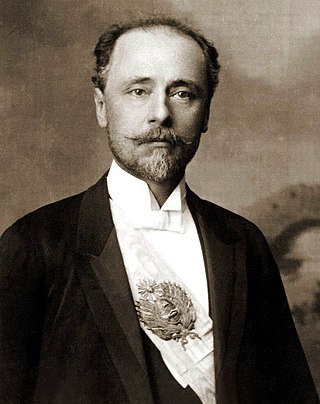 9
Miguel Ángel Juárez Celman was an Argentine lawyer and politician. President of the Nation from October 12, 1886 until his resignation on August 6, 1890.
9
Miguel Ángel Juárez Celman was an Argentine lawyer and politician. President of the Nation from October 12, 1886 until his resignation on August 6, 1890.
Saint Nicholas
 9
Saint Nicholas of Myra, also known as Nicholas of Bari, was an early Christian bishop of Greek descent from the maritime city of Patara in Anatolia during the time of the Roman Empire. Because of the...
9
Saint Nicholas of Myra, also known as Nicholas of Bari, was an early Christian bishop of Greek descent from the maritime city of Patara in Anatolia during the time of the Roman Empire. Because of the...
José Ignacio Rucci
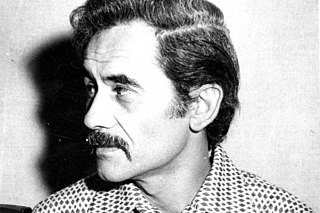 9
José Ignacio Rucci was an Argentine politician and union leader, appointed general secretary of the CGT in 1970. Close to the Argentine president Juan Perón, and a chief representative of the...
9
José Ignacio Rucci was an Argentine politician and union leader, appointed general secretary of the CGT in 1970. Close to the Argentine president Juan Perón, and a chief representative of the...
Eustoquio Díaz Vélez
 8
Eustoquio Antonio Díaz Vélez was an Argentine military officer who fought against the British invasions of the Río de la Plata, participated in the May Revolution, in the war of independence and in...
8
Eustoquio Antonio Díaz Vélez was an Argentine military officer who fought against the British invasions of the Río de la Plata, participated in the May Revolution, in the war of independence and in...
Thomas the Apostle
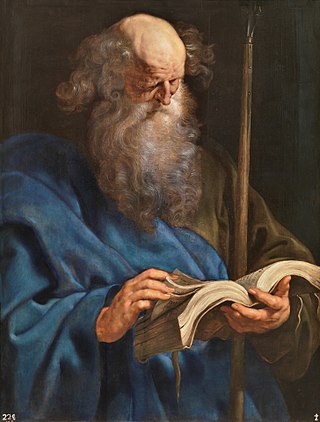 8
Thomas the Apostle, also known as Didymus, was one of the Twelve Apostles of Jesus according to the New Testament. Thomas is commonly known as "Doubting Thomas" because he initially doubted the...
8
Thomas the Apostle, also known as Didymus, was one of the Twelve Apostles of Jesus according to the New Testament. Thomas is commonly known as "Doubting Thomas" because he initially doubted the...
Saint Roch
 8
Roch, also called Rock in English, was a Majorcan Catholic confessor whose death is commemorated on 16 August and 9 September in Italy; he was especially invoked against the plague. He has the...
8
Roch, also called Rock in English, was a Majorcan Catholic confessor whose death is commemorated on 16 August and 9 September in Italy; he was especially invoked against the plague. He has the...
Pope Pius XII
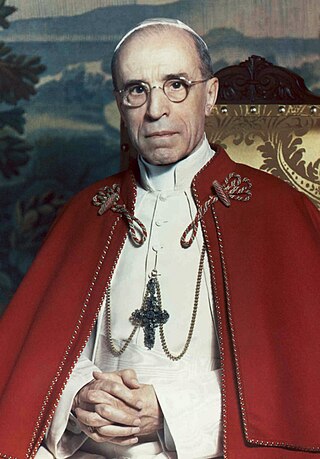 8
Pope Pius XII was head of the Catholic Church and sovereign of the Vatican City State from 2 March 1939 until his death in October 1958. Before his election to the papacy, he served as secretary of...
8
Pope Pius XII was head of the Catholic Church and sovereign of the Vatican City State from 2 March 1939 until his death in October 1958. Before his election to the papacy, he served as secretary of...
Abraham Lincoln
 8
Abraham Lincoln was an American lawyer, politician, and statesman, who served as the 16th president of the United States, from 1861 until his assassination in 1865. Lincoln led the United States...
8
Abraham Lincoln was an American lawyer, politician, and statesman, who served as the 16th president of the United States, from 1861 until his assassination in 1865. Lincoln led the United States...
Nazario Benavídez
 8
José Nazario Benavídez was an Argentine soldier who rose to the rank of Brigadier General and played a leading role in the Argentine Civil Wars. He was Governor of San Juan Province, Argentina, for...
8
José Nazario Benavídez was an Argentine soldier who rose to the rank of Brigadier General and played a leading role in the Argentine Civil Wars. He was Governor of San Juan Province, Argentina, for...
José María Moreno
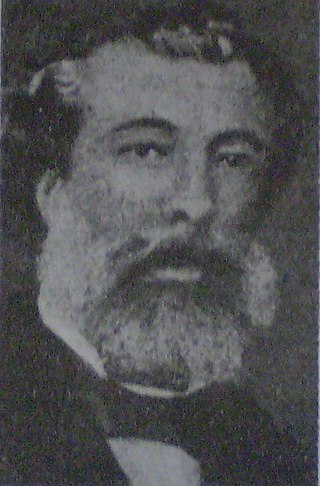 8
José María Moreno fue un abogado y político argentino. Era sobrino de Mariano Moreno.
8
José María Moreno fue un abogado y político argentino. Era sobrino de Mariano Moreno.
Anatole France
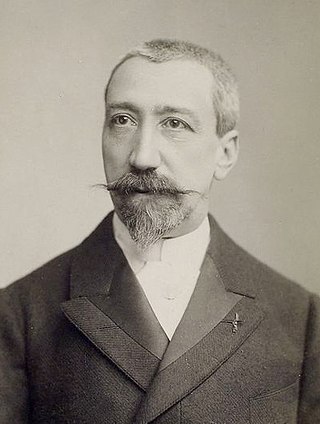 8
Anatole France was a French poet, journalist, and novelist with several best-sellers. Ironic and skeptical, he was considered in his day the ideal French man of letters. He was a member of the...
8
Anatole France was a French poet, journalist, and novelist with several best-sellers. Ironic and skeptical, he was considered in his day the ideal French man of letters. He was a member of the...
Felipe Varela
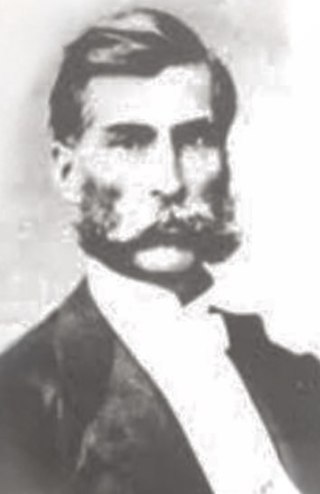 8
Felipe Varela fue un estanciero y militar argentino, líder del último pronunciamiento de los caudillos del interior contra la hegemonía política conquistada por la provincia de Buenos Aires en la...
8
Felipe Varela fue un estanciero y militar argentino, líder del último pronunciamiento de los caudillos del interior contra la hegemonía política conquistada por la provincia de Buenos Aires en la...
Juana Paula Manso
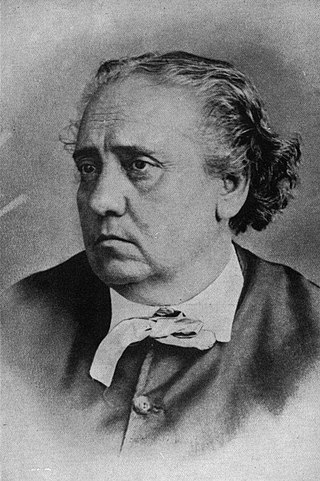 8
Juana Paula Manso was an Argentine writer, translator, journalist, teacher and feminist who advocated for better educational reform and better educational accessibility for women.
8
Juana Paula Manso was an Argentine writer, translator, journalist, teacher and feminist who advocated for better educational reform and better educational accessibility for women.
Benito Quinquela Martín
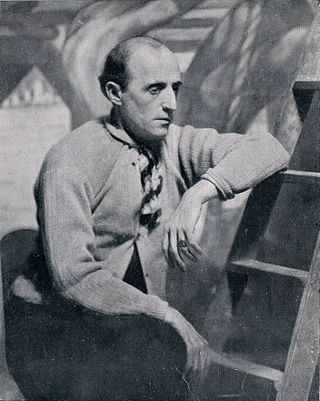 8
Benito Quinquela Martín was an Argentine painter. Quinquela Martín is considered the port painter-par-excellence and one of the most popular Argentine painters. His paintings of port scenes show the...
8
Benito Quinquela Martín was an Argentine painter. Quinquela Martín is considered the port painter-par-excellence and one of the most popular Argentine painters. His paintings of port scenes show the...
Bernardo Houssay
Florencio Varela (writer)
 8
Florencio Varela was an Argentine writer, poet, journalist and educator.
8
Florencio Varela was an Argentine writer, poet, journalist and educator.
Wilhelm von Humboldt
 8
Friedrich Wilhelm Christian Karl Ferdinand von Humboldt was a German philosopher, linguist, government functionary, diplomat, and founder of the Humboldt University of Berlin, which was named after...
8
Friedrich Wilhelm Christian Karl Ferdinand von Humboldt was a German philosopher, linguist, government functionary, diplomat, and founder of the Humboldt University of Berlin, which was named after...
Ramón J. Cárcano
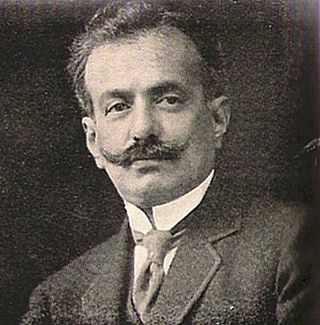 8
Ramón José Cárcano was an Argentine lawyer, historian and politician who served as Governor of Córdoba from 1913 to 1916, and from 1925 to 1928.
8
Ramón José Cárcano was an Argentine lawyer, historian and politician who served as Governor of Córdoba from 1913 to 1916, and from 1925 to 1928.
Martina Silva de Gurruchaga
 8
Martina Silva de Gurruchaga, also known as Doña Martina Silva, was an Argentine patriot. She was known for her actions before and during the Battle of Salta in which she earned the rank of captain.
8
Martina Silva de Gurruchaga, also known as Doña Martina Silva, was an Argentine patriot. She was known for her actions before and during the Battle of Salta in which she earned the rank of captain.
Juan Francisco Seguí (padre)
 8
Juan Francisco Seguí fue un abogado y político argentino, ministro de gobierno del caudillo de su provincia Estanislao López.
8
Juan Francisco Seguí fue un abogado y político argentino, ministro de gobierno del caudillo de su provincia Estanislao López.
Francisco Fernández de la Cruz
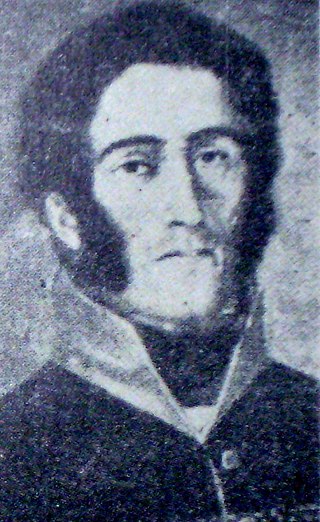 8
Francisco Fernández de la Cruz, fue un militar argentino, que luchó en la guerra de la Independencia de su país y ocupó algunos cargos políticos. Es especialmente conocido por haber sido despojado...
8
Francisco Fernández de la Cruz, fue un militar argentino, que luchó en la guerra de la Independencia de su país y ocupó algunos cargos políticos. Es especialmente conocido por haber sido despojado...
Diego de Almagro
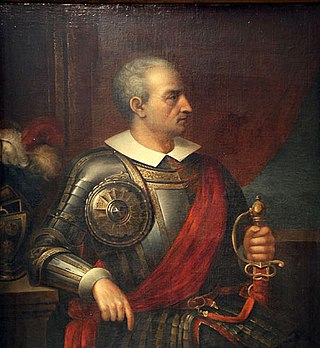 7
Diego de Almagro, also known as El Adelantado and El Viejo, was a Spanish conquistador known for his exploits in western South America. He participated with Francisco Pizarro in the Spanish conquest...
7
Diego de Almagro, also known as El Adelantado and El Viejo, was a Spanish conquistador known for his exploits in western South America. He participated with Francisco Pizarro in the Spanish conquest...
Carlos Calvo (historian)
 7
Carlos Calvo was an Argentine publicist and diplomat who made influential contributions to international law. He is most well known for the Calvo Doctrine in international law, which holds that...
7
Carlos Calvo was an Argentine publicist and diplomat who made influential contributions to international law. He is most well known for the Calvo Doctrine in international law, which holds that...
Francisco Beiró
 7
Francisco Beiró was an Argentine politician and lawyer, who was elected to Vice President of Argentina with Hipólito Yrigoyen as President, but died before taking office. He was also National Deputy...
7
Francisco Beiró was an Argentine politician and lawyer, who was elected to Vice President of Argentina with Hipólito Yrigoyen as President, but died before taking office. He was also National Deputy...
Benjamín Victorica
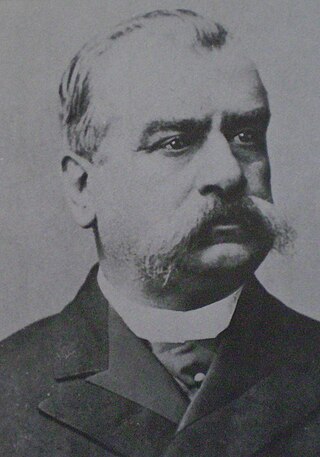 7
Benjamín Victorica fue un abogado y militar argentino que alcanzó el grado de general de brigada. Se desempeñó como diputado nacional, senador nacional (1863–1871), ministro de Guerra y Marina bajo...
7
Benjamín Victorica fue un abogado y militar argentino que alcanzó el grado de general de brigada. Se desempeñó como diputado nacional, senador nacional (1863–1871), ministro de Guerra y Marina bajo...
Sebastián de Belalcázar
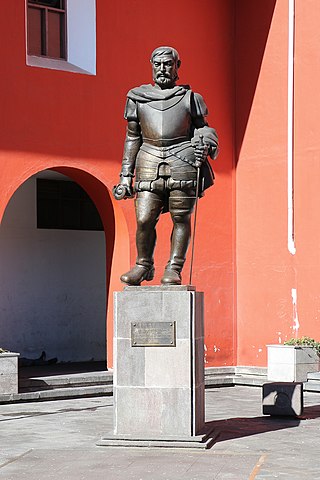 7
Sebastián Moyano y Cabrera, best known as Sebastián de Belalcázar was a Spanish conquistador. Belalcázar, also written as Benalcázar, is known as the founder of important early colonial cities in the...
7
Sebastián Moyano y Cabrera, best known as Sebastián de Belalcázar was a Spanish conquistador. Belalcázar, also written as Benalcázar, is known as the founder of important early colonial cities in the...
Che Guevara
 7
Ernesto "Che" Guevara was an Argentine Marxist revolutionary, physician, author, guerrilla leader, diplomat, and military theorist. A major figure of the Cuban Revolution, his stylized visage has...
7
Ernesto "Che" Guevara was an Argentine Marxist revolutionary, physician, author, guerrilla leader, diplomat, and military theorist. A major figure of the Cuban Revolution, his stylized visage has...
Valentín Alsina
 7
Valentín Alsina was an Argentine lawyer and politician.
7
Valentín Alsina was an Argentine lawyer and politician.
Mahatma Gandhi
 7
Mohandas Karamchand Gandhi was an Indian lawyer, anti-colonial nationalist and political ethicist who employed nonviolent resistance to lead the successful campaign for India's independence from...
7
Mohandas Karamchand Gandhi was an Indian lawyer, anti-colonial nationalist and political ethicist who employed nonviolent resistance to lead the successful campaign for India's independence from...
Manuela Pedraza
 7
Manuela Hurtado y Pedraza was a woman who fought in the reconquest of Buenos Aires after the first British invasion of 1806. Her participation was considered heroic during the last battle, and her...
7
Manuela Hurtado y Pedraza was a woman who fought in the reconquest of Buenos Aires after the first British invasion of 1806. Her participation was considered heroic during the last battle, and her...
Mario Bravo
 7
Mario Humberto Nicolás Bravo was an Argentine politician and writer.
7
Mario Humberto Nicolás Bravo was an Argentine politician and writer.
Luis Huergo
 7
Luis Augusto Huergo was an Argentine engineer prominent in the development of his country's ports.
7
Luis Augusto Huergo was an Argentine engineer prominent in the development of his country's ports.
Pope Francis
 7
Pope Francis is the Pope and head of the Catholic Church, the bishop of Rome and sovereign of the Vatican City State. He is the first pope to be a member of the Society of Jesus (Jesuits), the first...
7
Pope Francis is the Pope and head of the Catholic Church, the bishop of Rome and sovereign of the Vatican City State. He is the first pope to be a member of the Society of Jesus (Jesuits), the first...
Roque González y de Santa Cruz
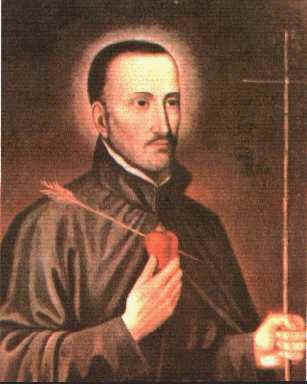 7
Roque González de Santa Cruz, SJ was a Jesuit priest who was the first missionary among the Guarani people in Paraguay. He is honored as a martyr and saint by the Catholic Church.
7
Roque González de Santa Cruz, SJ was a Jesuit priest who was the first missionary among the Guarani people in Paraguay. He is honored as a martyr and saint by the Catholic Church.
James Monroe
 7
James Monroe was an American statesman, lawyer, diplomat, and Founding Father who served as the fifth president of the United States from 1817 to 1825, a member of the Democratic-Republican Party. He...
7
James Monroe was an American statesman, lawyer, diplomat, and Founding Father who served as the fifth president of the United States from 1817 to 1825, a member of the Democratic-Republican Party. He...
Ignatius of Loyola
 7
Ignatius of Loyola, venerated as Saint Ignatius of Loyola, was a Spanish Catholic priest and theologian, who, with six companions, founded the religious order of the Society of Jesus (Jesuits), and...
7
Ignatius of Loyola, venerated as Saint Ignatius of Loyola, was a Spanish Catholic priest and theologian, who, with six companions, founded the religious order of the Society of Jesus (Jesuits), and...
Florencio Sánchez
 7
Florencio Sánchez was a Uruguayan playwright, journalist and political figure. He is considered one of the founding fathers of theater in the River Plate region of Argentina and Uruguay.
7
Florencio Sánchez was a Uruguayan playwright, journalist and political figure. He is considered one of the founding fathers of theater in the River Plate region of Argentina and Uruguay.
Nicolás Levalle
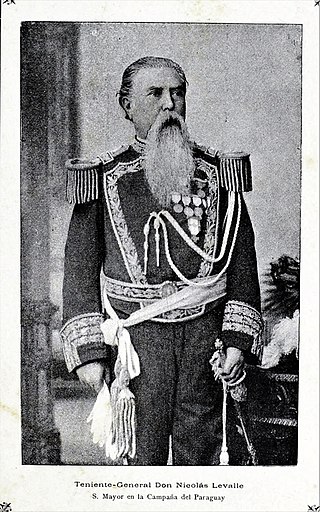 7
Nicolás Levalle (1840-1902) was an Argentine military officer, who took part in several military campaigns, including the Battle of Cepeda, Battle of Pavón on occasion of civil wars, and the Battle...
7
Nicolás Levalle (1840-1902) was an Argentine military officer, who took part in several military campaigns, including the Battle of Cepeda, Battle of Pavón on occasion of civil wars, and the Battle...
Charles Darwin
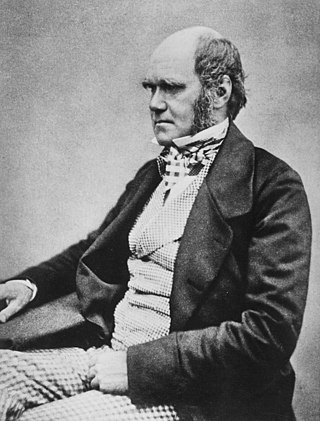 7
Charles Robert Darwin was an English naturalist, geologist and biologist, widely known for his contributions to evolutionary biology. His proposition that all species of life have descended from a...
7
Charles Robert Darwin was an English naturalist, geologist and biologist, widely known for his contributions to evolutionary biology. His proposition that all species of life have descended from a...
Juan Ramón Vidal
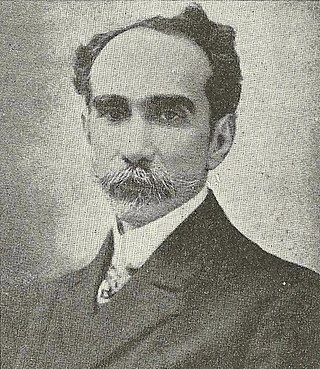 7
Juan Ramón Vidal fue un abogado y político argentino, que ejerció como gobernador de la provincia de Corrientes en dos oportunidades, a fines del siglo XIX y principios del siglo XX.
7
Juan Ramón Vidal fue un abogado y político argentino, que ejerció como gobernador de la provincia de Corrientes en dos oportunidades, a fines del siglo XIX y principios del siglo XX.
Salvador María del Carril
 7
Salvador María del Carril was a prominent Argentine jurist and policy-maker, as well as his country's first Vice President.
7
Salvador María del Carril was a prominent Argentine jurist and policy-maker, as well as his country's first Vice President.
Antonio Machado
 7
Antonio Cipriano José María y Francisco de Santa Ana Machado y Ruiz, known as Antonio Machado, was a Spanish poet and one of the leading figures of the Spanish literary movement known as the...
7
Antonio Cipriano José María y Francisco de Santa Ana Machado y Ruiz, known as Antonio Machado, was a Spanish poet and one of the leading figures of the Spanish literary movement known as the...
Pedro Echagüe
 7
Pedro Echagüe, escritor, poeta, docente, periodista, dramaturgo, fundador de tres periódicos argentinos, nacido en Buenos Aires el 8 de octubre de 1828. Fallecido en San Juan el 5 de julio de 1889.
7
Pedro Echagüe, escritor, poeta, docente, periodista, dramaturgo, fundador de tres periódicos argentinos, nacido en Buenos Aires el 8 de octubre de 1828. Fallecido en San Juan el 5 de julio de 1889.
Pedro Giachino
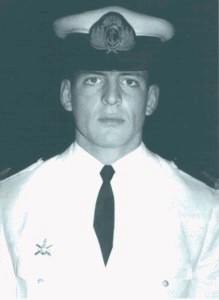 7
Capitan de Corbeta Pedro Edgardo Giachino, was an Argentine Navy officer who became the first serviceman killed in action during the Falklands War.
7
Capitan de Corbeta Pedro Edgardo Giachino, was an Argentine Navy officer who became the first serviceman killed in action during the Falklands War.
Carlos Tejedor (politician)
 7
Carlos Tejedor was an Argentine jurist and politician, Governor of Buenos Aires Province between 1878 and 1880. Tejedor was a prominent figure in the movement against the Federalization of Buenos...
7
Carlos Tejedor was an Argentine jurist and politician, Governor of Buenos Aires Province between 1878 and 1880. Tejedor was a prominent figure in the movement against the Federalization of Buenos...
George Washington
 6
George Washington was an American Founding Father, military officer, and politician who served as the first president of the United States from 1789 to 1797. Appointed by the Second Continental...
6
George Washington was an American Founding Father, military officer, and politician who served as the first president of the United States from 1789 to 1797. Appointed by the Second Continental...
Saint George
 6
Saint George, also George of Lydda, was an early Christian martyr who is venerated as a saint in Christianity. According to tradition, he was a soldier in the Roman army. Of Cappadocian Greek origin,...
6
Saint George, also George of Lydda, was an early Christian martyr who is venerated as a saint in Christianity. According to tradition, he was a soldier in the Roman army. Of Cappadocian Greek origin,...
José Fagnano
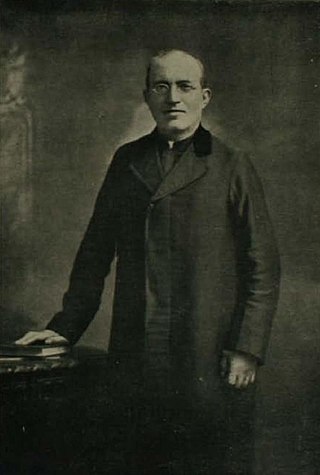 6
José Fagnano Vero fue un sacerdote misionero salesiano que dedicó la mayor parte de su vida a la misión evangelizadora de Juan Bosco, principalmente en la Patagonia.
6
José Fagnano Vero fue un sacerdote misionero salesiano que dedicó la mayor parte de su vida a la misión evangelizadora de Juan Bosco, principalmente en la Patagonia.
Luis María Campos
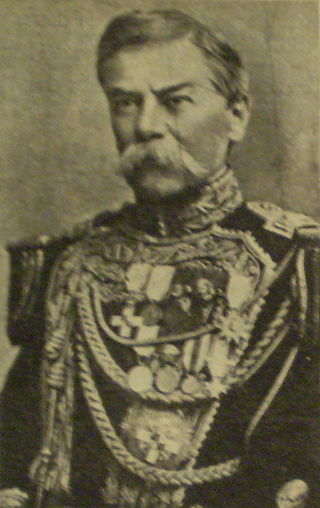 6
Luis María Campos was an Argentine general and founder of the Argentine Escuela Superior de Guerra, which is now named after him.
6
Luis María Campos was an Argentine general and founder of the Argentine Escuela Superior de Guerra, which is now named after him.
Emilio Lamarca
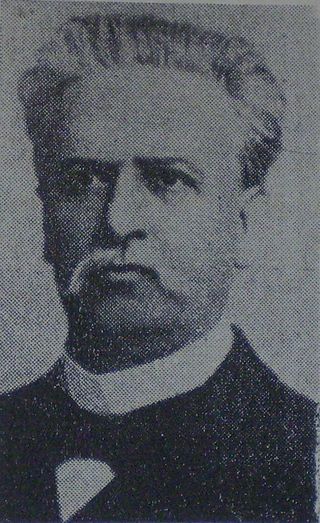 6
Emilio Lamarca fue un abogado, ingeniero, escritor y docente argentino, defensor de la educación católica en su país, oponiéndose al gobierno de Julio Argentino Roca (PAN).
6
Emilio Lamarca fue un abogado, ingeniero, escritor y docente argentino, defensor de la educación católica en su país, oponiéndose al gobierno de Julio Argentino Roca (PAN).
Ramón Lorenzo Falcón
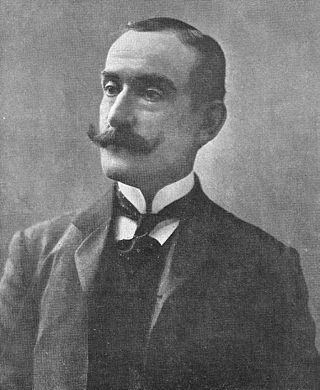 6
Ramón Lorenzo Falcón was an Argentine Army officer, politician, and Chief of the Argentine Federal Police.
6
Ramón Lorenzo Falcón was an Argentine Army officer, politician, and Chief of the Argentine Federal Police.
Eduardo Elordi
 6
Eduardo Elordi fue un político argentino que se desempeñó como gobernador del Territorio Nacional del Neuquén por cuatro períodos consecutivos entre 1906 y 1918. Desde entonces, se desempeñó como...
6
Eduardo Elordi fue un político argentino que se desempeñó como gobernador del Territorio Nacional del Neuquén por cuatro períodos consecutivos entre 1906 y 1918. Desde entonces, se desempeñó como...
Leonardo Rosales
 6
Leonardo Rosales fue un marino argentino que durante la Guerra de Independencia de la Argentina luchó en la Campaña Naval de 1814. Combatió en las guerras civiles argentinas y en la Guerra con el...
6
Leonardo Rosales fue un marino argentino que durante la Guerra de Independencia de la Argentina luchó en la Campaña Naval de 1814. Combatió en las guerras civiles argentinas y en la Guerra con el...
Juan Vucetich
 6
Juan Vucetich Kovacevich was an Argentine - Croatian anthropologist and police official who pioneered the use of dactyloscopy.
6
Juan Vucetich Kovacevich was an Argentine - Croatian anthropologist and police official who pioneered the use of dactyloscopy.
Luis Vernet
 6
Luis Vernet was a merchant from Hamburg of Huguenot descent. Vernet established a settlement on East Falkland in 1828, after first seeking approval from both the British and Argentine authorities. As...
6
Luis Vernet was a merchant from Hamburg of Huguenot descent. Vernet established a settlement on East Falkland in 1828, after first seeking approval from both the British and Argentine authorities. As...
Antonino Aberastain
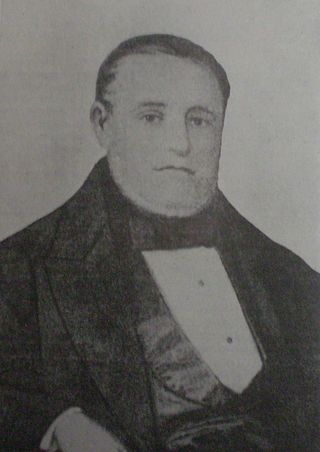 6
Antonino Aberastain fue un abogado y político argentino, líder liberal de la provincia de San Juan, gobernador en el año 1861, ejecutado después de la batalla de Rinconada del Pocito.
6
Antonino Aberastain fue un abogado y político argentino, líder liberal de la provincia de San Juan, gobernador en el año 1861, ejecutado después de la batalla de Rinconada del Pocito.
Juan José Valle
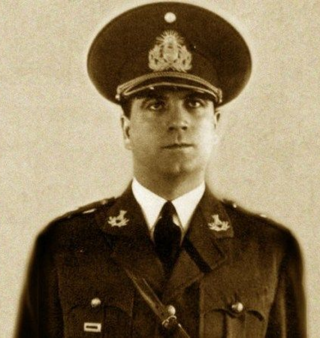 6
Juan José Valle was an Argentine general who headed a rebellion in 1956 against General Pedro Eugenio Aramburu's dictatorship.
6
Juan José Valle was an Argentine general who headed a rebellion in 1956 against General Pedro Eugenio Aramburu's dictatorship.
Elpidio González
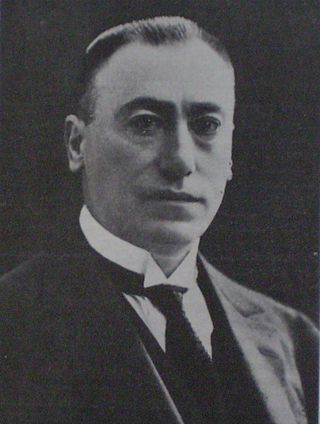 6
Elpidio González was an Argentine politician of the Radical Civic Union. He was Vice President from 1922 to 1928 in the Marcelo T. de Alvear administration.
6
Elpidio González was an Argentine politician of the Radical Civic Union. He was Vice President from 1922 to 1928 in the Marcelo T. de Alvear administration.
Antonio Álvarez Jonte
 6
Antonio Álvarez Jonte was an Argentine politician. He was born in Madrid in 1784 and moved with parents to Córdoba when young. He studied law at Córdoba University and obtained his doctorate at the...
6
Antonio Álvarez Jonte was an Argentine politician. He was born in Madrid in 1784 and moved with parents to Córdoba when young. He studied law at Córdoba University and obtained his doctorate at the...
Rita of Cascia
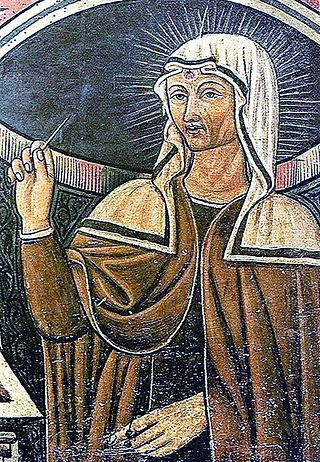 6
Rita of Cascia, OSA, was an Italian widow and Augustinian nun. After Rita's husband died, she joined an Augustinian community of religious sisters, where she was known both for practicing...
6
Rita of Cascia, OSA, was an Italian widow and Augustinian nun. After Rita's husband died, she joined an Augustinian community of religious sisters, where she was known both for practicing...
Juan Bautista Ambrosetti
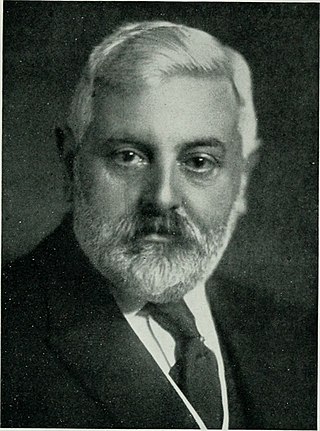 6
Juan Bautista Ambrosetti was an Argentine archaeologist, ethnographer and naturalist who helped pioneer anthropology in his country.
6
Juan Bautista Ambrosetti was an Argentine archaeologist, ethnographer and naturalist who helped pioneer anthropology in his country.
Juan Bautista Bustos
 6
Juan Bautista Bustos was an Argentine politician and military leader who participated in the British invasions of the River Plate and the Argentine Civil Wars. In 1820, he became the first...
6
Juan Bautista Bustos was an Argentine politician and military leader who participated in the British invasions of the River Plate and the Argentine Civil Wars. In 1820, he became the first...
Arturo Capdevila
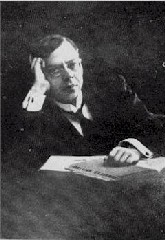 6
Arturo Capdevila fue un poeta, dramaturgo, narrador, ensayista, abogado, juez, profesor de filosofía y sociología e historiador argentino.
6
Arturo Capdevila fue un poeta, dramaturgo, narrador, ensayista, abogado, juez, profesor de filosofía y sociología e historiador argentino.
José Eusebio Colombres
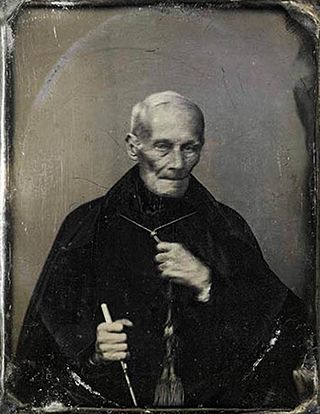 6
José Eusebio Colombres was an Argentine statesman and bishop. He was a representative to the Congress of Tucumán of 9 July 1816 which declared the Independence of Argentina, and is credited with the...
6
José Eusebio Colombres was an Argentine statesman and bishop. He was a representative to the Congress of Tucumán of 9 July 1816 which declared the Independence of Argentina, and is credited with the...
Diego Maradona
 6
Diego Armando Maradona was an Argentine professional football player and manager. Widely regarded as one of the greatest players in the history of the sport, he was one of the two joint winners of...
6
Diego Armando Maradona was an Argentine professional football player and manager. Widely regarded as one of the greatest players in the history of the sport, he was one of the two joint winners of...
Máximo Gómez
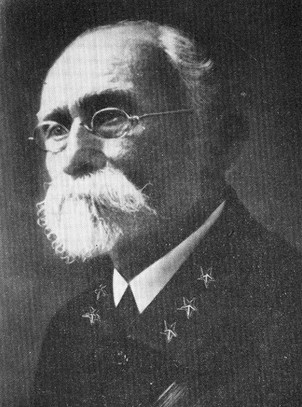 6
Máximo Gómez y Báez was a Dominican Generalissimo in Cuba's War of Independence (1895–1898). He was known for his controversial scorched-earth policy, which entailed dynamiting passenger trains and...
6
Máximo Gómez y Báez was a Dominican Generalissimo in Cuba's War of Independence (1895–1898). He was known for his controversial scorched-earth policy, which entailed dynamiting passenger trains and...
Federico Rauch
 6
Federico Rauch was a German-born colonel of Argentina. He died in the Battle of Vizcacheras.
6
Federico Rauch was a German-born colonel of Argentina. He died in the Battle of Vizcacheras.
Francisco de Biedma y Narváez
 6
Francisco de Biedma y Narváez o bien Francisco de Viedma, marino español, explorador de la costa patagónica argentina y fundador de poblaciones en 1779. Fue gobernador de la nueva Intendencia de...
6
Francisco de Biedma y Narváez o bien Francisco de Viedma, marino español, explorador de la costa patagónica argentina y fundador de poblaciones en 1779. Fue gobernador de la nueva Intendencia de...
Ángel Gallardo (civil engineer)
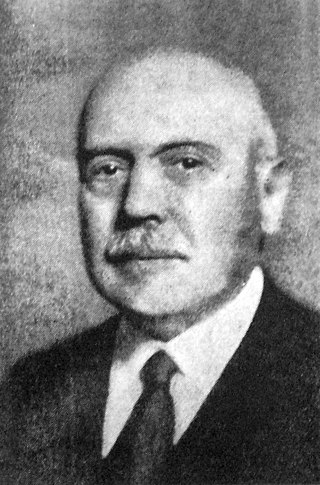 6
Ángel Gallardo was an Argentine civil engineer, natural scientist and politician. He served variously as the president of the National Council of Education, the Minister of Foreign Affairs and the...
6
Ángel Gallardo was an Argentine civil engineer, natural scientist and politician. He served variously as the president of the National Council of Education, the Minister of Foreign Affairs and the...
Lucio Norberto Mansilla
 6
Lucio Norberto Mansilla was an Argentine soldier and politician. He was the first governor of the Entre Ríos Province and fought in the battle of Vuelta de Obligado.
6
Lucio Norberto Mansilla was an Argentine soldier and politician. He was the first governor of the Entre Ríos Province and fought in the battle of Vuelta de Obligado.
Francis Xavier
 6
Francis Xavier, SJ, venerated as Saint Francis Xavier, was a Spanish Catholic missionary and saint who co-founded the Society of Jesus and, as a representative of the Portuguese Empire, led the first...
6
Francis Xavier, SJ, venerated as Saint Francis Xavier, was a Spanish Catholic missionary and saint who co-founded the Society of Jesus and, as a representative of the Portuguese Empire, led the first...
Jerónimo Luis de Cabrera
 6
Jerónimo Luis de Cabrera was a Spanish conquistador, early colonial governor over much of what today is northwestern Argentina, and founder of the city of Córdoba.
6
Jerónimo Luis de Cabrera was a Spanish conquistador, early colonial governor over much of what today is northwestern Argentina, and founder of the city of Córdoba.
Amado Nervo
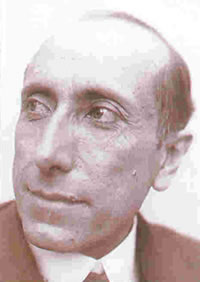 6
Amado Nervo also known as Juan Crisóstomo Ruiz de Nervo, was a Mexican poet, journalist and educator. He also acted as Mexican Ambassador to Argentina and Uruguay. His poetry was known for its use of...
6
Amado Nervo also known as Juan Crisóstomo Ruiz de Nervo, was a Mexican poet, journalist and educator. He also acted as Mexican Ambassador to Argentina and Uruguay. His poetry was known for its use of...
Ludwig van Beethoven
 6
Ludwig van Beethoven was a German composer and pianist. He is one of the most revered figures in the history of Western music; his works rank among the most performed of the classical music...
6
Ludwig van Beethoven was a German composer and pianist. He is one of the most revered figures in the history of Western music; his works rank among the most performed of the classical music...
Martín Zapata
 5
Martín Zapata fue un político argentino, miembro del Congreso que sancionó la Constitución Argentina de 1853.
5
Martín Zapata fue un político argentino, miembro del Congreso que sancionó la Constitución Argentina de 1853.
Miguel Lillo
 5
Miguel Ignacio Lillo was an Argentine naturalist and professor.
5
Miguel Ignacio Lillo was an Argentine naturalist and professor.
Raphael (archangel)
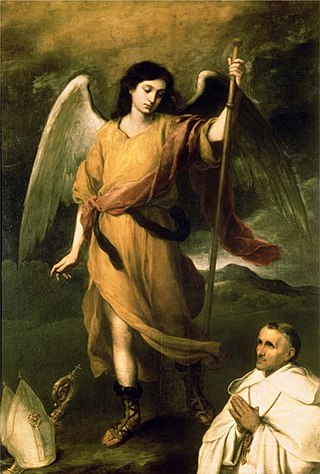 5
Raphael is an archangel first mentioned in the Book of Tobit and in 1 Enoch, both estimated to date from between the 3rd and 2nd century BCE. In later Jewish tradition, he became identified as one of...
5
Raphael is an archangel first mentioned in the Book of Tobit and in 1 Enoch, both estimated to date from between the 3rd and 2nd century BCE. In later Jewish tradition, he became identified as one of...
Augustine of Hippo
 5
Augustine of Hippo, also known as Saint Augustine, was a theologian and philosopher of Berber origin and the bishop of Hippo Regius in Numidia, Roman North Africa. His writings influenced the...
5
Augustine of Hippo, also known as Saint Augustine, was a theologian and philosopher of Berber origin and the bishop of Hippo Regius in Numidia, Roman North Africa. His writings influenced the...
José Félix Bogado
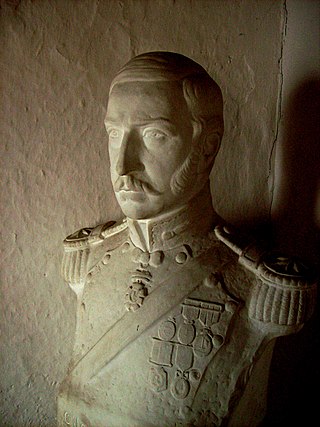 5
José Félix Bogado fue un militar de origen paraguayo, que tuvo extensa participación en la Guerra de Independencia de Argentina y brevemente en las luchas contra los indígenas y la Guerra Civil de su...
5
José Félix Bogado fue un militar de origen paraguayo, que tuvo extensa participación en la Guerra de Independencia de Argentina y brevemente en las luchas contra los indígenas y la Guerra Civil de su...
Ignacio Álvarez Thomas
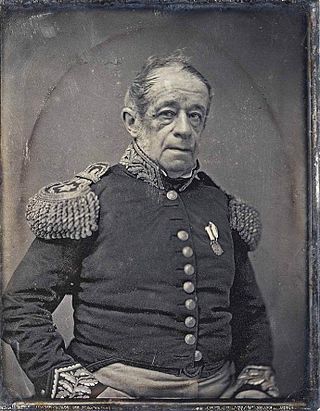 5
José Ignacio Álvarez Thomas was a South American military commander and politician of the early 19th century.
5
José Ignacio Álvarez Thomas was a South American military commander and politician of the early 19th century.
Julio Cortázar
 5
Julio Florencio Cortázar was an Argentine, naturalised French novelist, short story writer, essayist, and translator. Known as one of the founders of the Latin American Boom, Cortázar influenced an...
5
Julio Florencio Cortázar was an Argentine, naturalised French novelist, short story writer, essayist, and translator. Known as one of the founders of the Latin American Boom, Cortázar influenced an...
Carlos Saavedra Lamas
 5
Carlos Saavedra Lamas was an Argentine academic and politician, and in 1936, the first Latin American Nobel Peace Prize recipient.
5
Carlos Saavedra Lamas was an Argentine academic and politician, and in 1936, the first Latin American Nobel Peace Prize recipient.
José Ignacio de la Roza
 5
José Ignacio de la Roza fue un abogado y político argentino, que fue teniente gobernador de la actual provincia de San Juan y uno de los principales impulsores en esa provincia del cruce de los Andes.
5
José Ignacio de la Roza fue un abogado y político argentino, que fue teniente gobernador de la actual provincia de San Juan y uno de los principales impulsores en esa provincia del cruce de los Andes.
Bernard of Clairvaux
 5
Bernard of Clairvaux, O. Cist., venerated as Saint Bernard, was an abbot, mystic, co-founder of the Knights Templar, and a major leader in the reformation of the Benedictine Order through the nascent...
5
Bernard of Clairvaux, O. Cist., venerated as Saint Bernard, was an abbot, mystic, co-founder of the Knights Templar, and a major leader in the reformation of the Benedictine Order through the nascent...
Miguel de Andrea
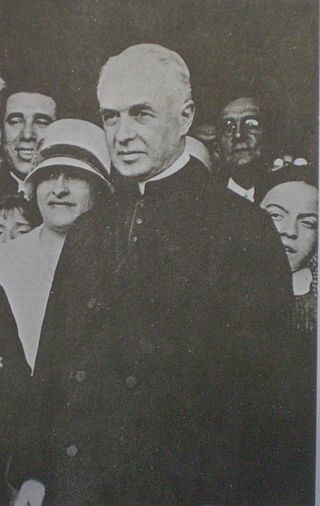 5
Miguel de los Santos de Andrea fue un sacerdote católico argentino. Fue obispo titular de Temnos.
5
Miguel de los Santos de Andrea fue un sacerdote católico argentino. Fue obispo titular de Temnos.
Don Segundo Sombra
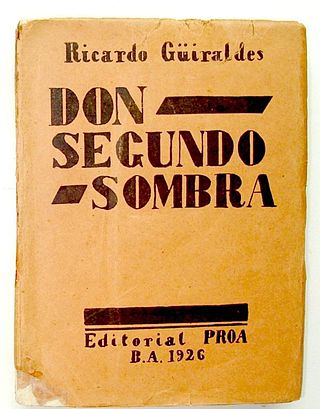 5
Don Segundo Sombra is a 1926 novel by Argentine rancher Ricardo Güiraldes. Like José Hernández's poem of the 1870s, Martín Fierro, its protagonist is a gaucho. However, unlike Hernandez's poem, Don...
5
Don Segundo Sombra is a 1926 novel by Argentine rancher Ricardo Güiraldes. Like José Hernández's poem of the 1870s, Martín Fierro, its protagonist is a gaucho. However, unlike Hernandez's poem, Don...
Émile Zola
 5
Émile Édouard Charles Antoine Zola was a French novelist, journalist, playwright, the best-known practitioner of the literary school of naturalism, and an important contributor to the development of...
5
Émile Édouard Charles Antoine Zola was a French novelist, journalist, playwright, the best-known practitioner of the literary school of naturalism, and an important contributor to the development of...
Emilio Civit
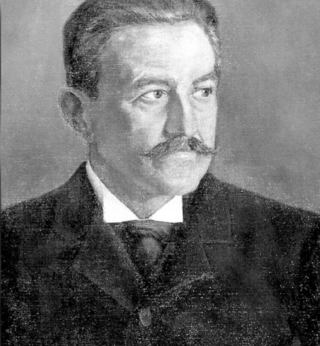 5
Emilio Civit fue un político argentino que ejerció los cargos de diputado, senador nacional, gobernador de la Provincia de Mendoza y Ministro de Obras Públicas y de Agricultura de la Nación. Hijo del...
5
Emilio Civit fue un político argentino que ejerció los cargos de diputado, senador nacional, gobernador de la Provincia de Mendoza y Ministro de Obras Públicas y de Agricultura de la Nación. Hijo del...
Carlos Casares (governor)
 5
Carlos Casares was an Argentine rancher, executive, and politician.
5
Carlos Casares was an Argentine rancher, executive, and politician.
Lope de Vega
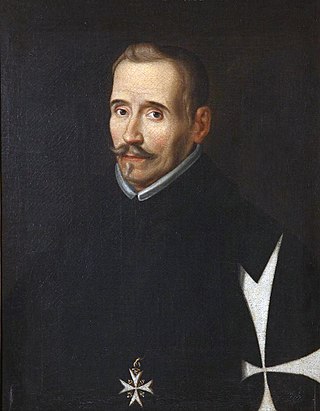 5
Félix Lope de Vega y Carpio was a Spanish playwright, poet, and novelist who was a key figure in the Spanish Golden Age (1492–1659) of Baroque literature. In the literature of Spain, Lope de Vega is...
5
Félix Lope de Vega y Carpio was a Spanish playwright, poet, and novelist who was a key figure in the Spanish Golden Age (1492–1659) of Baroque literature. In the literature of Spain, Lope de Vega is...
Hugo del Carril
 5
Pierre Bruno Hugo Fontana, otherwise known as Hugo del Carril, was an Argentine film actor, film director and tango singer of the classic era.
5
Pierre Bruno Hugo Fontana, otherwise known as Hugo del Carril, was an Argentine film actor, film director and tango singer of the classic era.
Thérèse of Lisieux
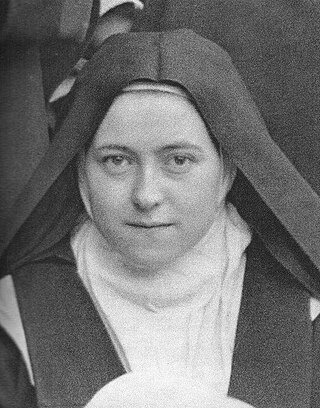 5
Therese of Lisieux, also known as Saint Therese of the Child Jesus and the Holy Face, was a French Discalced Carmelite who is widely venerated in modern times. She is popularly known in English as...
5
Therese of Lisieux, also known as Saint Therese of the Child Jesus and the Holy Face, was a French Discalced Carmelite who is widely venerated in modern times. She is popularly known in English as...
Juan Pujol García
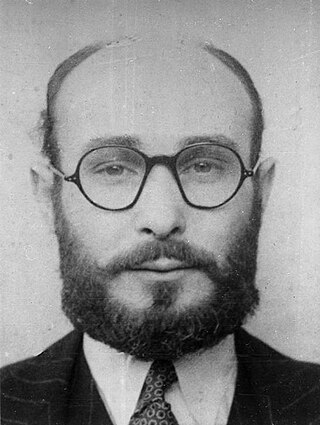 5
Juan Pujol García, also known as Joan Pujol i García, was a Spanish spy who acted as a double agent loyal to Great Britain against Nazi Germany during World War II, when he relocated to Britain to...
5
Juan Pujol García, also known as Joan Pujol i García, was a Spanish spy who acted as a double agent loyal to Great Britain against Nazi Germany during World War II, when he relocated to Britain to...
Túpac Amaru
 5
Túpac Amaru was the last Sapa Inca of the Neo-Inca State, the final remaining independent part of the Inca Empire. He was executed by the Spanish following a months-long pursuit after the fall of the...
5
Túpac Amaru was the last Sapa Inca of the Neo-Inca State, the final remaining independent part of the Inca Empire. He was executed by the Spanish following a months-long pursuit after the fall of the...
Enrique Angelelli
 5
Enrique Ángel Angelelli Carletti was a bishop of the Catholic Church in Argentina who was assassinated during the Dirty War for his involvement with social issues.
5
Enrique Ángel Angelelli Carletti was a bishop of the Catholic Church in Argentina who was assassinated during the Dirty War for his involvement with social issues.
Héctor José Cámpora
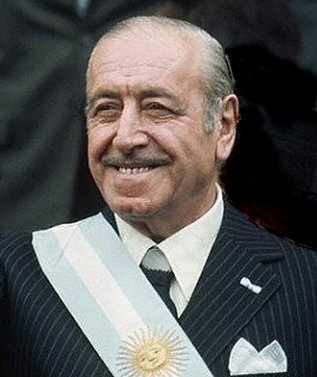 5
Héctor José Cámpora was an Argentine politician. A major figure of left-wing Peronism, Cámpora was briefly Argentine president from 25 May to 13 July 1973 and subsequently arranged for Juan Perón to...
5
Héctor José Cámpora was an Argentine politician. A major figure of left-wing Peronism, Cámpora was briefly Argentine president from 25 May to 13 July 1973 and subsequently arranged for Juan Perón to...
Cecilia Grierson
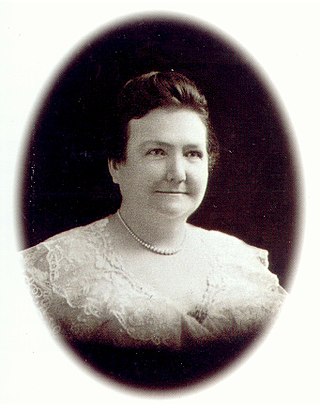 5
Cecilia Grierson was an Argentine physician, reformer, nurse educator, feminist and prominent Freethinker. She had the distinction of being the first woman to receive a Medical Degree in Argentina.
5
Cecilia Grierson was an Argentine physician, reformer, nurse educator, feminist and prominent Freethinker. She had the distinction of being the first woman to receive a Medical Degree in Argentina.
Saint Sebastian
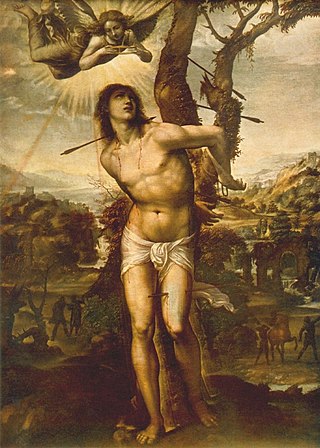 5
Sebastian was an early Christian saint and martyr. According to traditional belief, he was killed during the Diocletianic Persecution of Christians. He was initially tied to a post or tree and shot...
5
Sebastian was an early Christian saint and martyr. According to traditional belief, he was killed during the Diocletianic Persecution of Christians. He was initially tied to a post or tree and shot...
Agustín Gómez (gobernador)
 5
Agustín Gómez fue un militar y político argentino, que ejerció como gobernador de la provincia de San Juan entre 1878 y 1880.
5
Agustín Gómez fue un militar y político argentino, que ejerció como gobernador de la provincia de San Juan entre 1878 y 1880.
Ramón Franco
 5
Ramón Franco Bahamonde, was a Spanish pioneer of aviation, a political figure and brother of later caudillo Francisco Franco. Well before the Spanish Civil War, during the reign of Alfonso XIII, both...
5
Ramón Franco Bahamonde, was a Spanish pioneer of aviation, a political figure and brother of later caudillo Francisco Franco. Well before the Spanish Civil War, during the reign of Alfonso XIII, both...
Rufino Ortega
 5
Rufino Ortega was an Argentine military man and politician.
5
Rufino Ortega was an Argentine military man and politician.
Antonio Ruiz de Montoya
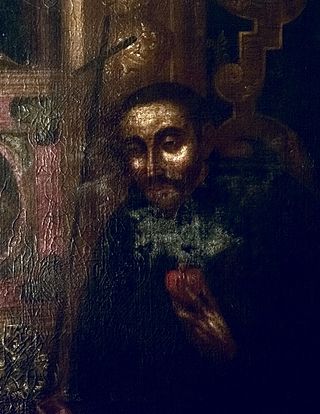 5
Antonio Ruiz de Montoya, SJ was a Jesuit priest and missionary in the Paraguayan Reductions.
5
Antonio Ruiz de Montoya, SJ was a Jesuit priest and missionary in the Paraguayan Reductions.
Luis Federico Leloir
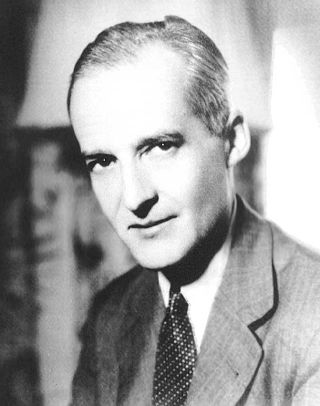 5
Luis Federico Leloir was an Argentine physician and biochemist who received the 1970 Nobel Prize in Chemistry for his discovery of the metabolic pathways by which carbohydrates are synthesized and...
5
Luis Federico Leloir was an Argentine physician and biochemist who received the 1970 Nobel Prize in Chemistry for his discovery of the metabolic pathways by which carbohydrates are synthesized and...
Juan Cruz Varela
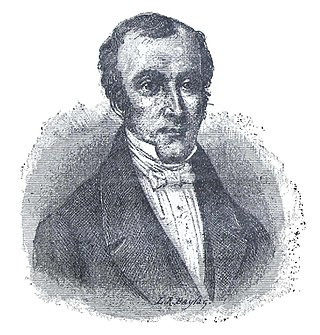 5
Juan Cruz Varela fue un escritor, periodista y político argentino, hermano del líder unitario Florencio y tío del juez de la Corte Suprema de Justicia Luis Vicente.
5
Juan Cruz Varela fue un escritor, periodista y político argentino, hermano del líder unitario Florencio y tío del juez de la Corte Suprema de Justicia Luis Vicente.
Homer
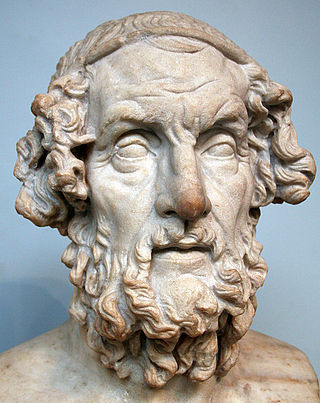 5
Homer was a Greek poet who is credited as the author of the Iliad and the Odyssey, two epic poems that are foundational works of ancient Greek literature. Homer is considered one of the most revered...
5
Homer was a Greek poet who is credited as the author of the Iliad and the Odyssey, two epic poems that are foundational works of ancient Greek literature. Homer is considered one of the most revered...
Máximo Paz
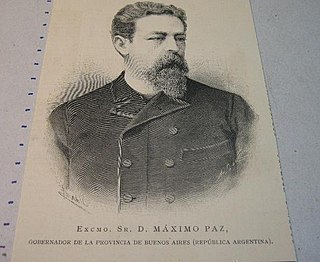 5
Máximo Paz was an Argentine politician who served as Senator, Deputy and Governor of the Province of Buenos Aires.
5
Máximo Paz was an Argentine politician who served as Senator, Deputy and Governor of the Province of Buenos Aires.
Wolfgang Amadeus Mozart
 5
Wolfgang Amadeus Mozart was a prolific and influential composer of the Classical period. Despite his short life, his rapid pace of composition resulted in more than 800 works representing virtually...
5
Wolfgang Amadeus Mozart was a prolific and influential composer of the Classical period. Despite his short life, his rapid pace of composition resulted in more than 800 works representing virtually...
Mark the Evangelist
 5
Mark the Evangelist also known as John Mark or Saint Mark, is the person who is traditionally ascribed to be the author of the Gospel of Mark. Modern Bible scholars have concluded that the Gospel of...
5
Mark the Evangelist also known as John Mark or Saint Mark, is the person who is traditionally ascribed to be the author of the Gospel of Mark. Modern Bible scholars have concluded that the Gospel of...
Victor Hugo
 5
Victor-Marie Hugo, vicomte Hugo, sometimes nicknamed the Ocean Man, was a French Romantic writer and politician. During a literary career that spanned more than sixty years, he wrote in a variety of...
5
Victor-Marie Hugo, vicomte Hugo, sometimes nicknamed the Ocean Man, was a French Romantic writer and politician. During a literary career that spanned more than sixty years, he wrote in a variety of...
Gaspar Campos
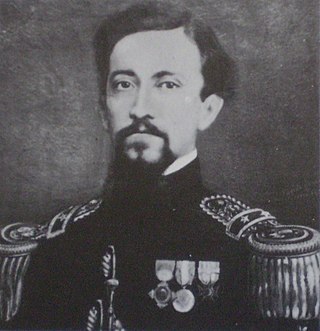 5
Gaspar Campos fue un militar argentino que participó en las guerras civiles de su país, contra los indígenas y en la guerra del Paraguay, durante la cual cayó prisionero y murió comido por las...
5
Gaspar Campos fue un militar argentino que participó en las guerras civiles de su país, contra los indígenas y en la guerra del Paraguay, durante la cual cayó prisionero y murió comido por las...
Martiniano Chilavert
 5
Martiniano Chilavert was a 19th-century Argentine military officer who took part in the country's civil wars between the Unitarians and the Federales. Originally a Unitarian opponent of Federalist...
5
Martiniano Chilavert was a 19th-century Argentine military officer who took part in the country's civil wars between the Unitarians and the Federales. Originally a Unitarian opponent of Federalist...
Timoteo Gordillo
 5
Timoteo Cristóbal Gordillo fue un empresario argentino que se especializó en el servicio de diligencias y correos por el interior de la Confederación Argentina, modernizando las comunicaciones...
5
Timoteo Cristóbal Gordillo fue un empresario argentino que se especializó en el servicio de diligencias y correos por el interior de la Confederación Argentina, modernizando las comunicaciones...
Marcellin Champagnat
 5
Marcellin Joseph Benedict Champagnat, FMS was a French Catholic religious born in Le Rosey, village of Marlhes, near St. Etienne (Loire), France. He was the founder of the Marist Brothers, a...
5
Marcellin Joseph Benedict Champagnat, FMS was a French Catholic religious born in Le Rosey, village of Marlhes, near St. Etienne (Loire), France. He was the founder of the Marist Brothers, a...
William Henry Hudson
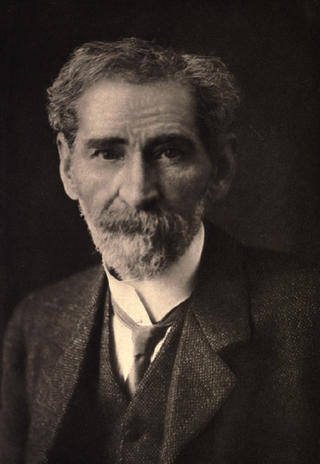 5
William Henry Hudson, known in Argentina as Guillermo Enrique Hudson, was an Anglo-Argentine author, naturalist and ornithologist.
5
William Henry Hudson, known in Argentina as Guillermo Enrique Hudson, was an Anglo-Argentine author, naturalist and ornithologist.
Jules Verne
 4
Jules Gabriel Verne was a French novelist, poet, and playwright. His collaboration with the publisher Pierre-Jules Hetzel led to the creation of the Voyages extraordinaires, a series of bestselling...
4
Jules Gabriel Verne was a French novelist, poet, and playwright. His collaboration with the publisher Pierre-Jules Hetzel led to the creation of the Voyages extraordinaires, a series of bestselling...
Juan Zelarayán
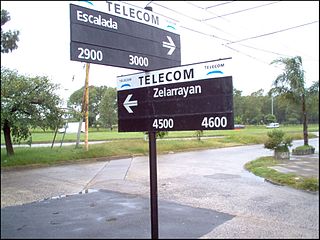 4
Juan Zelarayán Montenegro -citado con frecuencia como Juan Zelarrayán- fue un militar argentino que llegó al grado de coronel, y siendo comandante de la fortaleza Protectora Argentina, se sublevó...
4
Juan Zelarayán Montenegro -citado con frecuencia como Juan Zelarrayán- fue un militar argentino que llegó al grado de coronel, y siendo comandante de la fortaleza Protectora Argentina, se sublevó...
Juan Crisóstomo Álvarez
 4
Juan Crisóstomo Álvarez, militar argentino, que se distinguió por su valentía en la guerra civil, luchando en el bando unitario.
4
Juan Crisóstomo Álvarez, militar argentino, que se distinguió por su valentía en la guerra civil, luchando en el bando unitario.
Juan Felipe Ibarra
 4
Juan Felipe Ibarra was an Argentine soldier and politician.
He was one of the caudillos who dominated the Argentine interior during the formation of the national state,
and ruled the province of...
4
Juan Felipe Ibarra was an Argentine soldier and politician.
He was one of the caudillos who dominated the Argentine interior during the formation of the national state,
and ruled the province of...
Honorio Pueyrredón
 4
Honorio Pueyrredón was an Argentine lawyer, university professor, diplomat and politician.
4
Honorio Pueyrredón was an Argentine lawyer, university professor, diplomat and politician.
Francisco Díaz (gobernador de San Juan)
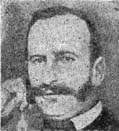 4
Francisco Domingo Díaz Oro fue un coronel del ejército de la Confederación Argentina, peleó en la batalla de Angaco y fue dos veces gobernador de la provincia de San Juan, Argentina. Fue miembro del...
4
Francisco Domingo Díaz Oro fue un coronel del ejército de la Confederación Argentina, peleó en la batalla de Angaco y fue dos veces gobernador de la provincia de San Juan, Argentina. Fue miembro del...
Bonifacio Ruiz de los Llanos
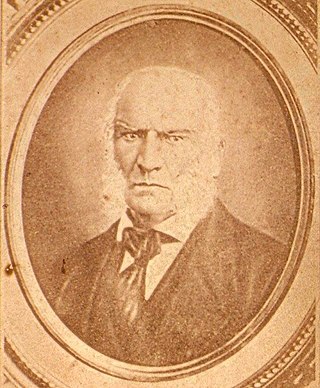 4
Manuel Bonifacio Ruiz de los Llanos fue un militar que actuó en el Ejército Auxiliar del Norte durante la guerra gaucha, movimiento independentista de las Provincias Unidas del Río de la Plata. Esta...
4
Manuel Bonifacio Ruiz de los Llanos fue un militar que actuó en el Ejército Auxiliar del Norte durante la guerra gaucha, movimiento independentista de las Provincias Unidas del Río de la Plata. Esta...
Aarón Castellanos
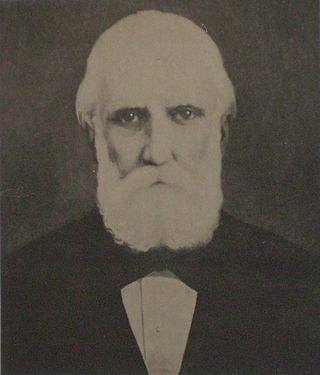 4
Aarón Castellanos was an Argentine businessman and military commander. He founded the city of Esperanza in the Santa Fe Province. A locality bearing his name, is also named after him.
4
Aarón Castellanos was an Argentine businessman and military commander. He founded the city of Esperanza in the Santa Fe Province. A locality bearing his name, is also named after him.
Martín García Mérou
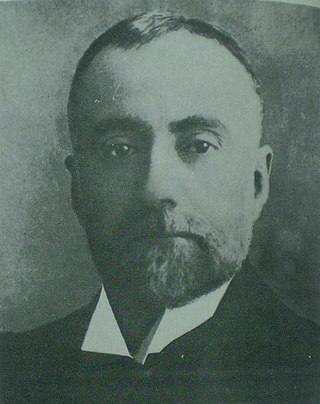 4
Martín García Mérou fue poeta, novelista y ensayista, pero fueron sus valiosas críticas literarias las que lo volvieron reconocido, tarea limitada por su condición de diplomático y político. Entre...
4
Martín García Mérou fue poeta, novelista y ensayista, pero fueron sus valiosas críticas literarias las que lo volvieron reconocido, tarea limitada por su condición de diplomático y político. Entre...
Martín Coronado
 4
Martín Coronado fue un periodista, poeta y dramaturgo argentino. A pesar de que ya publicaba obras desde 1873, recién es reconocido en 1902, gracias a La piedra del escándalo.
4
Martín Coronado fue un periodista, poeta y dramaturgo argentino. A pesar de que ya publicaba obras desde 1873, recién es reconocido en 1902, gracias a La piedra del escándalo.
José Martí
 4
José Julián Martí Pérez was a Cuban nationalist, poet, philosopher, essayist, journalist, translator, professor, and publisher, who is considered a Cuban national hero because of his role in the...
4
José Julián Martí Pérez was a Cuban nationalist, poet, philosopher, essayist, journalist, translator, professor, and publisher, who is considered a Cuban national hero because of his role in the...
Alessandro Volta
 4
Alessandro Giuseppe Antonio Anastasio Volta was an Italian physicist and chemist who was a pioneer of electricity and power and is credited as the inventor of the electric battery and the discoverer...
4
Alessandro Giuseppe Antonio Anastasio Volta was an Italian physicist and chemist who was a pioneer of electricity and power and is credited as the inventor of the electric battery and the discoverer...
Andrew the Apostle
 4
Andrew the Apostle, also called Saint Andrew, was an apostle of Jesus. According to the New Testament, he was a fisherman and one of the Twelve Apostles chosen by Jesus. The title First-Called stems...
4
Andrew the Apostle, also called Saint Andrew, was an apostle of Jesus. According to the New Testament, he was a fisherman and one of the Twelve Apostles chosen by Jesus. The title First-Called stems...
Absalón Rojas
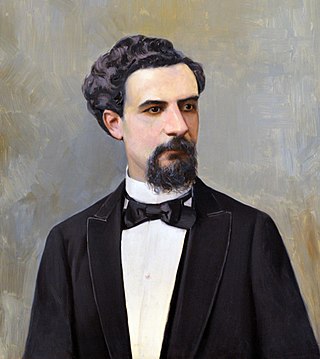 4
Absalón Rojas fue un ganadero, periodista y político argentino, que ocupó en dos oportunidades el cargo de gobernador de la provincia de Santiago del Estero.
4
Absalón Rojas fue un ganadero, periodista y político argentino, que ocupó en dos oportunidades el cargo de gobernador de la provincia de Santiago del Estero.
Jean Jaurès
 4
Auguste Marie Joseph Jean Léon Jaurès, commonly referred to as Jean Jaurès, was a French Socialist leader. Initially a Moderate Republican, he later became one of the first social democrats and the...
4
Auguste Marie Joseph Jean Léon Jaurès, commonly referred to as Jean Jaurès, was a French Socialist leader. Initially a Moderate Republican, he later became one of the first social democrats and the...
Eduardo Sívori
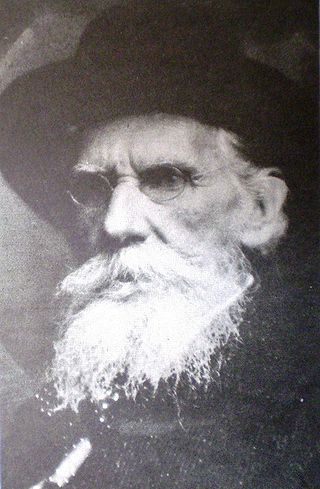 4
Eduardo Sívori was an Argentine artist widely regarded as his country's first realist painter.
4
Eduardo Sívori was an Argentine artist widely regarded as his country's first realist painter.
Roberto Fontanarrosa
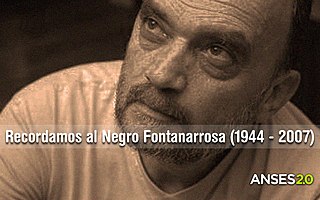 4
Roberto Alfredo Fontanarrosa, known popularly as El Negro Fontanarrosa, was an Argentine cartoonist, comics artist and writer. During his extended career, Fontanarrosa became one of the most...
4
Roberto Alfredo Fontanarrosa, known popularly as El Negro Fontanarrosa, was an Argentine cartoonist, comics artist and writer. During his extended career, Fontanarrosa became one of the most...
Giacomo Debenedetti
 4
Giacomo Debenedetti was an Italian writer, essayist and literary critic. He was one of the greatest interpreters of literary criticism in Italy in the 20th century, one of the first to embrace the...
4
Giacomo Debenedetti was an Italian writer, essayist and literary critic. He was one of the greatest interpreters of literary criticism in Italy in the 20th century, one of the first to embrace the...
Enrique Santos Discépolo
 4
Enrique Santos Discépolo (Discepolín) was an Argentine tango and milonga musician and composer, author of famous tangos like Cambalache and many others performed by several of the most important...
4
Enrique Santos Discépolo (Discepolín) was an Argentine tango and milonga musician and composer, author of famous tangos like Cambalache and many others performed by several of the most important...
Dominic Savio
 4
Dominic Savio was an Italian student of John Bosco. He was studying to be a priest when he became ill and died at the age of 14, possibly from pleurisy. He was noted for his piety and devotion to the...
4
Dominic Savio was an Italian student of John Bosco. He was studying to be a priest when he became ill and died at the age of 14, possibly from pleurisy. He was noted for his piety and devotion to the...
Cayetano José Rodríguez
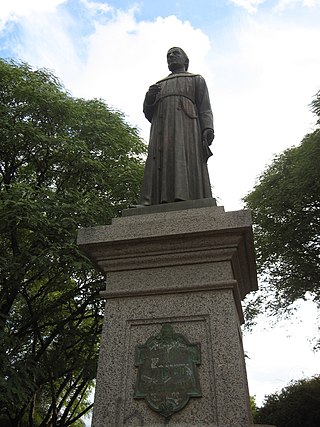 4
Cayetano José Rodríguez was an Argentine cleric, journalist and poet. He was a representative to the Congress of Tucumán of 9 July 1816 which declared the Independence of Argentina.
4
Cayetano José Rodríguez was an Argentine cleric, journalist and poet. He was a representative to the Congress of Tucumán of 9 July 1816 which declared the Independence of Argentina.
Roberto Payró
 4
Roberto Jorge Payró was an Argentine writer and journalist.
4
Roberto Jorge Payró was an Argentine writer and journalist.
Facundo Zuviría
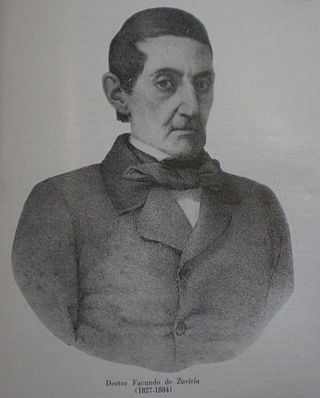 4
Facundo de Zuviría nacido como José Facundo de Zuviría y Escobar Castellanos fue un jurisconsulto y político argentino que como opositor a Juan Manuel de Rosas tuvo que exiliarse a Bolivia. Fue...
4
Facundo de Zuviría nacido como José Facundo de Zuviría y Escobar Castellanos fue un jurisconsulto y político argentino que como opositor a Juan Manuel de Rosas tuvo que exiliarse a Bolivia. Fue...
Felipe Vallese
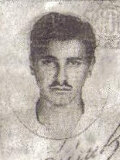 4
Felipe Vallese fue un obrero metalúrgico y miembro de la Juventud Peronista (JP), secuestrado durante la presidencia de José María Guido y luego desaparecido forzadamente. Es uno de los primeros...
4
Felipe Vallese fue un obrero metalúrgico y miembro de la Juventud Peronista (JP), secuestrado durante la presidencia de José María Guido y luego desaparecido forzadamente. Es uno de los primeros...
Albert Einstein
 4
Albert Einstein was a German-born theoretical physicist who is widely held to be one of the greatest and most influential scientists of all time. Best known for developing the theory of relativity,...
4
Albert Einstein was a German-born theoretical physicist who is widely held to be one of the greatest and most influential scientists of all time. Best known for developing the theory of relativity,...
Rodolfo Walsh
 4
Rodolfo Jorge Walsh was an Argentine writer and journalist of Irish descent, considered the founder of investigative journalism in Argentina. He is most famous for his Open Letter from a Writer to...
4
Rodolfo Jorge Walsh was an Argentine writer and journalist of Irish descent, considered the founder of investigative journalism in Argentina. He is most famous for his Open Letter from a Writer to...
Benedict of Nursia
 4
Benedict of Nursia, often known as Saint Benedict, was an Italian Christian monk, writer, and theologian. He is venerated in the Catholic Church, the Eastern Orthodox Church, the Oriental Orthodox...
4
Benedict of Nursia, often known as Saint Benedict, was an Italian Christian monk, writer, and theologian. He is venerated in the Catholic Church, the Eastern Orthodox Church, the Oriental Orthodox...
Leonardo Favio
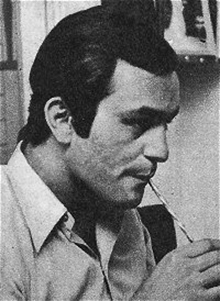 4
Fuad Jorge Jury, better known by his stage name Leonardo Favio, was an Argentine singer, actor and filmmaker. He is considered one of Argentina's best film directors and one of the country's most...
4
Fuad Jorge Jury, better known by his stage name Leonardo Favio, was an Argentine singer, actor and filmmaker. He is considered one of Argentina's best film directors and one of the country's most...
Guillermo Lehmann
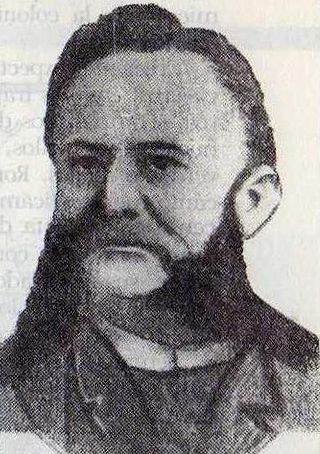 4
Guillermo Lehmann fue un empresario y periodista nacido en Alemania pero de nacionalidad suiza que, establecido en Esperanza, se dedicó a la colonización de la provincia fundando varias localidades...
4
Guillermo Lehmann fue un empresario y periodista nacido en Alemania pero de nacionalidad suiza que, establecido en Esperanza, se dedicó a la colonización de la provincia fundando varias localidades...
Saint Lucy
 4
Lucia of Syracuse (283–304), also called Saint Lucia was a Roman Christian martyr who died during the Diocletianic Persecution. She is venerated as a saint in Catholic, Anglican, Lutheran, and...
4
Lucia of Syracuse (283–304), also called Saint Lucia was a Roman Christian martyr who died during the Diocletianic Persecution. She is venerated as a saint in Catholic, Anglican, Lutheran, and...
Rubén Darío
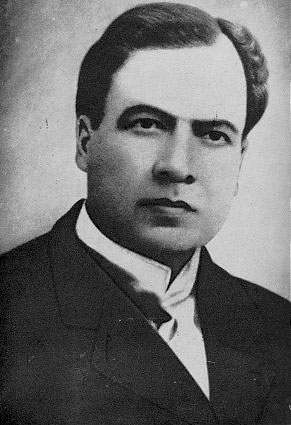 4
Félix Rubén García Sarmiento, known as Rubén Darío, was a Nicaraguan poet who initiated the Spanish-language literary movement known as modernismo (modernism) that flourished at the end of the 19th...
4
Félix Rubén García Sarmiento, known as Rubén Darío, was a Nicaraguan poet who initiated the Spanish-language literary movement known as modernismo (modernism) that flourished at the end of the 19th...
Hipólito Atilio López
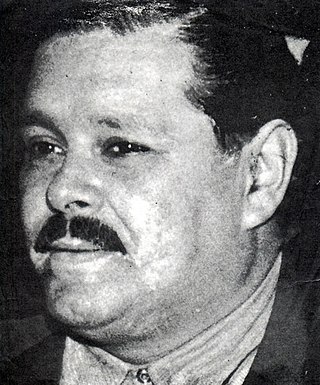 4
Hipólito Atilio López, llamado Atilio López, "el negro", fue un dirigente gremial y político argentino, perteneciente al Partido Justicialista, vicegobernador de Córdoba y víctima de la Triple A.
4
Hipólito Atilio López, llamado Atilio López, "el negro", fue un dirigente gremial y político argentino, perteneciente al Partido Justicialista, vicegobernador de Córdoba y víctima de la Triple A.
José León Suárez
Juan Llerena
 4
Juan Llerena fue un abogado y político argentino, miembro de Congreso Constituyente que sancionó la Constitución Argentina de 1853 y Senador de la Nación Argentina por la Provincia de San Luis desde...
4
Juan Llerena fue un abogado y político argentino, miembro de Congreso Constituyente que sancionó la Constitución Argentina de 1853 y Senador de la Nación Argentina por la Provincia de San Luis desde...
José Ignacio de Gorriti
Otto Krause
 4
Otto Krause was an Argentine engineer and educator.
4
Otto Krause was an Argentine engineer and educator.
Pablo Neruda
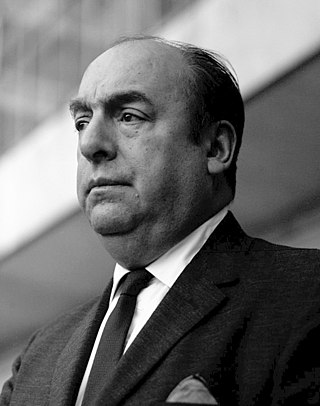 4
Pablo Neruda was a Chilean poet-diplomat and politician who won the 1971 Nobel Prize in Literature. Neruda became known as a poet when he was 13 years old and wrote in a variety of styles, including...
4
Pablo Neruda was a Chilean poet-diplomat and politician who won the 1971 Nobel Prize in Literature. Neruda became known as a poet when he was 13 years old and wrote in a variety of styles, including...
José C. Paz
 4
José Clemente Paz was an Argentine politician, diplomat and journalist, founder of La Prensa.
4
José Clemente Paz was an Argentine politician, diplomat and journalist, founder of La Prensa.
Juan Jufré
 4
Juan Jufré de Loayza y Montesa (1516–1578) was a Spanish conquistador who participated in the 1541 expedition of Pedro de Valdivia to Chile. He was the first alcalde of Santiago, Chile and held the...
4
Juan Jufré de Loayza y Montesa (1516–1578) was a Spanish conquistador who participated in the 1541 expedition of Pedro de Valdivia to Chile. He was the first alcalde of Santiago, Chile and held the...
Bernabé Márquez
 4
Bernabé José Márquez fue una personalidad y terrateniente sanisidrense. Fue propietario de la Chacra de los Márquez.
4
Bernabé José Márquez fue una personalidad y terrateniente sanisidrense. Fue propietario de la Chacra de los Márquez.
Luis Dellepiane
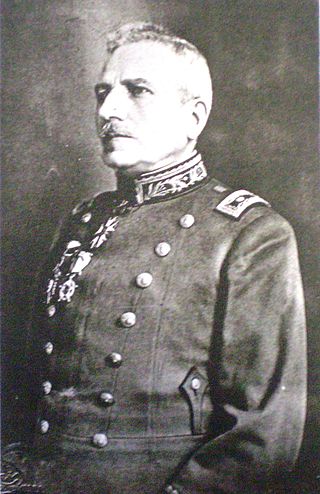 4
General Luis J. Dellepiane, born in Buenos Aires, was a civil engineer, militarist and politician of Argentina.
4
General Luis J. Dellepiane, born in Buenos Aires, was a civil engineer, militarist and politician of Argentina.
Pedro León Gallo
 4
Pedro León Díaz Gallo was an Argentine statesman and Catholic priest. He was a representative to the Congress of Tucumán which on 9 July 1816 declared the Independence of Argentina.
4
Pedro León Díaz Gallo was an Argentine statesman and Catholic priest. He was a representative to the Congress of Tucumán which on 9 July 1816 declared the Independence of Argentina.
Gregoria Matorras
 4
Gregoria Matorras del Ser fue la madre de José de San Martín, militar rioplatense clave en la independencia de Argentina, Chile y Perú del Imperio Español.
4
Gregoria Matorras del Ser fue la madre de José de San Martín, militar rioplatense clave en la independencia de Argentina, Chile y Perú del Imperio Español.
Eduardo Madero
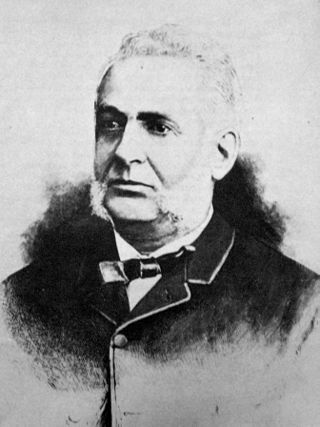 4
Eduardo Madero was an Argentine merchant, banker and developer.
4
Eduardo Madero was an Argentine merchant, banker and developer.
Mariquita Sánchez
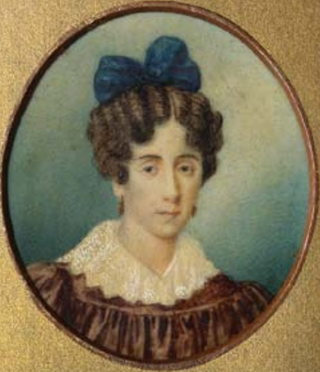 4
Mariquita Sánchez de Thompson y de Mendeville, also known as Mariquita Sánchez de Thompson, was an Argentine socialite and activist from Buenos Aires. She was one of the city's leading salonnières,...
4
Mariquita Sánchez de Thompson y de Mendeville, also known as Mariquita Sánchez de Thompson, was an Argentine socialite and activist from Buenos Aires. She was one of the city's leading salonnières,...
Emiliano Zapata
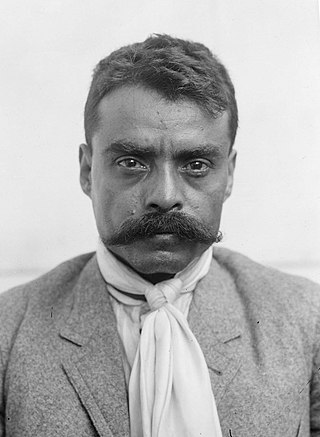 4
Emiliano Zapata Salazar was a Mexican revolutionary. He was a leading figure in the Mexican Revolution of 1910–1920, the main leader of the people's revolution in the Mexican state of Morelos, and...
4
Emiliano Zapata Salazar was a Mexican revolutionary. He was a leading figure in the Mexican Revolution of 1910–1920, the main leader of the people's revolution in the Mexican state of Morelos, and...
Francisco Pizarro
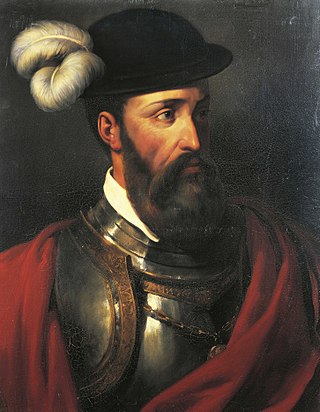 4
Francisco Pizarro, Marquess of the Atabillos was a Spanish conquistador, best known for his expeditions that led to the Spanish conquest of the Inca Empire.
4
Francisco Pizarro, Marquess of the Atabillos was a Spanish conquistador, best known for his expeditions that led to the Spanish conquest of the Inca Empire.
Mariano Acha
 4
Mariano Acha was a soldier who fought in the Argentine Civil Wars.
4
Mariano Acha was a soldier who fought in the Argentine Civil Wars.
Benjamín Matienzo
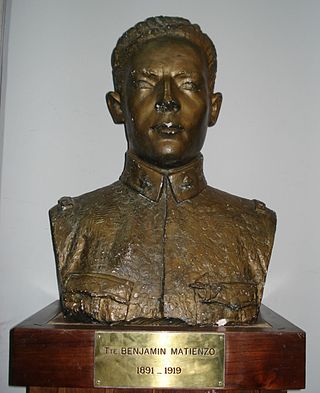 4
Benjamín Matienzo fue un militar y pionero de la aviación argentina.
4
Benjamín Matienzo fue un militar y pionero de la aviación argentina.
Evaristo Carriego
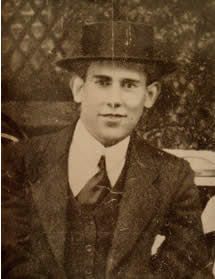 4
Evaristo Carriego, was an Argentine poet, best known today for the biography written about him by Jorge Luis Borges.
4
Evaristo Carriego, was an Argentine poet, best known today for the biography written about him by Jorge Luis Borges.
Manuel de Falla
Benito Pérez Galdós
 4
Benito Pérez Galdós was a Spanish realist novelist. He was a leading literary figure in 19th-century Spain, and some scholars consider him second only to Miguel de Cervantes in stature as a Spanish...
4
Benito Pérez Galdós was a Spanish realist novelist. He was a leading literary figure in 19th-century Spain, and some scholars consider him second only to Miguel de Cervantes in stature as a Spanish...
Isaac Newton
 4
Sir Isaac Newton was an English polymath active as a mathematician, physicist, astronomer, alchemist, theologian, and author who was described in his time as a natural philosopher. He was a key...
4
Sir Isaac Newton was an English polymath active as a mathematician, physicist, astronomer, alchemist, theologian, and author who was described in his time as a natural philosopher. He was a key...
Juan Carlos Paz
 4
Juan Carlos Paz was an Argentine composer and music theorist.
4
Juan Carlos Paz was an Argentine composer and music theorist.
Juan García del Río
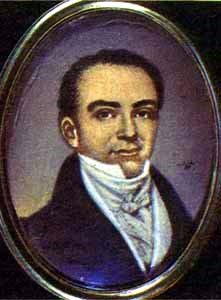 4
Juan García del Río was a Colombian diplomat, writer and politician.
4
Juan García del Río was a Colombian diplomat, writer and politician.
Luis Beltrán
 4
Luis Beltrán fue un militar y fraile franciscano argentino, de brillante actuación como fabricante y organizador de la artillería del Ejército de los Andes.
4
Luis Beltrán fue un militar y fraile franciscano argentino, de brillante actuación como fabricante y organizador de la artillería del Ejército de los Andes.
Homero Manzi
 4
Homero Nicolás Manzione Prestera, better known as Homero Manzi was an Argentine tango lyricist, author of various famous tangos.
4
Homero Nicolás Manzione Prestera, better known as Homero Manzi was an Argentine tango lyricist, author of various famous tangos.
Benito Lynch
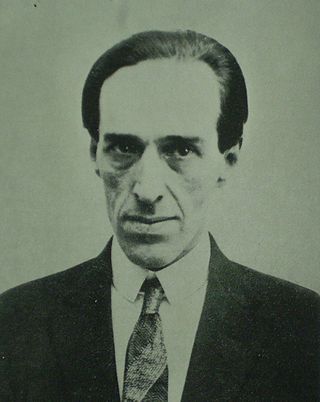 4
Benito Lynch was an Argentine novelist and short story writer.
4
Benito Lynch was an Argentine novelist and short story writer.
Paul Groussac
 4
Paul-François Groussac was a French-born Argentine writer, literary critic, historian, and librarian.
4
Paul-François Groussac was a French-born Argentine writer, literary critic, historian, and librarian.
Valentín Gómez Farías
 4
Valentín Gómez Farías was a Mexican physician and liberal politician who became president of Mexico twice, first from 1833 to 1834, during the period of the First Mexican Republic, and again from...
4
Valentín Gómez Farías was a Mexican physician and liberal politician who became president of Mexico twice, first from 1833 to 1834, during the period of the First Mexican Republic, and again from...
Infanta Isabel, Countess of Girgenti
 4
Infanta Isabel of Spain was the oldest daughter of Queen Isabella II of Spain and her husband Francisco de Asís, Duke of Cádiz. She was the heiress presumptive to the Spanish throne from 1851 to 1857...
4
Infanta Isabel of Spain was the oldest daughter of Queen Isabella II of Spain and her husband Francisco de Asís, Duke of Cádiz. She was the heiress presumptive to the Spanish throne from 1851 to 1857...
Elías Isaac Alippi
 4
Elías Isaac Alippi was an Argentine actor, theatrical impresario, film director and theater director, who was born and died in Buenos Aires. He is also remembered as an excellent tango dancer.
4
Elías Isaac Alippi was an Argentine actor, theatrical impresario, film director and theater director, who was born and died in Buenos Aires. He is also remembered as an excellent tango dancer.
Victorino de la Plaza
 4
Victorino de la Plaza was an Argentine politician and lawyer who served as President of Argentina from 9 August 1914 to 11 October 1916.
4
Victorino de la Plaza was an Argentine politician and lawyer who served as President of Argentina from 9 August 1914 to 11 October 1916.
Chico Che
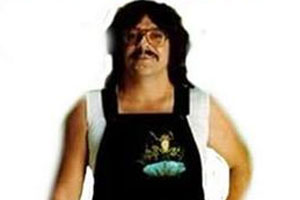 4
Francisco José Hernández Mandujano, better known as Chico Che, was a musician, singer, songwriter, and performer from Villahermosa, Tabasco, Mexico.
4
Francisco José Hernández Mandujano, better known as Chico Che, was a musician, singer, songwriter, and performer from Villahermosa, Tabasco, Mexico.
Luis Viale
 4
Luis Viale fue un comerciante italiano, uno de los fundadores del Hospital Italiano de Buenos Aires, famoso por su heroica participación durante el naufragio del vapor América, en el cual perdió la...
4
Luis Viale fue un comerciante italiano, uno de los fundadores del Hospital Italiano de Buenos Aires, famoso por su heroica participación durante el naufragio del vapor América, en el cual perdió la...
Prilidiano Pueyrredón
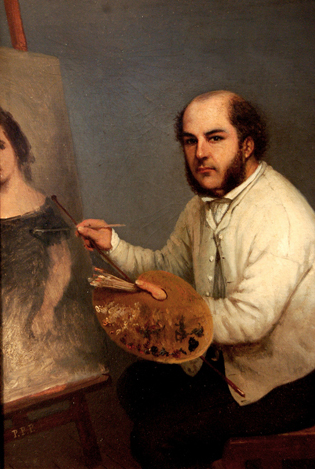 4
Prilidiano Pueyrredón was an Argentine painter, architect and engineer. One of the country's first prominent painters, he was known for his costumbrist sensibility and preference for everyday themes.
4
Prilidiano Pueyrredón was an Argentine painter, architect and engineer. One of the country's first prominent painters, he was known for his costumbrist sensibility and preference for everyday themes.
Alfredo Fortabat
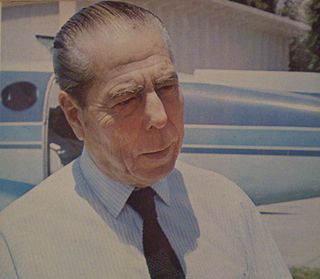 4
Alfredo Fortabat fue un empresario argentino, fundador de la compañía cementera Loma Negra C.I.A.S.A.
4
Alfredo Fortabat fue un empresario argentino, fundador de la compañía cementera Loma Negra C.I.A.S.A.
Gregorio Conrado Álvarez
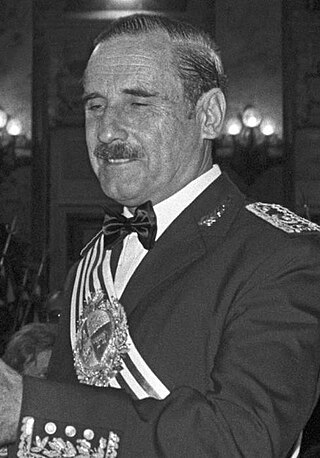 4
Gregorio Conrado Álvarez Armelino, also known as El Goyo, was an Uruguayan Army general who served as president of Uruguay from 1981 until 1985 and was the last surviving president of the...
4
Gregorio Conrado Álvarez Armelino, also known as El Goyo, was an Uruguayan Army general who served as president of Uruguay from 1981 until 1985 and was the last surviving president of the...
Carlos Snopek
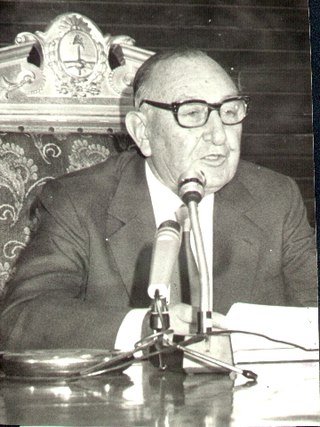 4
Carlos Snopek fue un ingeniero y político argentino que ejerció como gobernador de la Provincia de Jujuy entre 1973 y 1976, y nuevamente entre 1983 y 1987.
4
Carlos Snopek fue un ingeniero y político argentino que ejerció como gobernador de la Provincia de Jujuy entre 1973 y 1976, y nuevamente entre 1983 y 1987.
Antonio Cafiero
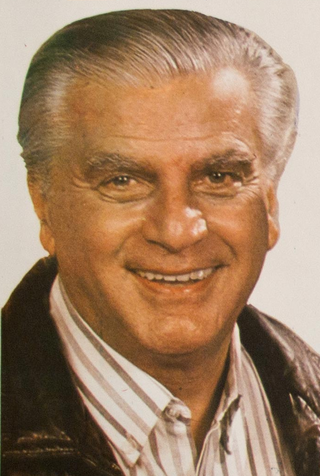 4
Antonio Francisco Cafiero was an Argentine Justicialist Party politician. Cafiero held a number of important posts throughout his career, including, most notably, the governorship of Buenos Aires...
4
Antonio Francisco Cafiero was an Argentine Justicialist Party politician. Cafiero held a number of important posts throughout his career, including, most notably, the governorship of Buenos Aires...
Mariano Pelliza
 3
Mariano A. Pelliza fue un escritor, poeta e historiador que ejerció interinamente el cargo de ministro de Relaciones Exteriores durante la presidencia de Miguel Juárez Celman.
3
Mariano A. Pelliza fue un escritor, poeta e historiador que ejerció interinamente el cargo de ministro de Relaciones Exteriores durante la presidencia de Miguel Juárez Celman.
Antonio Malaver
 3
Antonio E. Malaver fue un político y jurisconsulto argentino.
3
Antonio E. Malaver fue un político y jurisconsulto argentino.
Francisco de Haro
 3
Francisco de Haro was a Californio politician, soldier, and ranchero, who served as the 1st and 5th Alcalde of San Francisco. He notably commissioned the first land survey of San Francisco to Jean...
3
Francisco de Haro was a Californio politician, soldier, and ranchero, who served as the 1st and 5th Alcalde of San Francisco. He notably commissioned the first land survey of San Francisco to Jean...
Nicolás Boccuzzi
 3
Nicolás Boccuzzi fue un médico y político ítalo-argentino. Fue intendente de Florencio Varela además de haber sido uno de los fundadores de aquella localidad. Creó y fue presidente de la sociedad...
3
Nicolás Boccuzzi fue un médico y político ítalo-argentino. Fue intendente de Florencio Varela además de haber sido uno de los fundadores de aquella localidad. Creó y fue presidente de la sociedad...
Oreste Arbo y Blanco
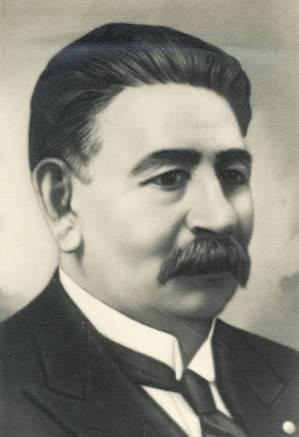 3
Oreste Arbo y Blanco fue un militar y político argentino. Fue el noveno Gobernador del Territorio Nacional del Chaco, desde la Organización de los Territorios Nacionales de 1884(Ley 1532), entre el...
3
Oreste Arbo y Blanco fue un militar y político argentino. Fue el noveno Gobernador del Territorio Nacional del Chaco, desde la Organización de los Territorios Nacionales de 1884(Ley 1532), entre el...
Hilarión de la Quintana
 3
Hilarión de la Quintana fue un militar rioplatense, participante en las Guerra de Independencia de la Argentina, del Uruguay y de Chile.
3
Hilarión de la Quintana fue un militar rioplatense, participante en las Guerra de Independencia de la Argentina, del Uruguay y de Chile.
Olga Cossettini
 3
Victoria Olga Cossettini was an Argentine teacher, educator, and pedagogue. She spent her career, together with her sister, Leticia Cossettini, transforming traditional schooling.
3
Victoria Olga Cossettini was an Argentine teacher, educator, and pedagogue. She spent her career, together with her sister, Leticia Cossettini, transforming traditional schooling.
Héctor Barreyro
 3
Héctor Barreyro fue un médico argentino que ocupó el cargo de gobernador del entonces Territorio Nacional de Misiones durante dos períodos, de 1917 a 1920 y desde 1922 hasta 1930.
3
Héctor Barreyro fue un médico argentino que ocupó el cargo de gobernador del entonces Territorio Nacional de Misiones durante dos períodos, de 1917 a 1920 y desde 1922 hasta 1930.
Louis Braille
 3
Louis Braille was a French educator and the inventor of a reading and writing system named after him, braille, intended for use by visually impaired people. His system is used worldwide and remains...
3
Louis Braille was a French educator and the inventor of a reading and writing system named after him, braille, intended for use by visually impaired people. His system is used worldwide and remains...
Francisco Ortiz de Ocampo
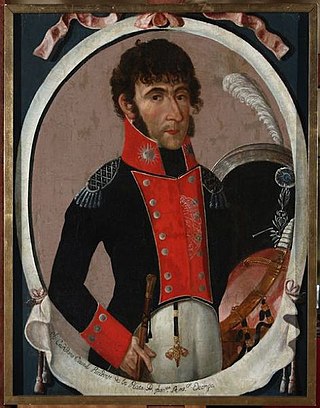 3
Francisco Antonio Ortiz de Ocampo fue un Militar argentino, patriota de la Revolución de Mayo, primer general de la guerra de Independencia de la Argentina y gobernador de las provincias de Córdoba y...
3
Francisco Antonio Ortiz de Ocampo fue un Militar argentino, patriota de la Revolución de Mayo, primer general de la guerra de Independencia de la Argentina y gobernador de las provincias de Córdoba y...
Ferdinand III of Castile
 3
Ferdinand III, called the Saint, was King of Castile from 1217 and King of León from 1230 as well as King of Galicia from 1231. He was the son of Alfonso IX of León and Berenguela of Castile. Through...
3
Ferdinand III, called the Saint, was King of Castile from 1217 and King of León from 1230 as well as King of Galicia from 1231. He was the son of Alfonso IX of León and Berenguela of Castile. Through...
Felipe Gallardo
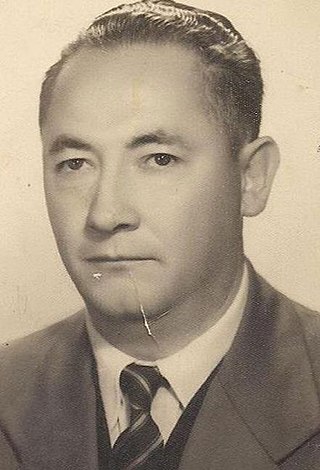 3
Felipe Gallardo, fue un político argentino, primer gobernador de la Provincia del Chaco.
3
Felipe Gallardo, fue un político argentino, primer gobernador de la Provincia del Chaco.
Plácido Martínez
 3
Plácido Nicolás Martínez fue un militar y político argentino, figura descollante del Partido Liberal de su provincia, y que participó en las últimas guerras civiles argentinas.
3
Plácido Nicolás Martínez fue un militar y político argentino, figura descollante del Partido Liberal de su provincia, y que participó en las últimas guerras civiles argentinas.
Pascual Echagüe
 3
Pascual Echagüe, was an Argentine soldier and politician. He served as Governor of Entre Ríos and Santa Fe provinces and Minister of War and Navy during the governments of Urquiza and Derqui. He...
3
Pascual Echagüe, was an Argentine soldier and politician. He served as Governor of Entre Ríos and Santa Fe provinces and Minister of War and Navy during the governments of Urquiza and Derqui. He...
Eufrasio Loza
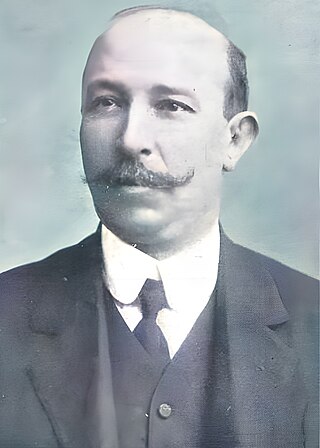 3
Eufrasio Segundo Loza fue un político perteneciente a la Unión Cívica Radical, dirigente del Club Católico, abogado y profesor universitario argentino, que fue Senador provincial por el Departamento...
3
Eufrasio Segundo Loza fue un político perteneciente a la Unión Cívica Radical, dirigente del Club Católico, abogado y profesor universitario argentino, que fue Senador provincial por el Departamento...
Enrique Larreta
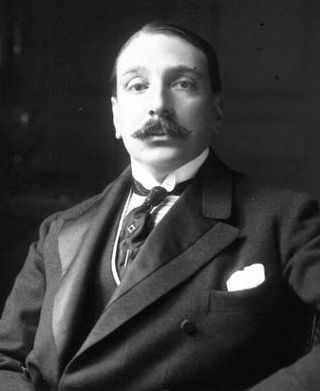 3
Enrique Rodríguez Larreta was an Argentine writer, academic, diplomat and art collector.
He was nominated for the Nobel Prize in Literature ten times.
3
Enrique Rodríguez Larreta was an Argentine writer, academic, diplomat and art collector.
He was nominated for the Nobel Prize in Literature ten times.
Luke the Evangelist
 3
Luke the Evangelist is one of the Four Evangelists—the four traditionally ascribed authors of the canonical gospels. The Early Church Fathers ascribed to him authorship of both the Gospel of Luke and...
3
Luke the Evangelist is one of the Four Evangelists—the four traditionally ascribed authors of the canonical gospels. The Early Church Fathers ascribed to him authorship of both the Gospel of Luke and...
Manuel José de Lavardén
 3
Manuel José de Lavardén fue un abogado, docente, dramaturgo y periodista rioplatense, precursor de la Revolución de Mayo.
3
Manuel José de Lavardén fue un abogado, docente, dramaturgo y periodista rioplatense, precursor de la Revolución de Mayo.
César Milstein
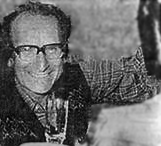 3
César Milstein, CH, FRS was an Argentine biochemist in the field of antibody research. Milstein shared the Nobel Prize in Physiology or Medicine in 1984 with Niels Kaj Jerne and Georges J. F. Köhler...
3
César Milstein, CH, FRS was an Argentine biochemist in the field of antibody research. Milstein shared the Nobel Prize in Physiology or Medicine in 1984 with Niels Kaj Jerne and Georges J. F. Köhler...
Matthew the Apostle
 3
Matthew the Apostle is named in the New Testament as one of the twelve apostles of Jesus. According to Christian traditions, he was also one of the four Evangelists as author of the Gospel of...
3
Matthew the Apostle is named in the New Testament as one of the twelve apostles of Jesus. According to Christian traditions, he was also one of the four Evangelists as author of the Gospel of...
Isidore the Laborer
 3
Isidore the Laborer, also known as Isidore the Farmer, was a Spanish farmworker known for his piety toward the poor and animals. He is the Catholic patron saint of farmers, and of Madrid; El...
3
Isidore the Laborer, also known as Isidore the Farmer, was a Spanish farmworker known for his piety toward the poor and animals. He is the Catholic patron saint of farmers, and of Madrid; El...
Ricardo Videla
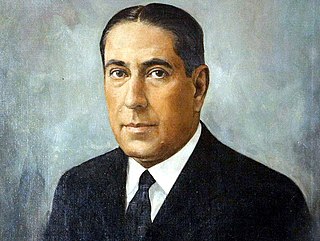 3
Ricardo Videla fue un ingeniero, historiador y político argentino, miembro del Partido Demócrata (PD), gobernador de la provincia de Mendoza entre 1932 y 1935, durante la Década Infame.
3
Ricardo Videla fue un ingeniero, historiador y político argentino, miembro del Partido Demócrata (PD), gobernador de la provincia de Mendoza entre 1932 y 1935, durante la Década Infame.
Gabriel de Aristizábal y Espinosa
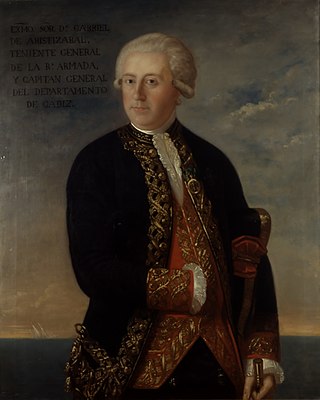 3
Gabriel de Aristizábal y Espinosa, marino militar español.
3
Gabriel de Aristizábal y Espinosa, marino militar español.
Tránsito Cocomarola
 3
Mario del Tránsito Cocomarola was an Argentine musician and folklorist, and is known as one of the most influential figures of chamamé.
3
Mario del Tránsito Cocomarola was an Argentine musician and folklorist, and is known as one of the most influential figures of chamamé.
Antonio González (gobernador)
 3
Antonio González era un doctor en Leyes y funcionario español del siglo XVI que desempeñó varios cargos burocráticos en la Península y en la América imperial, como el de presidente pretorial de la...
3
Antonio González era un doctor en Leyes y funcionario español del siglo XVI que desempeñó varios cargos burocráticos en la Península y en la América imperial, como el de presidente pretorial de la...
José Antonio Cabrera
 3
José Antonio Cabrera y Cabrera was an Argentine statesman and lawyer. He was a representative to the Congress of Tucumán which on 9 July 1816 declared the Independence of Argentina.
3
José Antonio Cabrera y Cabrera was an Argentine statesman and lawyer. He was a representative to the Congress of Tucumán which on 9 July 1816 declared the Independence of Argentina.
Pablo Podestá
 3
Cecilio Pablo Fernando Podestá was a Uruguayan-Argentine stage actor, singer, acrobat, sculptor and painter. He is considered to be one of the most prominent actors of classical Argentina theatre,...
3
Cecilio Pablo Fernando Podestá was a Uruguayan-Argentine stage actor, singer, acrobat, sculptor and painter. He is considered to be one of the most prominent actors of classical Argentina theatre,...
Pythagoras
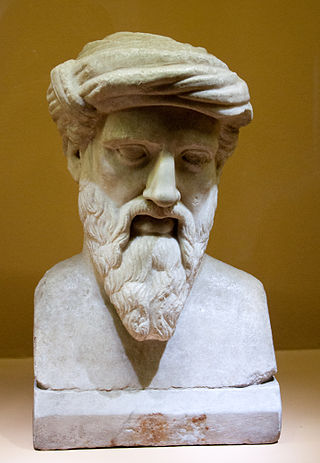 3
Pythagoras of Samos was an ancient Ionian Greek philosopher, polymath and the eponymous founder of Pythagoreanism. His political and religious teachings were well known in Magna Graecia and...
3
Pythagoras of Samos was an ancient Ionian Greek philosopher, polymath and the eponymous founder of Pythagoreanism. His political and religious teachings were well known in Magna Graecia and...
Alejandro Magariños Cervantes
 3
Alejandro Magariños Cervantes (1825–1893) was an Uruguayan writer and lawyer. He was Minister of Finance in 1869.
3
Alejandro Magariños Cervantes (1825–1893) was an Uruguayan writer and lawyer. He was Minister of Finance in 1869.
Federico García Lorca
 3
Federico del Sagrado Corazón de Jesús García Lorca, known as Federico García Lorca, was a Spanish poet, playwright, and theatre director. García Lorca achieved international recognition as an...
3
Federico del Sagrado Corazón de Jesús García Lorca, known as Federico García Lorca, was a Spanish poet, playwright, and theatre director. García Lorca achieved international recognition as an...
Aníbal Troilo
 3
Aníbal Carmelo Troilo, also known as Pichuco, was an Argentine tango musician.
3
Aníbal Carmelo Troilo, also known as Pichuco, was an Argentine tango musician.
Ángel Justiniano Carranza
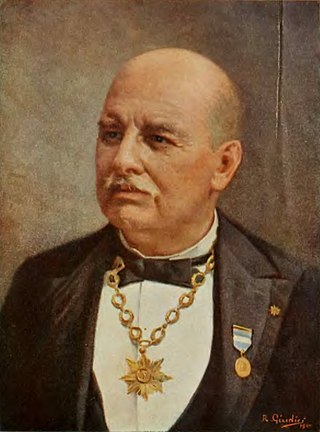 3
Ángel Justiniano Carranza fue un abogado, literato, historiador y biógrafo argentino. Ejerció su profesión de doctor y abogado casi exclusivamente en la función pública, siendo un notable publicista....
3
Ángel Justiniano Carranza fue un abogado, literato, historiador y biógrafo argentino. Ejerció su profesión de doctor y abogado casi exclusivamente en la función pública, siendo un notable publicista....
Onésimo Leguizamón
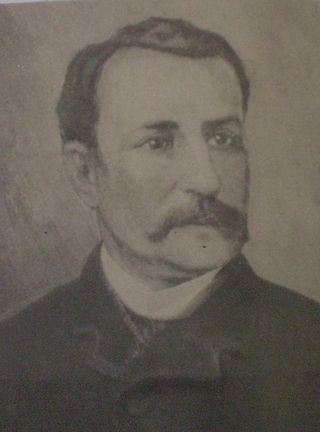 3
Onésimo Leguizamón fue un abogado, periodista y político argentino, ministro de Justicia e Instrucción Pública durante la presidencia de Nicolás Avellaneda y juez de la Corte Suprema de Justicia de...
3
Onésimo Leguizamón fue un abogado, periodista y político argentino, ministro de Justicia e Instrucción Pública durante la presidencia de Nicolás Avellaneda y juez de la Corte Suprema de Justicia de...
Delfín Gallo
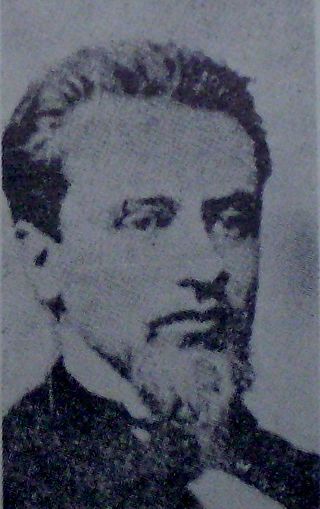 3
Delfín Gallo was an Argentine politician and journalist.
3
Delfín Gallo was an Argentine politician and journalist.
Mariano Rafael Castex
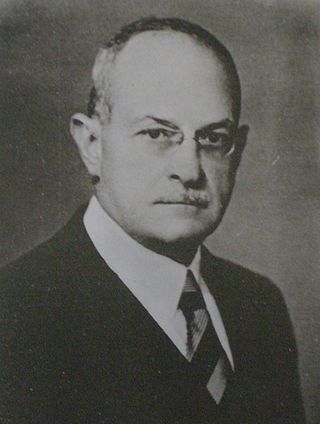 3
Mariano Rafael Castex fue un médico argentino.
3
Mariano Rafael Castex fue un médico argentino.
Ramón Lista
 3
Ramón Lista was an Argentinian soldier and explorer. He was the second governor of the Territorio Nacional de Santa Cruz, precursor of Santa Cruz Province, Argentina. He played a key role in the...
3
Ramón Lista was an Argentinian soldier and explorer. He was the second governor of the Territorio Nacional de Santa Cruz, precursor of Santa Cruz Province, Argentina. He played a key role in the...
Álvaro Barros
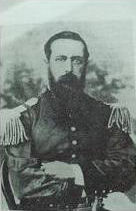 3
Álvaro Gabriel Barros García fue un militar, político y escritor argentino.
3
Álvaro Gabriel Barros García fue un militar, político y escritor argentino.
Emilio Frers
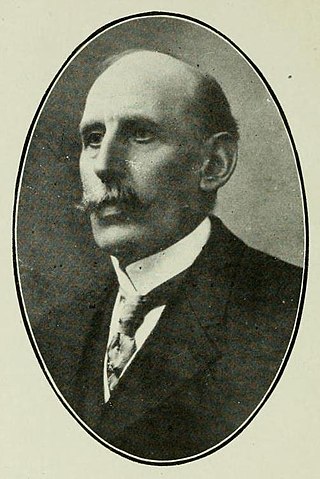 3
Emilio Frers fue un abogado y político argentino, quien se desempeñó como ministro de Agricultura durante la segunda presidencia de Julio Argentino Roca; además, Frers ocupó el cargo de presidente de...
3
Emilio Frers fue un abogado y político argentino, quien se desempeñó como ministro de Agricultura durante la segunda presidencia de Julio Argentino Roca; además, Frers ocupó el cargo de presidente de...
Carlos Culmey
 3
Carlos Culmey (Neuwied, 19 de junho de 1879 —, foi um engenheiro civil alemão responsável pela colonização de vários locais na Argentina e no Brasil.
3
Carlos Culmey (Neuwied, 19 de junho de 1879 —, foi um engenheiro civil alemão responsável pela colonização de vários locais na Argentina e no Brasil.
Esteban de Luca
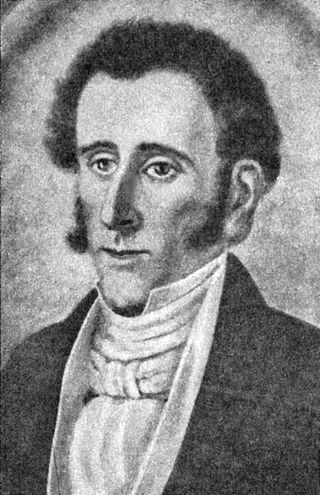 3
Esteban de Luca was an Argentine military officer, poet, and government official during the nation's early years.
3
Esteban de Luca was an Argentine military officer, poet, and government official during the nation's early years.
Anna Maria Janer Anglarill
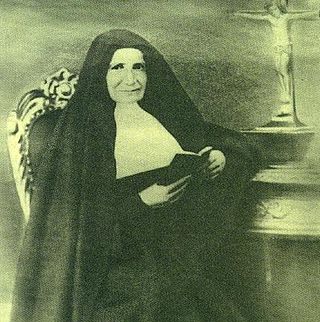 3
Anna Maria Janer Anglarill, also called Maria Janer, was a Spanish religious sister who established the congregation of the Sisters of the Holy Family of Urgell. She dedicated her life to the service...
3
Anna Maria Janer Anglarill, also called Maria Janer, was a Spanish religious sister who established the congregation of the Sisters of the Holy Family of Urgell. She dedicated her life to the service...
Oscar Alfredo Gálvez
 3
Oscar Alfredo Gálvez was an Argentine racing driver, known best for participating – and for scoring two championship points – in the Formula One World Championship Grand Prix on 18 January 1953.
3
Oscar Alfredo Gálvez was an Argentine racing driver, known best for participating – and for scoring two championship points – in the Formula One World Championship Grand Prix on 18 January 1953.
José Eugenio Tello
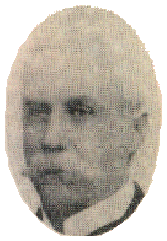 3
José Eugenio Tello was an Argentine politician that governed the provinces of Jujuy, Chubut, and Río Negro.
3
José Eugenio Tello was an Argentine politician that governed the provinces of Jujuy, Chubut, and Río Negro.
Albert Schweitzer
 3
Ludwig Philipp Albert Schweitzer was an Alsatian polymath. He was a theologian, organist, musicologist, writer, humanitarian, philosopher, and physician. A Lutheran minister, Schweitzer challenged...
3
Ludwig Philipp Albert Schweitzer was an Alsatian polymath. He was a theologian, organist, musicologist, writer, humanitarian, philosopher, and physician. A Lutheran minister, Schweitzer challenged...
Mariano Acosta (politician)
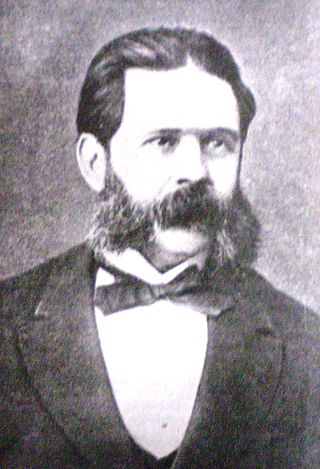 3
Mariano Acosta was an Argentine lawyer and politician.
3
Mariano Acosta was an Argentine lawyer and politician.
Aimé Painé
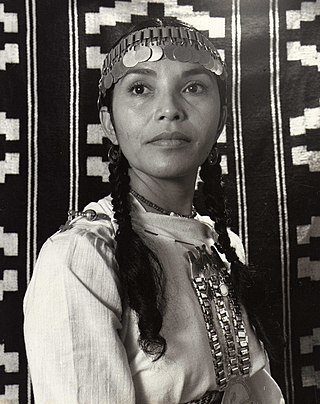 3
Aimé Painé, born Olga Elisa Painé, was an Argentine singer of Mapuche and Tehuelche origin who dedicated herself to the rescue and diffusion of the folk music of her people.
3
Aimé Painé, born Olga Elisa Painé, was an Argentine singer of Mapuche and Tehuelche origin who dedicated herself to the rescue and diffusion of the folk music of her people.
Juana de Ibarbourou
 3
Juana Fernández Morales de Ibarbourou, also known as Juana de América, was a Uruguayan poet and one of the most popular writers of Spanish America. Her poetry, the earliest of which is often highly...
3
Juana Fernández Morales de Ibarbourou, also known as Juana de América, was a Uruguayan poet and one of the most popular writers of Spanish America. Her poetry, the earliest of which is often highly...
Arturo Mateo Bas
 3
Arturo M. Bas Capdevila, político y abogado argentino, fuertemente identificado con el catolicismo y la doctrina socialcristiana. Entre otros partidos políticos, integró el Partido Constitucional, la...
3
Arturo M. Bas Capdevila, político y abogado argentino, fuertemente identificado con el catolicismo y la doctrina socialcristiana. Entre otros partidos políticos, integró el Partido Constitucional, la...
Pascual Contursi
 3
Pascual Contursi was an Argentine poet, singer, and guitarist. He composed lyrics for 33 tango compositions – many well-known.
3
Pascual Contursi was an Argentine poet, singer, and guitarist. He composed lyrics for 33 tango compositions – many well-known.
Ramón Carrillo
 3
Ramón Carrillo was an Argentine neurosurgeon, neurobiologist, physician, academic, public health advocate, and from 1949 to 1954 the nation's first Minister of Public Health.
3
Ramón Carrillo was an Argentine neurosurgeon, neurobiologist, physician, academic, public health advocate, and from 1949 to 1954 the nation's first Minister of Public Health.
Mariano Sánchez de Loria
 3
Mariano Sánchez de Loria was a Bolivian-born statesman and lawyer. He was a representative to the Congress of Tucumán which on 9 July 1816 declared the Independence of Argentina.
3
Mariano Sánchez de Loria was a Bolivian-born statesman and lawyer. He was a representative to the Congress of Tucumán which on 9 July 1816 declared the Independence of Argentina.
Marco Avellaneda
Pedro Miguel Aráoz
 3
Pedro Miguel Aráoz was an Argentine statesman and priest. He was a representative in the 1816 Congress of Tucumán, which declared the Independence of Argentina.
3
Pedro Miguel Aráoz was an Argentine statesman and priest. He was a representative in the 1816 Congress of Tucumán, which declared the Independence of Argentina.
Robert Koch
 3
Heinrich Hermann Robert Koch was a German physician and microbiologist. As the discoverer of the specific causative agents of deadly infectious diseases including tuberculosis, cholera and anthrax,...
3
Heinrich Hermann Robert Koch was a German physician and microbiologist. As the discoverer of the specific causative agents of deadly infectious diseases including tuberculosis, cholera and anthrax,...
Alejandro Mathus Hoyos
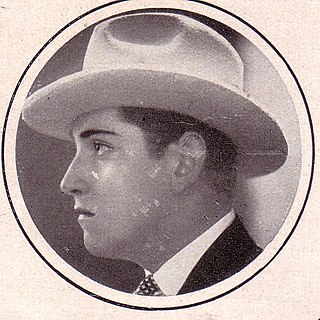 3
Alejandro Mathus Hoyos (1904-1952) fue un abogado, profesor e historiador mendocino.
3
Alejandro Mathus Hoyos (1904-1952) fue un abogado, profesor e historiador mendocino.
Mariano Fragueiro
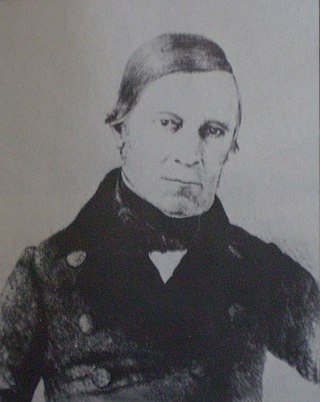 3
Mariano Antonio Fragueiro, fue un comerciante, financista y político argentino, ministro de Hacienda de la Confederación Argentina y gobernador de Córdoba.
3
Mariano Antonio Fragueiro, fue un comerciante, financista y político argentino, ministro de Hacienda de la Confederación Argentina y gobernador de Córdoba.
Lucas Córdoba
 3
Lucas Alejandro Córdoba fue un militar y político argentino, gobernador de la provincia de Tucumán en dos períodos alternos.
3
Lucas Alejandro Córdoba fue un militar y político argentino, gobernador de la provincia de Tucumán en dos períodos alternos.
Johannes Gutenberg
 3
Johannes Gensfleisch zur Laden zum Gutenberg was a German inventor and craftsman who introduced letterpress printing to Europe with his movable-type printing press. Though movable type was already in...
3
Johannes Gensfleisch zur Laden zum Gutenberg was a German inventor and craftsman who introduced letterpress printing to Europe with his movable-type printing press. Though movable type was already in...
Nicolas Léonard Sadi Carnot
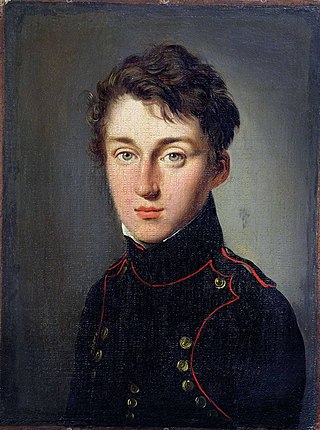 3
Nicolas Léonard Sadi Carnot was a French mechanical engineer in the French Army, military scientist and physicist, often described as the "father of thermodynamics". He published only one book, the...
3
Nicolas Léonard Sadi Carnot was a French mechanical engineer in the French Army, military scientist and physicist, often described as the "father of thermodynamics". He published only one book, the...
Nicolás Repetto
 3
Nicolás Repetto was an Argentine physician and leader of the Socialist Party of Argentina.
3
Nicolás Repetto was an Argentine physician and leader of the Socialist Party of Argentina.
Lewis Jones (Patagonia)
 3
Lewis Jones was one of the founders of the Welsh settlement in Patagonia. The city of Trelew was named after him.
3
Lewis Jones was one of the founders of the Welsh settlement in Patagonia. The city of Trelew was named after him.
Manco Cápac
 3
Manco Cápac, also known as Manco Inca and Ayar Manco, was, according to some historians, the first governor and founder of the Inca civilization in Cusco, possibly in the early 13th century. He is...
3
Manco Cápac, also known as Manco Inca and Ayar Manco, was, according to some historians, the first governor and founder of the Inca civilization in Cusco, possibly in the early 13th century. He is...
Juan Posse
 3
Juan José Posse fue un político argentino, gobernador de la Provincia de Tucumán entre 1886 y 1887 y dos veces diputado nacional.
3
Juan José Posse fue un político argentino, gobernador de la Provincia de Tucumán entre 1886 y 1887 y dos veces diputado nacional.
Camila O'Gorman
 3
Maria Camila O'Gorman Ximénez was a 19th-century Argentine socialite executed over a scandal involving her relationship with a Roman Catholic priest. She was 23 years old and allegedly eight months...
3
Maria Camila O'Gorman Ximénez was a 19th-century Argentine socialite executed over a scandal involving her relationship with a Roman Catholic priest. She was 23 years old and allegedly eight months...
Azucena Villaflor
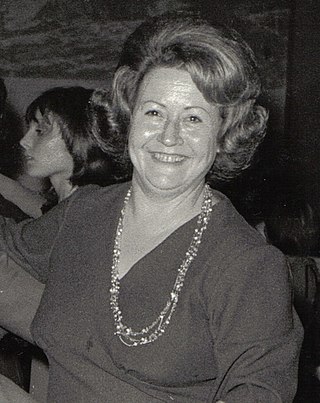 3
Azucena Villaflor was an Argentine activist and one of the founders of the Mothers of the Plaza de Mayo, a human rights organisation which looks for the victims of enforced disappearances during...
3
Azucena Villaflor was an Argentine activist and one of the founders of the Mothers of the Plaza de Mayo, a human rights organisation which looks for the victims of enforced disappearances during...
Julieta Lanteri
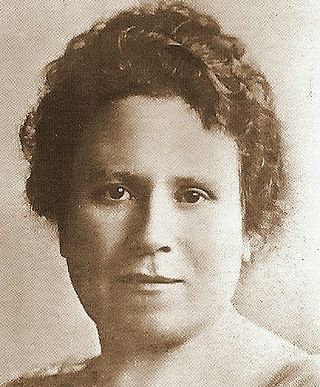 3
Julieta Lanteri was an Argentine physician, leading freethinker, and activist for women's rights in Argentina as well as for social reform generally.
3
Julieta Lanteri was an Argentine physician, leading freethinker, and activist for women's rights in Argentina as well as for social reform generally.
Mother Teresa
 3
Mary Teresa Bojaxhiu MC, better known as Mother Teresa, was an Albanian-Indian Catholic nun and the founder of the Missionaries of Charity. Born in Skopje, then part of the Ottoman Empire, at the age...
3
Mary Teresa Bojaxhiu MC, better known as Mother Teresa, was an Albanian-Indian Catholic nun and the founder of the Missionaries of Charity. Born in Skopje, then part of the Ottoman Empire, at the age...
Pierina Dealessi
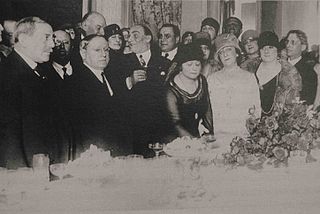 3
Pierina Dealessi fue una actriz italiana nacionalizada argentina.
3
Pierina Dealessi fue una actriz italiana nacionalizada argentina.
Carlos Francisco Melo
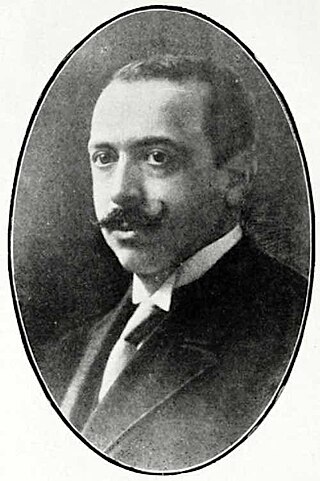 3
Carlos F. Melo fue un abogado, profesor, periodista y político argentino, de la Unión Cívica Radical y de la Unión Cívica Radical Principista que ejerció como diputado nacional por la Capital Federal...
3
Carlos F. Melo fue un abogado, profesor, periodista y político argentino, de la Unión Cívica Radical y de la Unión Cívica Radical Principista que ejerció como diputado nacional por la Capital Federal...
Marcelo Osvaldo Magnasco
 3
Marcelo Osvaldo Magnasco is a biophysicist and a professor at The Rockefeller University.
3
Marcelo Osvaldo Magnasco is a biophysicist and a professor at The Rockefeller University.
Marina Leticia Vilte
 3
Marina Leticia Vilte, maestra militante sindical y del peronismo revolucionario, víctima de la última dictadura cívico militar de Argentina
3
Marina Leticia Vilte, maestra militante sindical y del peronismo revolucionario, víctima de la última dictadura cívico militar de Argentina
Emilio Castelar
 3
Emilio Castelar y Ripoll was a Spanish republican politician, and a president of the First Spanish Republic.
3
Emilio Castelar y Ripoll was a Spanish republican politician, and a president of the First Spanish Republic.
Donato Álvarez
 3
Donato Álvarez was an Argentine general. He fought in the battle of Vuelta de Obligado under the command of Lucio Mansilla. He joined Justo José de Urquiza in his conflict against Juan Manuel de...
3
Donato Álvarez was an Argentine general. He fought in the battle of Vuelta de Obligado under the command of Lucio Mansilla. He joined Justo José de Urquiza in his conflict against Juan Manuel de...
Ruperto Godoy
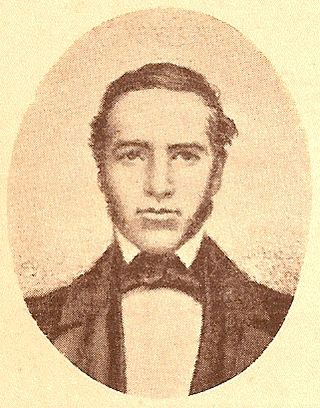 3
Ruperto Godoy fue un político argentino, miembro del Congreso que sancionó la Constitución Argentina de 1853 y gobernador de San Juan en 1869.
3
Ruperto Godoy fue un político argentino, miembro del Congreso que sancionó la Constitución Argentina de 1853 y gobernador de San Juan en 1869.
Domingo de Acassuso
 3
Domingo de Acassuso (1658–1727) was a Spanish politician and military man, who served as mayor of Buenos Aires in 1716. He was the founder of the city of San Isidro in Buenos Aires Province.
3
Domingo de Acassuso (1658–1727) was a Spanish politician and military man, who served as mayor of Buenos Aires in 1716. He was the founder of the city of San Isidro in Buenos Aires Province.
José Moldes
 3
José Moldes was an Argentine military leader. He was born in the Salta Province, and moved to Spain in his infancy. His father was Antonio Moldes y González, from Barro. He served in the Spanish...
3
José Moldes was an Argentine military leader. He was born in the Salta Province, and moved to Spain in his infancy. His father was Antonio Moldes y González, from Barro. He served in the Spanish...
Mercedes Sosa
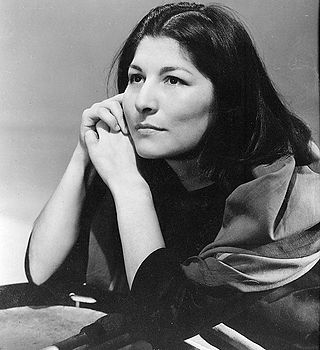 3
Haydée Mercedes Sosa, sometimes known as La Negra, was an Argentine singer who was popular throughout Latin America and many countries outside the region. With her roots in Argentine folk music, Sosa...
3
Haydée Mercedes Sosa, sometimes known as La Negra, was an Argentine singer who was popular throughout Latin America and many countries outside the region. With her roots in Argentine folk music, Sosa...
Julián Aguirre
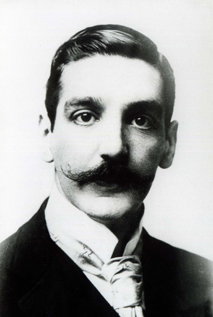 3
Julián Antonio Tomás Aguirre fue un compositor argentino cuya creación musical sintetizó las formas tradicionales del folclore argentino y la música culta. Fue fundador de la sección de música del...
3
Julián Antonio Tomás Aguirre fue un compositor argentino cuya creación musical sintetizó las formas tradicionales del folclore argentino y la música culta. Fue fundador de la sección de música del...
Díaz Colodrero
 3
Díaz Colodrero puede referirse a:Felipe Díaz Colodrero, político argentino, gobernador de Corrientes de 1786 a 1788;
Pedro Díaz Colodrero, político argentino firmante de la Constitución Argentina de...
3
Díaz Colodrero puede referirse a:Felipe Díaz Colodrero, político argentino, gobernador de Corrientes de 1786 a 1788;
Pedro Díaz Colodrero, político argentino firmante de la Constitución Argentina de...
Hilario Lagos
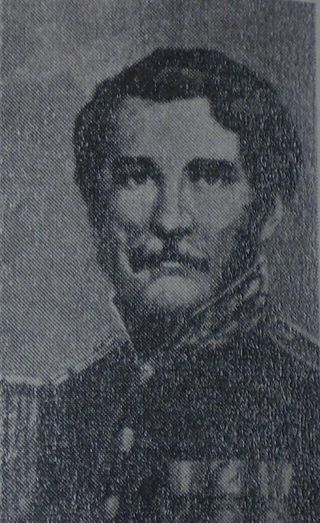 3
Hilario Lagos fue un militar argentino que participó en las guerras civiles de su país en el ejército federal.
3
Hilario Lagos fue un militar argentino que participó en las guerras civiles de su país en el ejército federal.
Baldomero Fernández Moreno
 3
Baldomero Fernández Moreno fue un poeta y médico rural argentino, académico de número de la Academia Argentina de Letras. Su poesía, universal y hondamente nacional al mismo tiempo, ha inmortalizado...
3
Baldomero Fernández Moreno fue un poeta y médico rural argentino, académico de número de la Academia Argentina de Letras. Su poesía, universal y hondamente nacional al mismo tiempo, ha inmortalizado...
Pedro Vargas
 3
Pedro Vargas Mata was a Mexican tenor and actor, from the golden age of Mexican cinema, participating in more than 70 films. He was known as the "Nightingale of the Americas", "Song Samurai" or...
3
Pedro Vargas Mata was a Mexican tenor and actor, from the golden age of Mexican cinema, participating in more than 70 films. He was known as the "Nightingale of the Americas", "Song Samurai" or...
José Barros Pazos
 3
José Barros Pazos fue un político del Partido Unitario, jurista y ministro de la Corte Suprema de Justicia de Argentina.
3
José Barros Pazos fue un político del Partido Unitario, jurista y ministro de la Corte Suprema de Justicia de Argentina.
Mauricio Yadarola
 3
Mauricio Luis Yadarola fue un abogado y político argentino miembro de la Unión Cívica Radical, que se desempeñó como Diputado de la Nación.
3
Mauricio Luis Yadarola fue un abogado y político argentino miembro de la Unión Cívica Radical, que se desempeñó como Diputado de la Nación.
Antonio Berni
 3
Delesio Antonio Berni was an Argentine figurative artist. He is associated with the movement known as Nuevo Realismo, an Argentine extension of social realism. His work, including a series of Juanito...
3
Delesio Antonio Berni was an Argentine figurative artist. He is associated with the movement known as Nuevo Realismo, an Argentine extension of social realism. His work, including a series of Juanito...
Rafael Núñez
 3
Rafael Wenceslao Núñez Moledo was a Colombian author, lawyer, journalist and politician, who was elected president of Colombia in 1880 and in 1884. Núñez was the leader of the so-called...
3
Rafael Wenceslao Núñez Moledo was a Colombian author, lawyer, journalist and politician, who was elected president of Colombia in 1880 and in 1884. Núñez was the leader of the so-called...
Domingo Salaberry
 3
Domingo E. Salaberry fue un abogado y político argentino que ejerció como Ministro de Hacienda de su país durante toda la primera presidencia de Hipólito Yrigoyen. Como tal, fue el ministro de...
3
Domingo E. Salaberry fue un abogado y político argentino que ejerció como Ministro de Hacienda de su país durante toda la primera presidencia de Hipólito Yrigoyen. Como tal, fue el ministro de...
Amerigo Vespucci
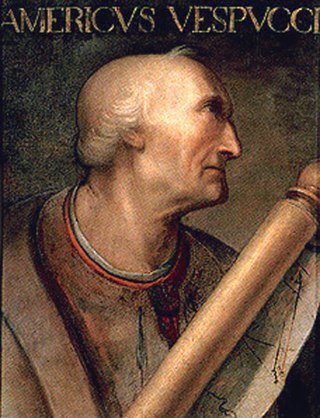 3
Amerigo Vespucci was an Italian explorer and navigator from the Republic of Florence, from whose name the term "America" is derived.
3
Amerigo Vespucci was an Italian explorer and navigator from the Republic of Florence, from whose name the term "America" is derived.
Alexandre Dumas
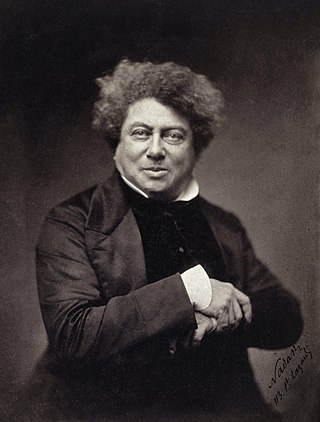 3
Alexandre Dumas, also known as Alexandre Dumas père, was a French novelist and playwright.
3
Alexandre Dumas, also known as Alexandre Dumas père, was a French novelist and playwright.
Carlos Manuel de Céspedes
 3
Carlos Manuel de Céspedes del Castillo was a Cuban revolutionary hero and First President of Cuba in Arms in 1868. Cespedes, who was a plantation owner in Cuba, freed his slaves and made the...
3
Carlos Manuel de Céspedes del Castillo was a Cuban revolutionary hero and First President of Cuba in Arms in 1868. Cespedes, who was a plantation owner in Cuba, freed his slaves and made the...
Nicolás Palacios
 3
Nicolás Palacios Navarro was a Chilean physician and writer born in Santa Cruz, best known for his writings on the "Chilean race" and national identity. His 1904 book Raza chilena form the...
3
Nicolás Palacios Navarro was a Chilean physician and writer born in Santa Cruz, best known for his writings on the "Chilean race" and national identity. His 1904 book Raza chilena form the...
Juan Carlos Castagnino
 3
Juan Carlos Castagnino was an Argentine painter, architect, muralist and sketch artist.
3
Juan Carlos Castagnino was an Argentine painter, architect, muralist and sketch artist.
Johann Sebastian Bach
 3
Johann Sebastian Bach was a German composer and musician of the late Baroque period. He is known for his prolific authorship of music across a variety of instruments and forms, including; orchestral...
3
Johann Sebastian Bach was a German composer and musician of the late Baroque period. He is known for his prolific authorship of music across a variety of instruments and forms, including; orchestral...
Martín de Gainza (militar)
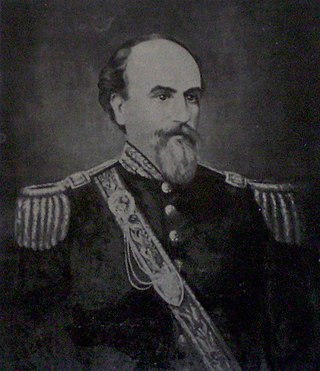 3
Martín José Mariano Dolores del Corazón de Jesús de Gainza fue un militar argentino que participó en las guerras civiles argentinas y ejerció el cargo de ministro de Guerra y Marina de su país entre...
3
Martín José Mariano Dolores del Corazón de Jesús de Gainza fue un militar argentino que participó en las guerras civiles argentinas y ejerció el cargo de ministro de Guerra y Marina de su país entre...
Alejo Peyret
 3
Alejo Peyret was a French-born Argentine writer, agronomist, colonial administrator, and historian. Emigrating to Argentina when he was 25, he became a prominent figure in the history of Entre Ríos...
3
Alejo Peyret was a French-born Argentine writer, agronomist, colonial administrator, and historian. Emigrating to Argentina when he was 25, he became a prominent figure in the history of Entre Ríos...
José de la Serna, 1st Count of the Andes
 3
José de la Serna e Hinojosa, 1st Count of the Andes was a Spanish general and colonial official. He was the last Spanish viceroy of Peru to exercise effective power.
3
José de la Serna e Hinojosa, 1st Count of the Andes was a Spanish general and colonial official. He was the last Spanish viceroy of Peru to exercise effective power.
Tomás Nother
 3
Tomás Nother fue un marino inglés que combatió en la escuadra de las Provincias Unidas del Río de la Plata.
3
Tomás Nother fue un marino inglés que combatió en la escuadra de las Provincias Unidas del Río de la Plata.
Ceferino Ramírez
 3
Ceferino Ramírez fue un marino argentino que luchó contra la Invasión paraguaya de Corrientes y en la guerra de la Triple Alianza. Participó de la Expedición Py a la Patagonia y de la campaña del...
3
Ceferino Ramírez fue un marino argentino que luchó contra la Invasión paraguaya de Corrientes y en la guerra de la Triple Alianza. Participó de la Expedición Py a la Patagonia y de la campaña del...
Santiago Jorge Bynnon
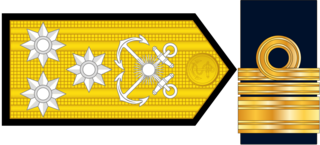 3
Santiago Jorge Bynnon fue un marino galés que tuvo un importante desempeño en la Armada Argentina durante la Guerra del Brasil y una destacada carrera en la Armada de Chile.
3
Santiago Jorge Bynnon fue un marino galés que tuvo un importante desempeño en la Armada Argentina durante la Guerra del Brasil y una destacada carrera en la Armada de Chile.
José Murature
 3
José Félix Murature was a commodore of the Argentine Navy and a painter of Italian origin who served in several conflits including the Argentine Civil Wars, the Cisplatine War and the Paraguayan War.
3
José Félix Murature was a commodore of the Argentine Navy and a painter of Italian origin who served in several conflits including the Argentine Civil Wars, the Cisplatine War and the Paraguayan War.
Venancio Flores
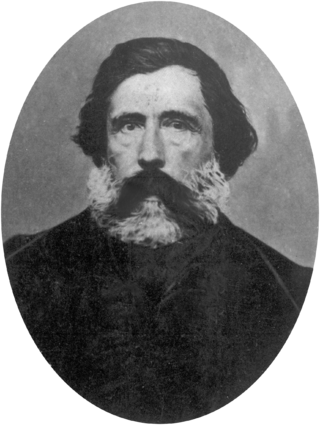 3
Venancio Flores Barrios was a Uruguayan political leader and general who served as President of Uruguay from 1854 to 1855 (interim) and from 1865 to 1868.
3
Venancio Flores Barrios was a Uruguayan political leader and general who served as President of Uruguay from 1854 to 1855 (interim) and from 1865 to 1868.
Florencio Parravicini
 3
Florencio Parravicini was an Argentine actor who primarily worked during the Golden Age of Argentine Cinema, performing on both stage and in films. From an aristocratic family, he was a relative of...
3
Florencio Parravicini was an Argentine actor who primarily worked during the Golden Age of Argentine Cinema, performing on both stage and in films. From an aristocratic family, he was a relative of...
Ernesto Sabato
Luciano Valette
 3
Luciano Honorato Valette fue un biólogo, explorador y especialista en zoología de origen uruguayo, nacionalizado argentino.
3
Luciano Honorato Valette fue un biólogo, explorador y especialista en zoología de origen uruguayo, nacionalizado argentino.
Enrique del Valle Iberlucea
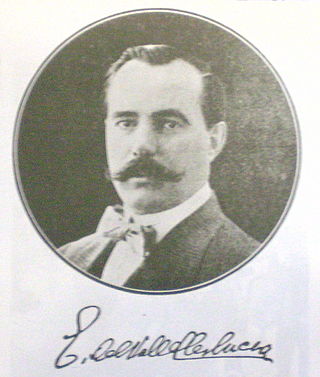 3
Enrique del Valle Iberlucea fue un político, periodista y abogado español radicado en Argentina. Era hijo del pescador Epifanio del Valle y de María Iberlucea, y estuvo casado con María Luisa...
3
Enrique del Valle Iberlucea fue un político, periodista y abogado español radicado en Argentina. Era hijo del pescador Epifanio del Valle y de María Iberlucea, y estuvo casado con María Luisa...
Julián Navarro
 3
Julián Navarro fue un sacerdote católico argentino que tuvo una importante participación en apoyo de la guerra de independencia de la Argentina. Posteriormente se instaló en Santiago de Chile, donde...
3
Julián Navarro fue un sacerdote católico argentino que tuvo una importante participación en apoyo de la guerra de independencia de la Argentina. Posteriormente se instaló en Santiago de Chile, donde...
Hugo Wast
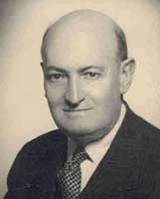 3
Gustavo Adolfo Martínez Zuviría, best known under his pseudonym Hugo Wast, was a renowned Argentine novelist and script writer.
3
Gustavo Adolfo Martínez Zuviría, best known under his pseudonym Hugo Wast, was a renowned Argentine novelist and script writer.
Antonio Richieri
 3
Antonio Richieri was an Italian painter of the Baroque period.
3
Antonio Richieri was an Italian painter of the Baroque period.
Antonio Vivaldi
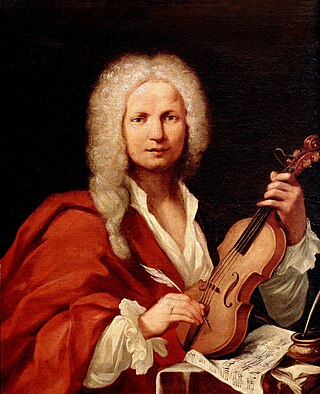 3
Antonio Lucio Vivaldi was an Italian composer, virtuoso violinist and impresario of Baroque music. Along with Johann Sebastian Bach and George Frideric Handel, Vivaldi ranks amongst the greatest...
3
Antonio Lucio Vivaldi was an Italian composer, virtuoso violinist and impresario of Baroque music. Along with Johann Sebastian Bach and George Frideric Handel, Vivaldi ranks amongst the greatest...
José Ruiz Huidobro
 3
José Ruiz Huidobro fue un militar argentino de origen español peninsular, de larga carrera en las guerras civiles argentinas y en la lucha contra los pueblos originarios.
3
José Ruiz Huidobro fue un militar argentino de origen español peninsular, de larga carrera en las guerras civiles argentinas y en la lucha contra los pueblos originarios.
Guillermo Miller
 3
William Miller known throughout Hispanic America as Guillermo Miller, was an English-born soldier who participated in several South American revolutions, and then became a diplomat.
3
William Miller known throughout Hispanic America as Guillermo Miller, was an English-born soldier who participated in several South American revolutions, and then became a diplomat.
Bertha Koessler-Ilg
 3
Bertha Koessler-Ilg (1881–1965) was a German-born Argentine nurse who is remembered for her work as a folklorist. While young, she spent some time with her uncle, the German consult of Malta,...
3
Bertha Koessler-Ilg (1881–1965) was a German-born Argentine nurse who is remembered for her work as a folklorist. While young, she spent some time with her uncle, the German consult of Malta,...
Hermógenes Ruiz
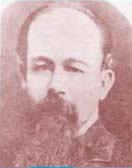 3
Hermógenes Ruiz Cano fue un abogado sanjuanino nacido en 1839 hijo del exgobernador de San Juan Valentín Ruiz y de Paula Cano y Ramírez, esposa en segundas nupcias de su padre.
3
Hermógenes Ruiz Cano fue un abogado sanjuanino nacido en 1839 hijo del exgobernador de San Juan Valentín Ruiz y de Paula Cano y Ramírez, esposa en segundas nupcias de su padre.
Clemente Onelli
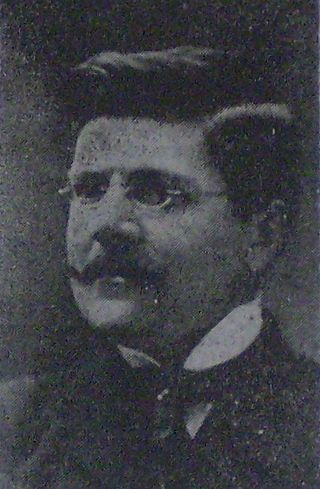 3
Clemente Onelli fue un científico, naturalista, conservacionista, geógrafo, arqueólogo, paleontólogo, zoólogo, botánico, explorador y escritor, nacido en Italia, que luego emigró a la Argentina.
3
Clemente Onelli fue un científico, naturalista, conservacionista, geógrafo, arqueólogo, paleontólogo, zoólogo, botánico, explorador y escritor, nacido en Italia, que luego emigró a la Argentina.
José Félix Estigarribia
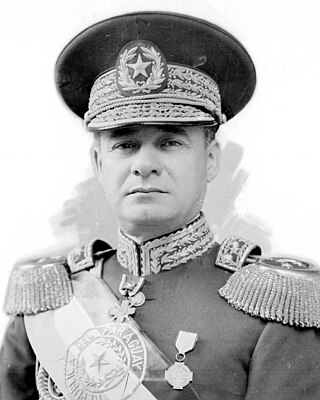 3
José Félix Estigarribia Insaurralde was a Paraguayan military officer and politician who served as the 34th President of Paraguay from 1939 until his death in a plane crash on September 7, 1940. He...
3
José Félix Estigarribia Insaurralde was a Paraguayan military officer and politician who served as the 34th President of Paraguay from 1939 until his death in a plane crash on September 7, 1940. He...
Joaquín Madariaga
 3
Joaquín Madariaga was a soldier and Argentine politician. Madariaga was Governor of the Corrientes Province and leader of the provinces resistance against the national government of Juan Manuel de...
3
Joaquín Madariaga was a soldier and Argentine politician. Madariaga was Governor of the Corrientes Province and leader of the provinces resistance against the national government of Juan Manuel de...
Alfredo Ferreira
 3
José Alfredo Ferreira fue un político y pedagogo argentino. Se lo reconoce como uno de los mayores promotores de reformas pedagógicas tanto en su provincia natal, Corrientes, como también en el resto...
3
José Alfredo Ferreira fue un político y pedagogo argentino. Se lo reconoce como uno de los mayores promotores de reformas pedagógicas tanto en su provincia natal, Corrientes, como también en el resto...
Víctor Hipólito Martínez
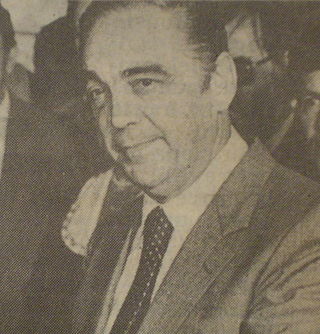 3
Víctor Hipólito Martínez was an Argentine lawyer and politician, best known for his role as vice president during Raúl Alfonsín's 1983–89 tenure.
3
Víctor Hipólito Martínez was an Argentine lawyer and politician, best known for his role as vice president during Raúl Alfonsín's 1983–89 tenure.